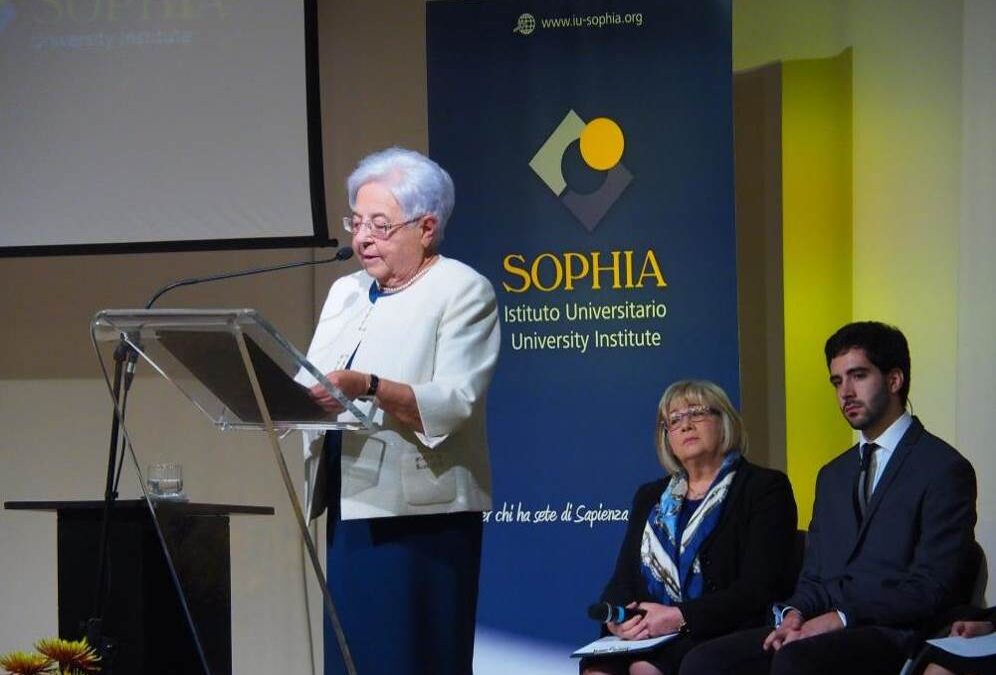
Oct 27, 2017 | Non categorizzato
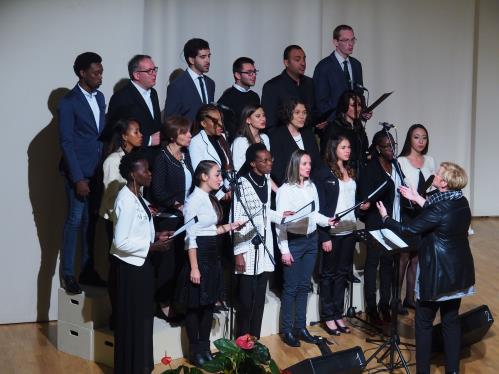 As processes of isolation increase around the world, Sophia University Institute opens a courageous new Centre for Global Studies which will “provide tools for understanding, managing and changing processes of global relations,” explained Pasquale Ferrara, Italian Ambassador to Algeria and president of the new Centre. “The new centre is the result of ten years of academic experience, and its goal is the training of a new generation of leaders that is capable of facing the complexity, and motivated to work for dialogue and peace.” “No country, no group can allow itself to become isolated from the other,” said Paolo Frizzi, professor of Religions and Global Processes, and Director of the Centre. “We are in the middle of an uncertain passage, which is transient and happening on many levels.
As processes of isolation increase around the world, Sophia University Institute opens a courageous new Centre for Global Studies which will “provide tools for understanding, managing and changing processes of global relations,” explained Pasquale Ferrara, Italian Ambassador to Algeria and president of the new Centre. “The new centre is the result of ten years of academic experience, and its goal is the training of a new generation of leaders that is capable of facing the complexity, and motivated to work for dialogue and peace.” “No country, no group can allow itself to become isolated from the other,” said Paolo Frizzi, professor of Religions and Global Processes, and Director of the Centre. “We are in the middle of an uncertain passage, which is transient and happening on many levels. 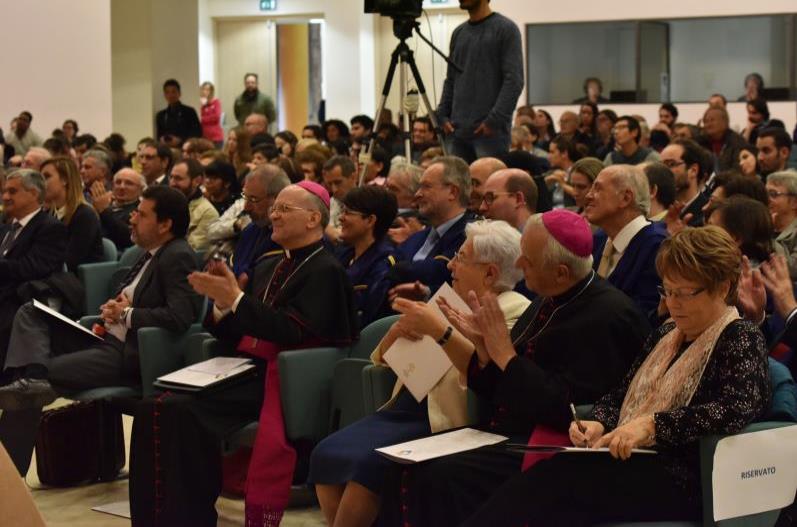 Sophia Institute, the result of Chiara Lubich’s intuition, has tripled its offerings this year: Master Degree in Economics and Management, Trinitarian Ontology and Culture of Unity, with their respective doctorates. President Msgr Piero Coda explains: “The complex nature of the national and global horizon requires a relentless effort oriented towards the unity of the human family guided by a new thought. In these ten years, Sophia has grown into an Intercultural, inter and trans-disciplinary centre where an integral relationship is nurtured among study, experience and research.”
Sophia Institute, the result of Chiara Lubich’s intuition, has tripled its offerings this year: Master Degree in Economics and Management, Trinitarian Ontology and Culture of Unity, with their respective doctorates. President Msgr Piero Coda explains: “The complex nature of the national and global horizon requires a relentless effort oriented towards the unity of the human family guided by a new thought. In these ten years, Sophia has grown into an Intercultural, inter and trans-disciplinary centre where an integral relationship is nurtured among study, experience and research.”
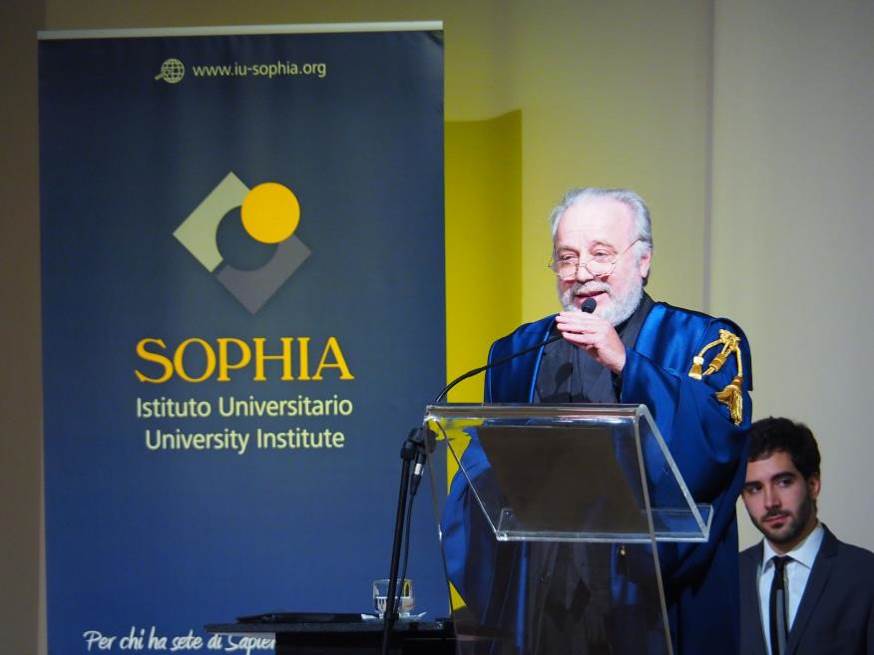
Msgr Piero Coda
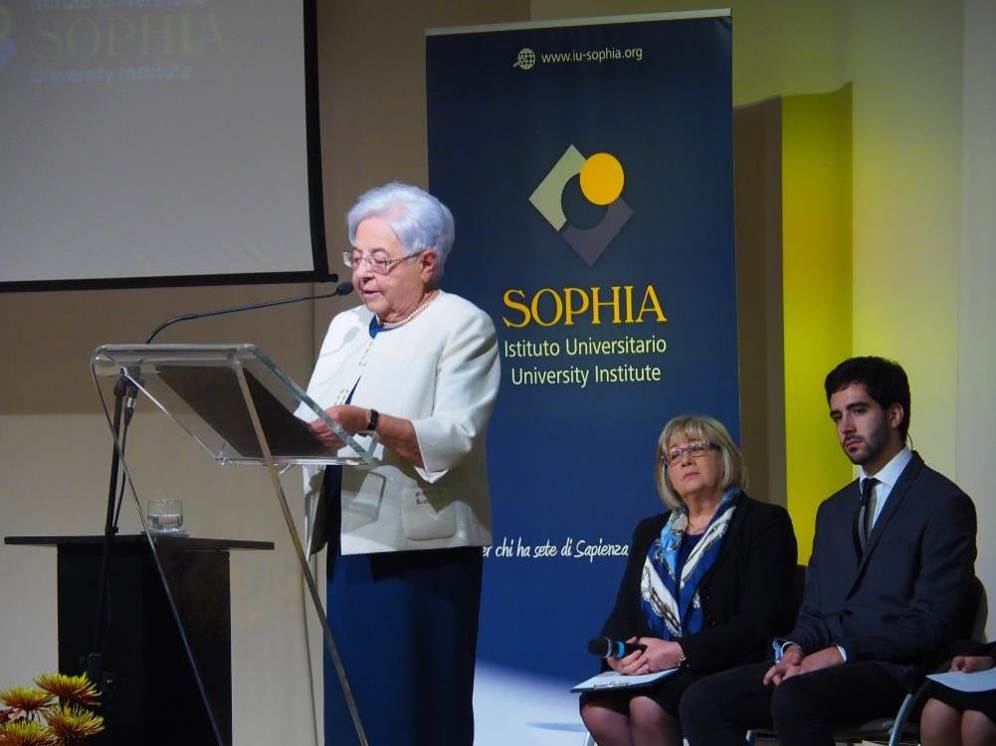
Maria Voce
Oct 26, 2017 | Non categorizzato
Together for Europe (TfE) is an initiative of over 300 Christian Movements and Communities belonging to different Churches in Europe. The Steering Committee which is entrusted with a coordination role is composed of the following members: Christophe D’Aloisio (Fraternité orthodoxe en Europe occidentale), Marco Impagliazzo (Community of Sant’Egidio), Michelle Moran (ICCRS / Sion Community), Gerhard Pross (CVJM/YMCA Esslingen), Thomas Roemer (CVJM/YMCA Munich), Gérard Testard (Efesia), Maria Voce (Focolare Movement) and Fr. Heinrich Walter (Schoenstatt). In 2017, the “Friends” of TfE network will hold their annual conference in Vienna, a city that is a bridge connecting Eastern and Western Europe. A total of 120 participants from around 20 Eastern and Western European countries and 40 Movements are expected to attend. Their main aim will be to pool ideas on three topics:
- What culture is generated by the history of Together for Europe?
- What is our specific contribution to Europe?
- Dialogue between East and West: a mutual enrichment
This network of people embraces all of Europe from England to Russia, from Portugal to Greece. Their shared mission: through the upcoming meeting, to strengthen communion among their individual charisms and build united and multifaceted Europe, with strong social cohesion and cultural diversity. The meeting will open, on 9th November 2017, in the Stephansdom Cathedral of Vienna, with an Ecumenical prayer for Europe. All those who wish for peace in Europe and in the world, are invited to take part in this moment of prayer. Cardinal Christoph Schoenborn, Archbishop of Vienna, Auxiliary Bishop Emeritus Helmuth Kraetzl, Catholic Church, Archpriest Vicar Ivan Petkin, Bulgarian Orthodox Church in Austria, Chorbishop Emanuel Aydin, Syrian Orthodox Church in Austria, Patriarchal Delegate Tiran Petrosyan, Armenian Apostolic Church, Patrick Curran, Archdeacon of the Eastern Archdeaconry of the Anglican Church in Europe, together with all the present will bring before God needs and opportunities of our continent. The intention of the prayer is extremely timely: unity in diversity, peace in justice. Following personalities will address the gathering: Thomas Hennefeld, Superintendent of the Reformed Church of Austria and President of the Ecumenical Council of Churches in Austria, and Joerg Wojahn, Head of the European Commission Representation in Austria. For further information on Together for Europe
Oct 26, 2017 | Non categorizzato
A group of young Columbian architects of the “De La Salle” University of Bogotà and Italians of “G. D’Annunzio” University of Pescara are undertaking a new stage of the traveling workshop, “Habitandando,” organized by the network of the Focolare Movement Dialogue in Architecture. From 24 to 28 October there will be a trip from Bogotà into the interior of the country, with stopovers in some colonial towns and the Amazon plains. From 30 October to 5 November a week of study-work will follow in the Altos de Cazuca district in the outskirts of Bogotà. This is a depressed area, lacking in primary infrastructure and renowned also for security-related problems. The objective is to design and experiment through creative projects and teamwork, architectonic and urban solutions aimed at generating change and creating spaces for the local community. This will be an extreme context at the limit of the resources, technological possibilities, and social and cultural environmental sustainability.
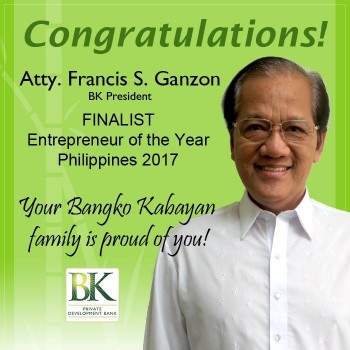
Oct 26, 2017 | Focolare Worldwide
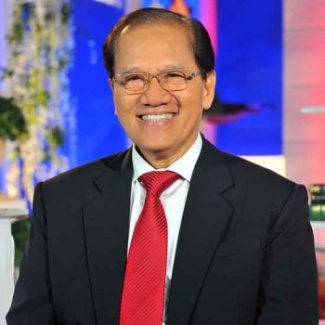 It is currently one of the biggest rural banks of the Philippines. But when Francis Ganzon (67 years old) took the helm in 1989, it only had one branch. Since then, the Institute has engaged in the support and empowering of the small and medium enterprises (SME), through the offer of quality financial systems “with a workforce united with God,” as the Bank site describes its “mission”. After obtaining his law degree, Ganzon dedicated himself to saving an institute, the Ibaan Rural Bank, Inc. (IRB), which was involved in cases of fraud. “I promoted a different work style, focusing on compliance with the laws, professionalism and centrality of the people, and promoted new practices in line with Christian values.” Ganzon embraced the spirit of the Economy of Communion, the international network of entrepreneurs engaged in putting the Social Doctrine of the Church into practice. “Subsequently, we created the Ibaan Rural Bank Foundation, with the objective of extending the microcredit programme also to deserving students with economic difficulties, through scholarships. The Asian financial crisis of 1997 also struck our bank, but we did not close down also thanks to the trust of our clients. That same year, the Bank celebrated its 40th Anniversary, and we changed its name to Bangko Kabayan (fraternity bank) as a further effort to supply people in need with the possibility to access microcredits in order to elevate their own standard of living.”
It is currently one of the biggest rural banks of the Philippines. But when Francis Ganzon (67 years old) took the helm in 1989, it only had one branch. Since then, the Institute has engaged in the support and empowering of the small and medium enterprises (SME), through the offer of quality financial systems “with a workforce united with God,” as the Bank site describes its “mission”. After obtaining his law degree, Ganzon dedicated himself to saving an institute, the Ibaan Rural Bank, Inc. (IRB), which was involved in cases of fraud. “I promoted a different work style, focusing on compliance with the laws, professionalism and centrality of the people, and promoted new practices in line with Christian values.” Ganzon embraced the spirit of the Economy of Communion, the international network of entrepreneurs engaged in putting the Social Doctrine of the Church into practice. “Subsequently, we created the Ibaan Rural Bank Foundation, with the objective of extending the microcredit programme also to deserving students with economic difficulties, through scholarships. The Asian financial crisis of 1997 also struck our bank, but we did not close down also thanks to the trust of our clients. That same year, the Bank celebrated its 40th Anniversary, and we changed its name to Bangko Kabayan (fraternity bank) as a further effort to supply people in need with the possibility to access microcredits in order to elevate their own standard of living.”  “Many clients – continued Ganzon – did not have collaterals, but we considered them as worthy people. This created a rapport of mutual trust: the bank trusted people and granted loans, and the clients trusted the bank. In this way Bangko Kabayan had a strong social impact, improving the lives of many people and many small enterprises. Then it became the preferred credit provider of the SME in our region, opening 23 branches in the provinces of Batangas, Quezon and Laguna.” In the near future, Bangko Kabayan will be committed to building a balanced portfolio of loans and capital, and in investing further in the new technologies, particularly in internet banking. Up to now Bangko Kabayan has been receiving various awards. In 2007, it received the best Capital Build-up in the PremiLandbank and was ranked among the best credit institutes at global level for microcredit. From 2008 to 2011 and again in 2013 and 2015, it was nominated in the region where it has its main office, a partner of the Land Bank of the Philippines. It moreover received Microenterprise access to the MF EAGLE award for bank service from 2003 to 2007 and again in 2010 and 2011. «Determination and integrity will always be compensated,” concluded Ganzon. “I am anxiously waiting for the day in which bank transactions can be done with a handshake instead of on paper.”
“Many clients – continued Ganzon – did not have collaterals, but we considered them as worthy people. This created a rapport of mutual trust: the bank trusted people and granted loans, and the clients trusted the bank. In this way Bangko Kabayan had a strong social impact, improving the lives of many people and many small enterprises. Then it became the preferred credit provider of the SME in our region, opening 23 branches in the provinces of Batangas, Quezon and Laguna.” In the near future, Bangko Kabayan will be committed to building a balanced portfolio of loans and capital, and in investing further in the new technologies, particularly in internet banking. Up to now Bangko Kabayan has been receiving various awards. In 2007, it received the best Capital Build-up in the PremiLandbank and was ranked among the best credit institutes at global level for microcredit. From 2008 to 2011 and again in 2013 and 2015, it was nominated in the region where it has its main office, a partner of the Land Bank of the Philippines. It moreover received Microenterprise access to the MF EAGLE award for bank service from 2003 to 2007 and again in 2010 and 2011. «Determination and integrity will always be compensated,” concluded Ganzon. “I am anxiously waiting for the day in which bank transactions can be done with a handshake instead of on paper.”
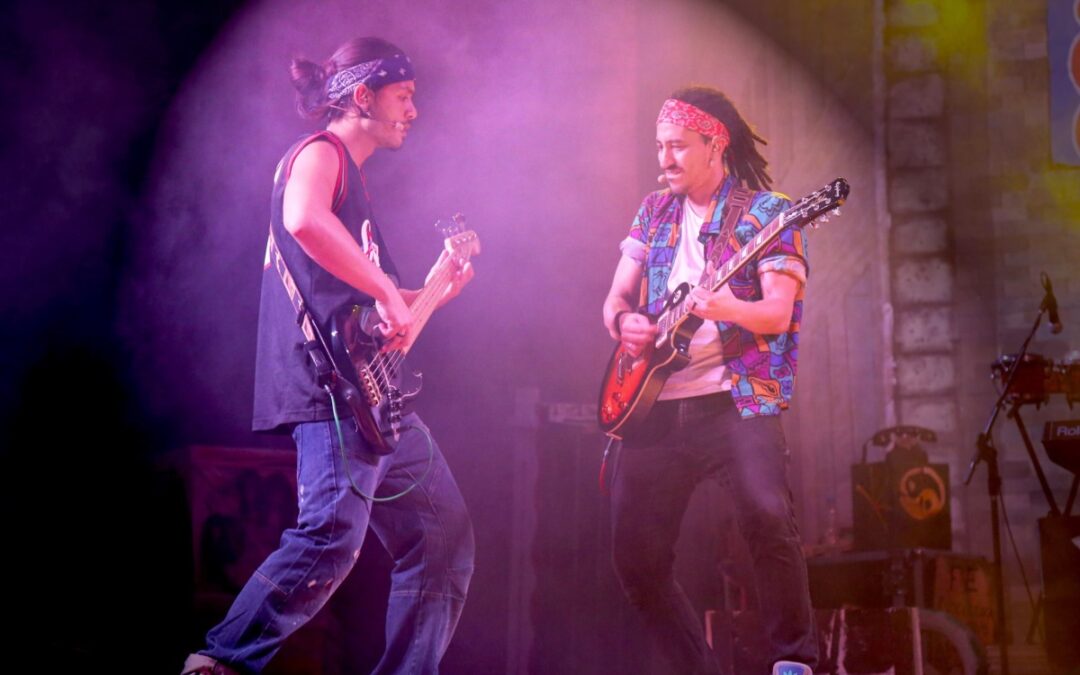
Oct 25, 2017 | Non categorizzato
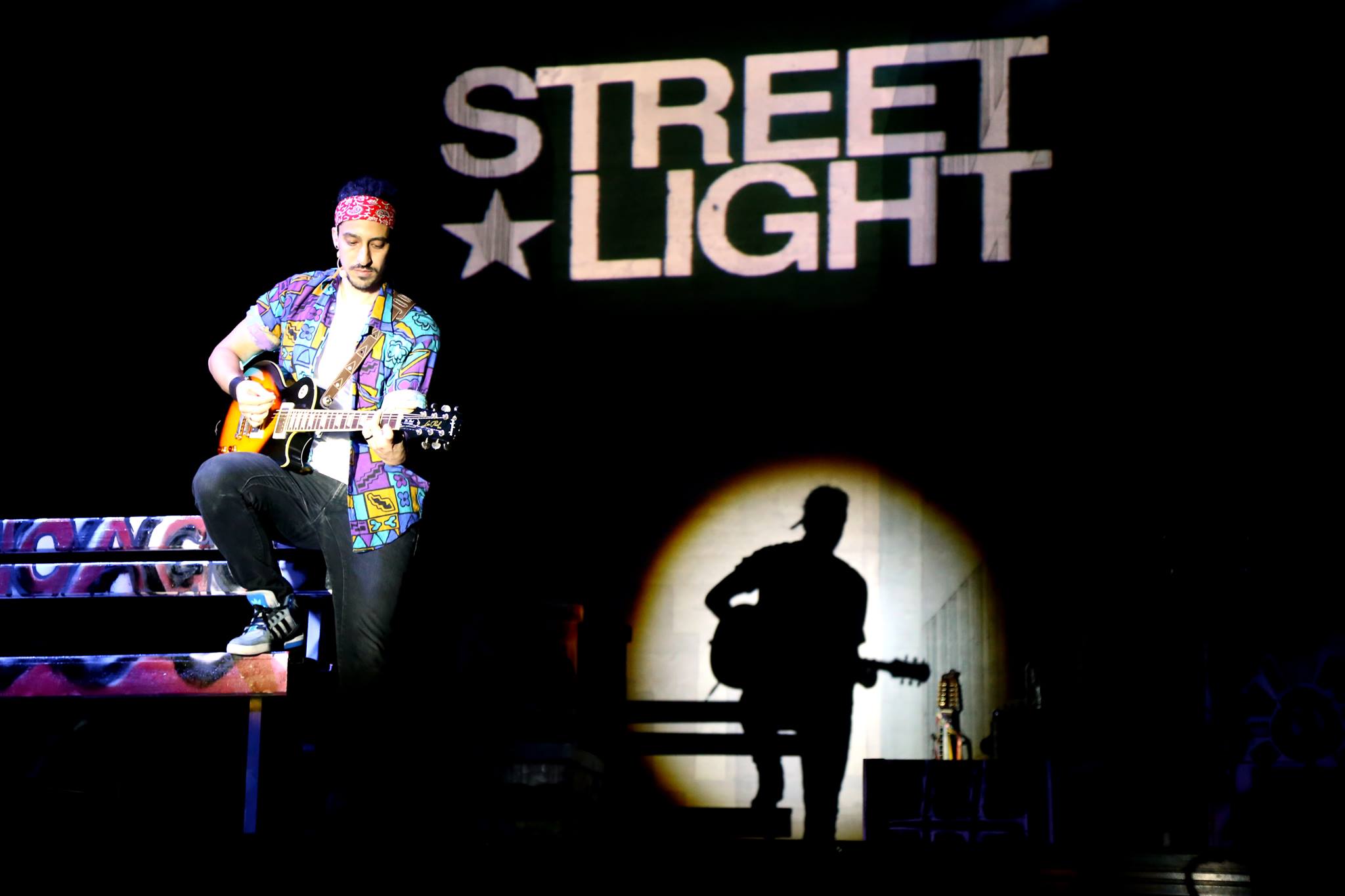 Organized by the Fazenda da Esperança, the Gen Rosso band’s Brazilian tour “Every life has a hope” is now underway. After a first stopover in the State of Santa Caterina, the tour will move on to the Central and Northern regions of the country. Joinville, ten hours by coach from Sao Paolo, is a modern city and a reference point for all dance enthusiasts, and not only the South Americans. Apart from Moscow, it is the only one that hosts a school of the Bolshoi Theater, where the old Russian method is taught. In the city of dance, from last 24 September to 1 October, nine Bolshoi ballet dancers and four others of the Cultural Centre contributed in setting up a musical. Streetlight is an original project that was staged with over 200 youths with drug addiction problems. In three days of intense work, they learnt and practiced dance steps and music, side by side with artists and youngsters, inspired by the motto one for the other. At the end, the curtain rose and the show was staged. It was not a job performed “for” the youth, but “with” the youth, said Globo TV – the most popular TV channel in Brazil – which dedicated several spots and interviews to the programme. A workshop dedicated to the educators and social workers working in the city, was held simultaneously on themes regarding the psychological, social and family processes connected to the rehab from the various types of addictions.
Organized by the Fazenda da Esperança, the Gen Rosso band’s Brazilian tour “Every life has a hope” is now underway. After a first stopover in the State of Santa Caterina, the tour will move on to the Central and Northern regions of the country. Joinville, ten hours by coach from Sao Paolo, is a modern city and a reference point for all dance enthusiasts, and not only the South Americans. Apart from Moscow, it is the only one that hosts a school of the Bolshoi Theater, where the old Russian method is taught. In the city of dance, from last 24 September to 1 October, nine Bolshoi ballet dancers and four others of the Cultural Centre contributed in setting up a musical. Streetlight is an original project that was staged with over 200 youths with drug addiction problems. In three days of intense work, they learnt and practiced dance steps and music, side by side with artists and youngsters, inspired by the motto one for the other. At the end, the curtain rose and the show was staged. It was not a job performed “for” the youth, but “with” the youth, said Globo TV – the most popular TV channel in Brazil – which dedicated several spots and interviews to the programme. A workshop dedicated to the educators and social workers working in the city, was held simultaneously on themes regarding the psychological, social and family processes connected to the rehab from the various types of addictions. 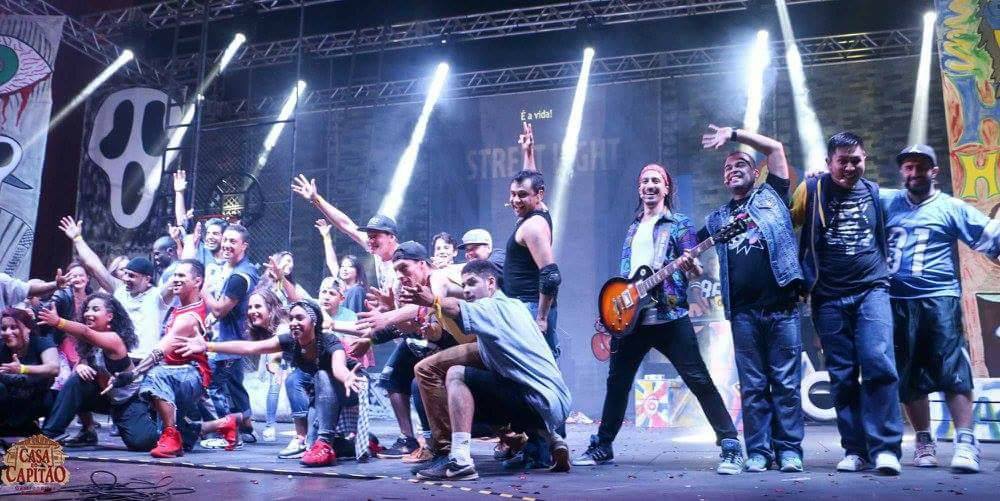 Fr. Luiz, current president of the Fazenda together with Angelucia, Nelson and Iracì, some of the pioneers of the “factory” of hope, which has spread from Brazil to Latin America, the Philippines, Africa, Russia and Central Europe, worked side by side with Gen Rosso, which for that occasion expanded its team, involving also other members of the local Focolare community. Enthusiasm among the youths involved onstage was sky-high. “It is really worthwhile to try and overcome one’s limits. I thank the Fazenda for giving us this opportunity to work with Gen Rosso”.
Fr. Luiz, current president of the Fazenda together with Angelucia, Nelson and Iracì, some of the pioneers of the “factory” of hope, which has spread from Brazil to Latin America, the Philippines, Africa, Russia and Central Europe, worked side by side with Gen Rosso, which for that occasion expanded its team, involving also other members of the local Focolare community. Enthusiasm among the youths involved onstage was sky-high. “It is really worthwhile to try and overcome one’s limits. I thank the Fazenda for giving us this opportunity to work with Gen Rosso”. 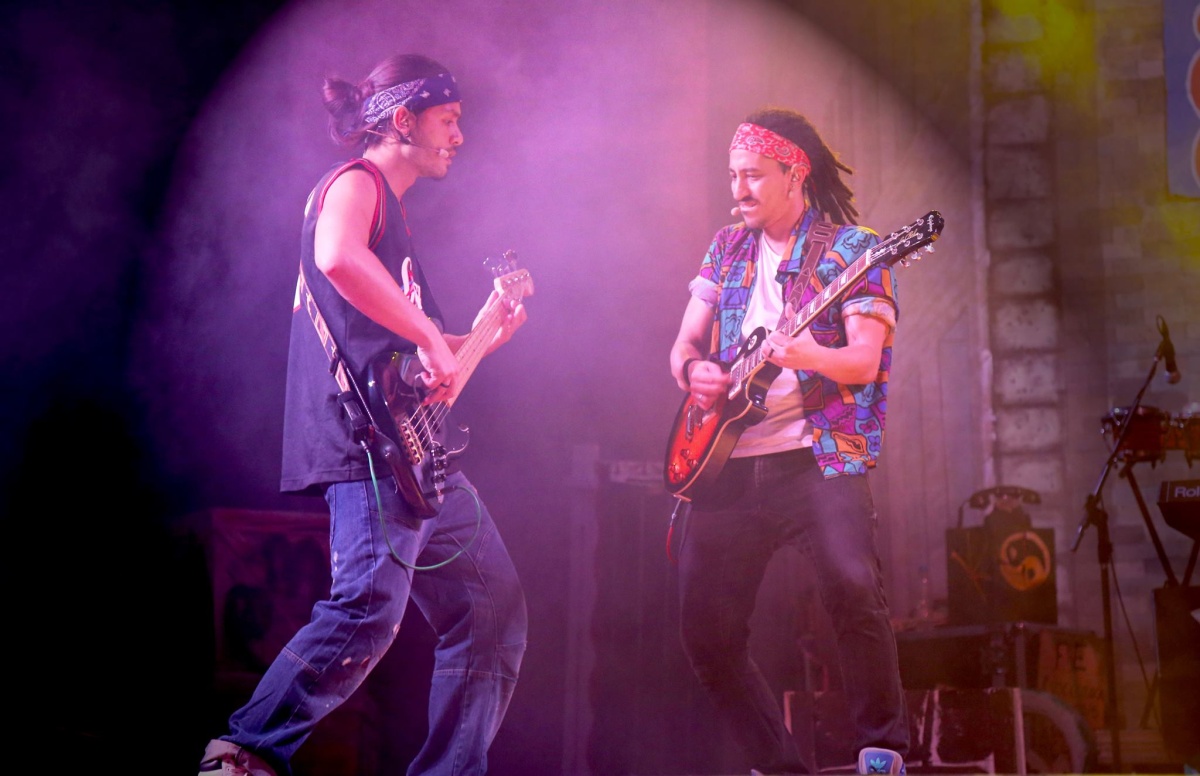 So taken by the music and the rhythm, a boy who in the past headed a violent gang, said: “The adrenalin I had experienced while doing bad things, was for me, the utmost. But I saw that one can be even happier in doing good, without drugs and alcohol. This is something new for me.” William, of the Bolshoi school: “I learned that one can dance not only with technique and discipline but also with one’s heart. It was a joyous and likewise harmonious experience expressed also with a smile.” A ballerina of the Cultural Centre said: ”Our professionalism encountered the force of a lifestyle of many youths: a surprise for me and a miracle of art for one another.” Also the public expressed surprise and enthusiasm: “I saw my city get involved.” “It is art that becomes service to society.” “You have strengthened unity among the various civil communities; a very precious experience which we must pursue in the future.” Meanwhile, after the concert in every city of the tour, the group continued the work to ensure that connections between the various social institutions engaged in the education and rehabilitation from drugs and other addictions, were consolidated and strengthened, so as not to allow the streetlights to dim. Streetlight Video.
So taken by the music and the rhythm, a boy who in the past headed a violent gang, said: “The adrenalin I had experienced while doing bad things, was for me, the utmost. But I saw that one can be even happier in doing good, without drugs and alcohol. This is something new for me.” William, of the Bolshoi school: “I learned that one can dance not only with technique and discipline but also with one’s heart. It was a joyous and likewise harmonious experience expressed also with a smile.” A ballerina of the Cultural Centre said: ”Our professionalism encountered the force of a lifestyle of many youths: a surprise for me and a miracle of art for one another.” Also the public expressed surprise and enthusiasm: “I saw my city get involved.” “It is art that becomes service to society.” “You have strengthened unity among the various civil communities; a very precious experience which we must pursue in the future.” Meanwhile, after the concert in every city of the tour, the group continued the work to ensure that connections between the various social institutions engaged in the education and rehabilitation from drugs and other addictions, were consolidated and strengthened, so as not to allow the streetlights to dim. Streetlight Video.
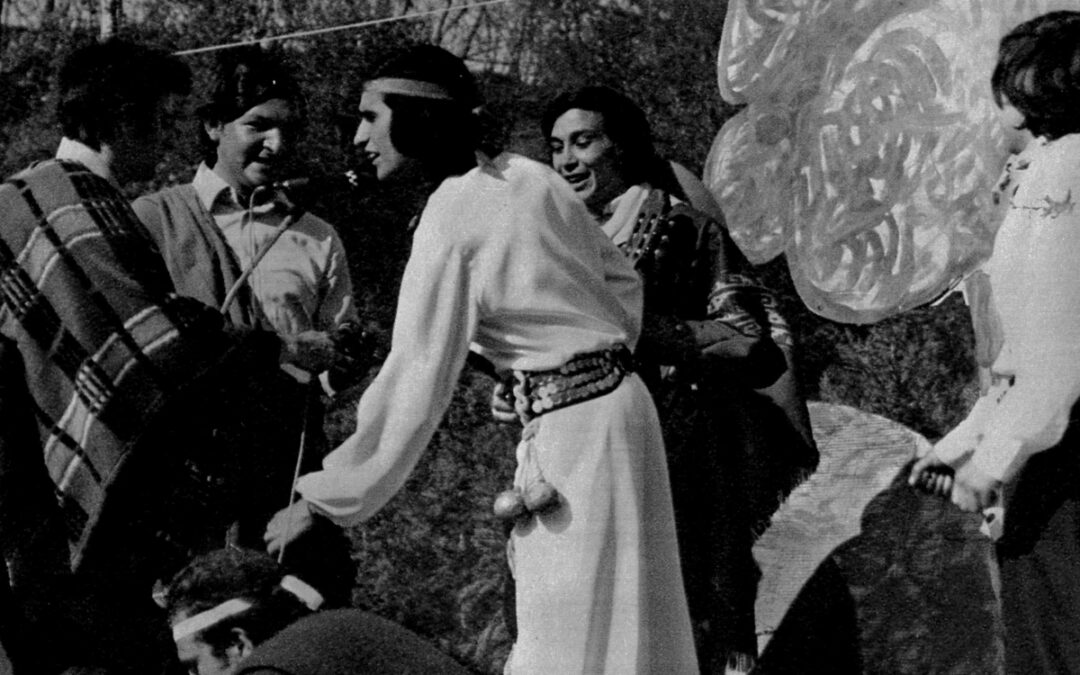
Oct 24, 2017 | Non categorizzato
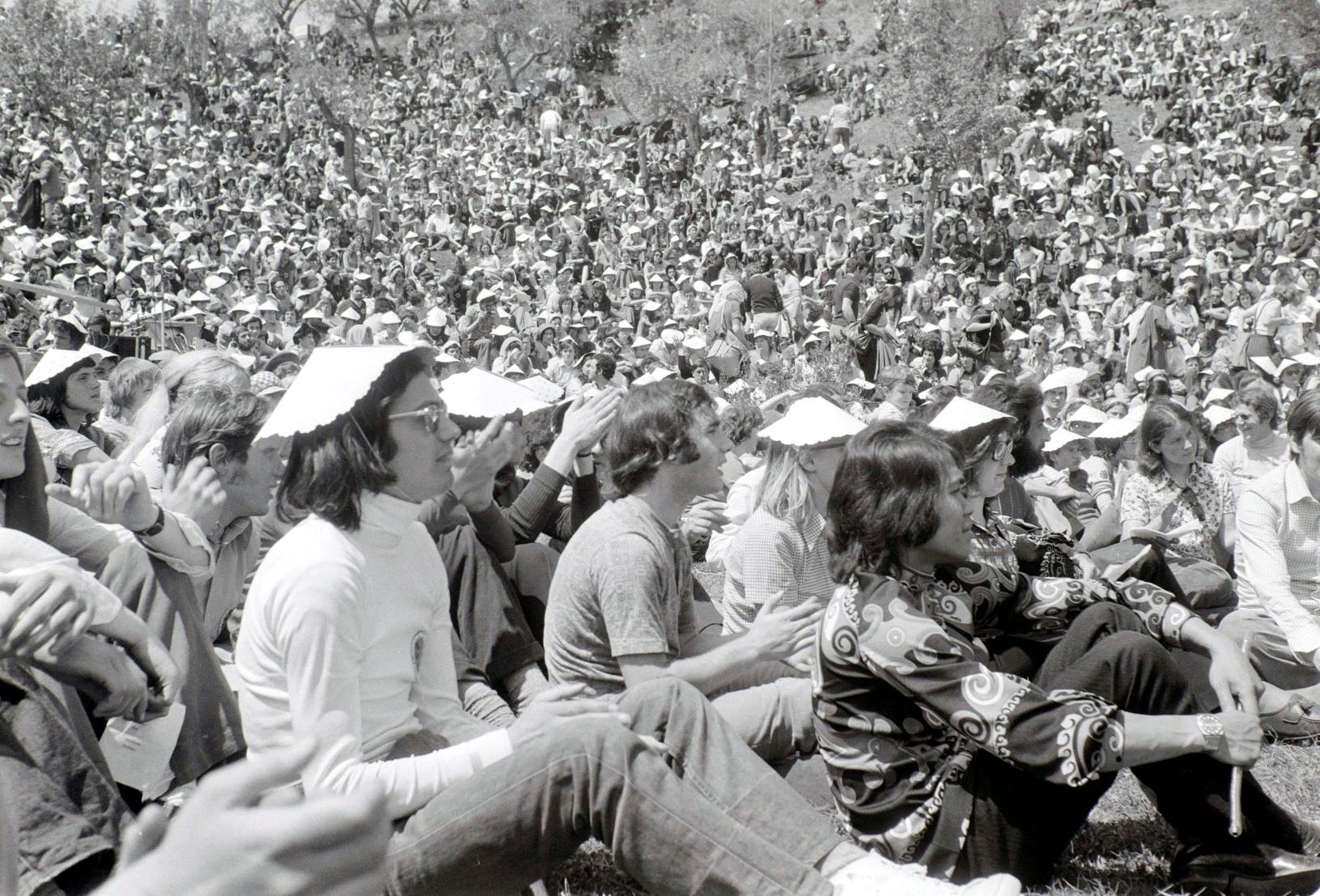 An unending line of buses filled with young people clamoured up the narrow roads that rose from Incisa Valdarno, Italy, to Loppiano. Such a long carcade hadn’t been expected and threatened to throw off the plans. Who would have expected 10,000 young people to come for what would then turn into a yearly event in many cities of the world? It was a real invasion that made all the jaws of Loppiano’s citizens drop. It began on a day of spring sunshine that burst from hearts and faces after a vigil of wind and rain: the first Genfest in history! And I was there! Yes, I was there! “Vivir para cantarlo,” García Márquez would say. “I live to sing it!” I can still see Loppiano’s natural amphitheatre in front of me, filled to the brim with young people from Italy and several other European countries, many hours of travel behind them – and also representatives from other countries around the world: like me from Argentina.
An unending line of buses filled with young people clamoured up the narrow roads that rose from Incisa Valdarno, Italy, to Loppiano. Such a long carcade hadn’t been expected and threatened to throw off the plans. Who would have expected 10,000 young people to come for what would then turn into a yearly event in many cities of the world? It was a real invasion that made all the jaws of Loppiano’s citizens drop. It began on a day of spring sunshine that burst from hearts and faces after a vigil of wind and rain: the first Genfest in history! And I was there! Yes, I was there! “Vivir para cantarlo,” García Márquez would say. “I live to sing it!” I can still see Loppiano’s natural amphitheatre in front of me, filled to the brim with young people from Italy and several other European countries, many hours of travel behind them – and also representatives from other countries around the world: like me from Argentina.
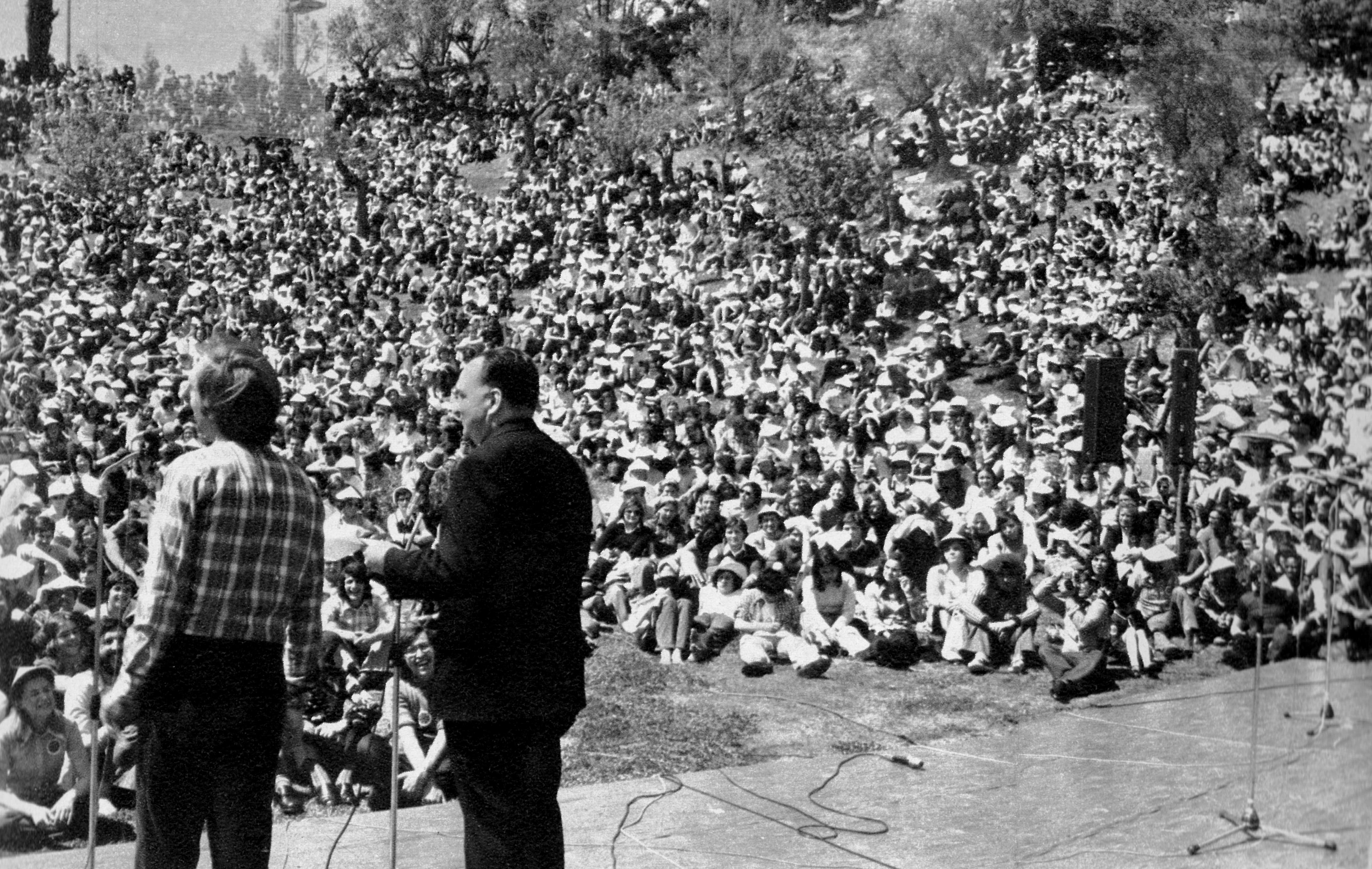
Fr Pasquale Foresi delivered a message from Pope Paul VI
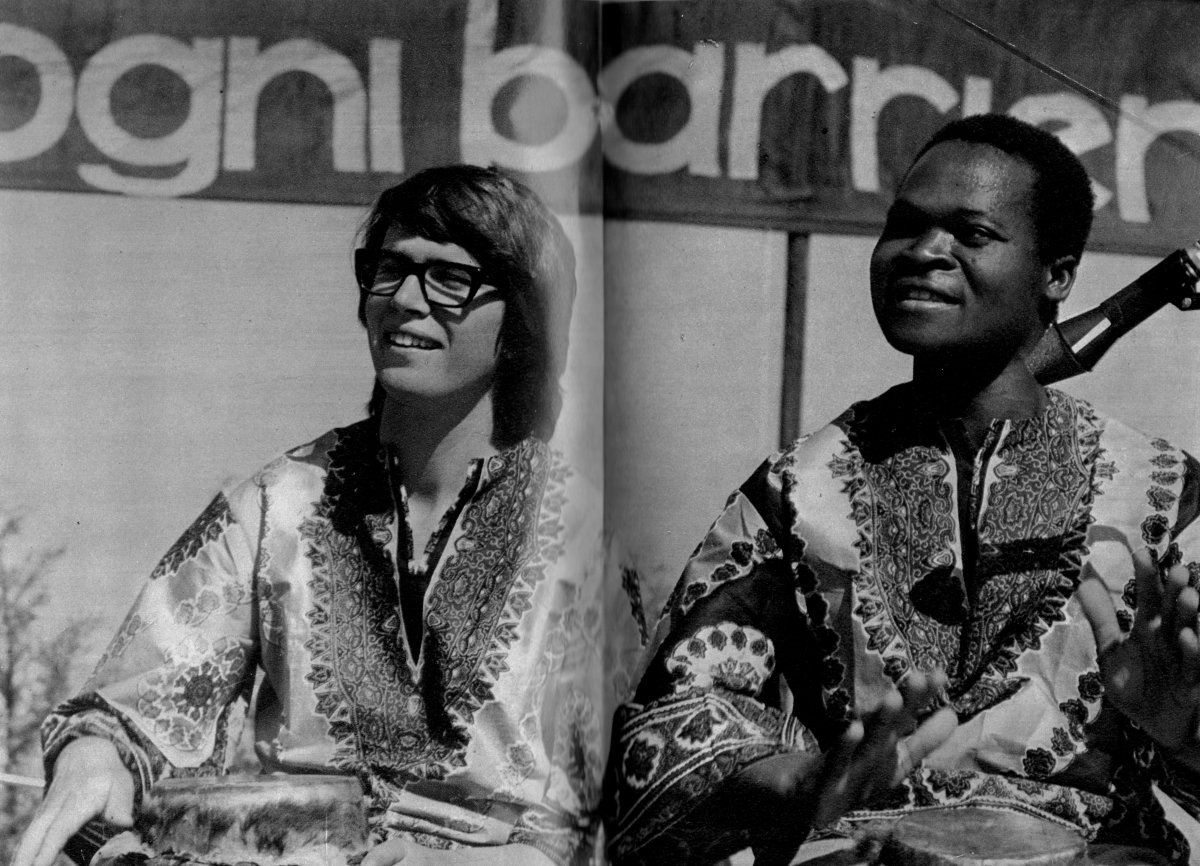
Participants from South Africa
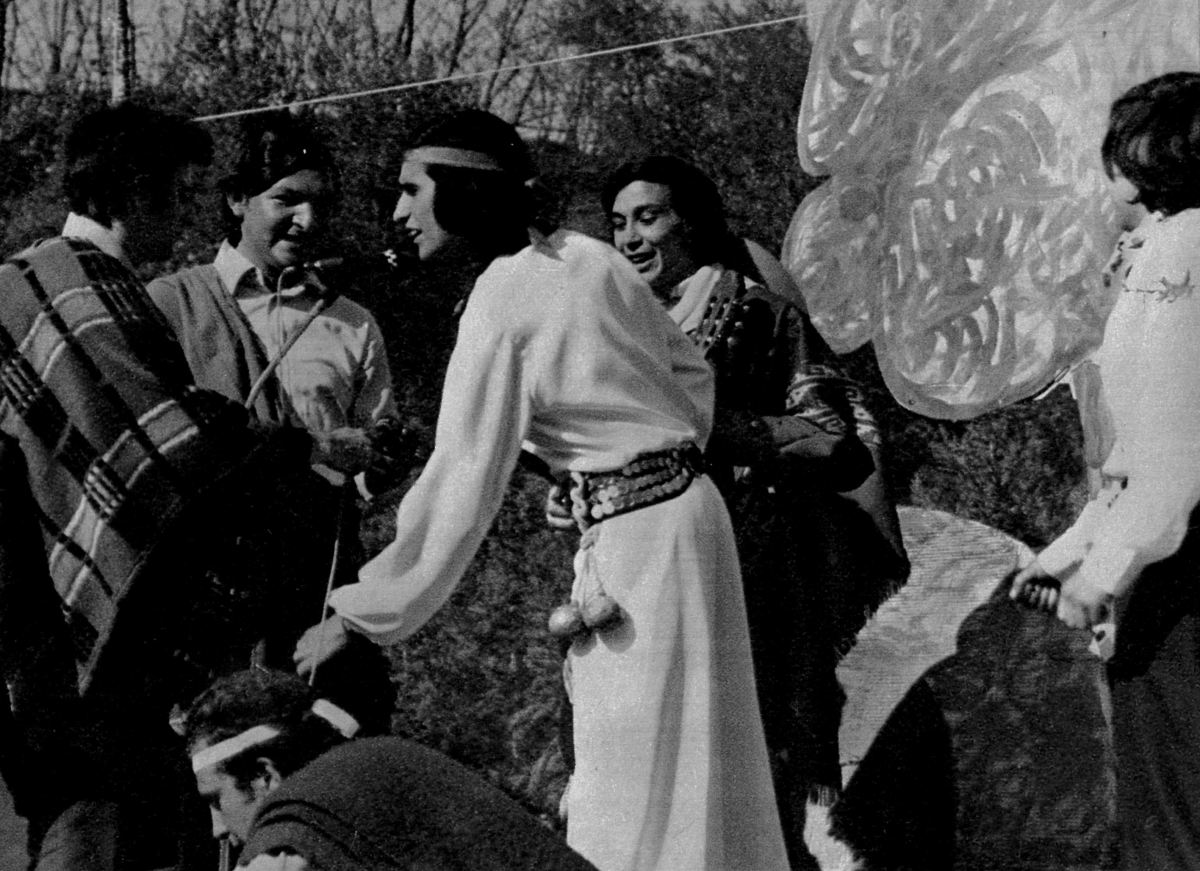
The group from Argentina
Gustavo Clariá
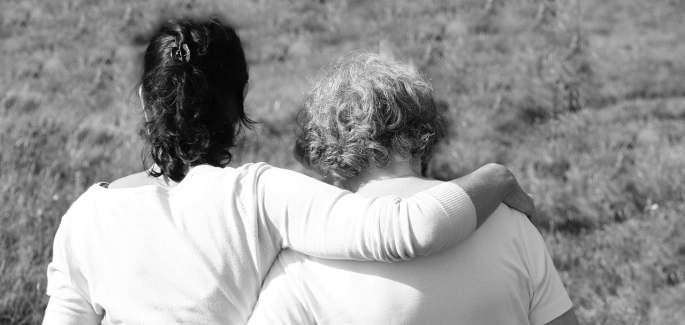
Oct 23, 2017 | Non categorizzato
 My return “My father passed away when I was 14. My mother, who was much younger than he was, gave us children much grief. She was often out with friends drinking, and she eventually left us for someone who divided his time between her and another family. After my siblings married, I found myself living alone, blaming my mother for all my pain. I could not forgive her. Yet I still called myself a Christian. I thought about the fact that she could not give me something she had not received herself. I realised it was up to me, since I had received the grace of the Gospel, to take the first step. It was a slow process. I started by calling her every so often, visiting her with small gifts and praying for her. Once I had felt like a victim of circumstances, but now I discovered that true happiness lies in loving without expecting anything in return. Even my relationship with her partner became more and more peaceful, and I try not to judge. Now I am the bridge between my siblings and my mother, and I’m sure that little by little they will come back to her.” (Alenne, Brazil) The cup of tea “I was in a cafe’ when I noticed an elderly lady asking for a cup of tea. She was quite poor, and the owner, thinking that she wouldn’t be able to pay, refused to serve her. I didn’t have much change in my pocket, but it would have been enough. I thought it was what Jesus would have done, so I said to the owner, “Give her the tea, I’ll pay.” To my surprise he answered: “That wouldn’t be fair. Your generosity helped me understand that it is much simpler for me, as the owner here, to offer it to her.” Taking the first step was all that was needed!” (John Paul, Pakistan) A hundredfold of love “For a number of years I’ve been working at a rehabilitation center, mostly with young people who, despite their vulnerability and suffering, are fighting to get back to a normal life. We work together in the kitchen each Thursday to prepare lunch. I thought I was being useful for them, but instead I’ve experienced that the love I give always comes back hundredfold. I understood that if we make an effort to welcome others as they are, with their weaknesses and painful histories, as Jesus would with a merciful eye, we can experience hope for a more peaceful future.” (Graziella, Italy) Forgetting my shortcomings “When I speak in public, my hands shake and my head gets a bit foggy. I tried to accept this and instead try to do something tangible for others. I started with small gestures, like helping my mother with the housework, or my siblings with their homework. Or I call my grandmother, who lives alone, and I go to visit her, bringing her some flowers or something sweet. At university I try to give a hand to those who are not as successful with exams. By doing this, my life didn’t just change, but I practically forgot all about my shortcomings.” (M., Germany)
My return “My father passed away when I was 14. My mother, who was much younger than he was, gave us children much grief. She was often out with friends drinking, and she eventually left us for someone who divided his time between her and another family. After my siblings married, I found myself living alone, blaming my mother for all my pain. I could not forgive her. Yet I still called myself a Christian. I thought about the fact that she could not give me something she had not received herself. I realised it was up to me, since I had received the grace of the Gospel, to take the first step. It was a slow process. I started by calling her every so often, visiting her with small gifts and praying for her. Once I had felt like a victim of circumstances, but now I discovered that true happiness lies in loving without expecting anything in return. Even my relationship with her partner became more and more peaceful, and I try not to judge. Now I am the bridge between my siblings and my mother, and I’m sure that little by little they will come back to her.” (Alenne, Brazil) The cup of tea “I was in a cafe’ when I noticed an elderly lady asking for a cup of tea. She was quite poor, and the owner, thinking that she wouldn’t be able to pay, refused to serve her. I didn’t have much change in my pocket, but it would have been enough. I thought it was what Jesus would have done, so I said to the owner, “Give her the tea, I’ll pay.” To my surprise he answered: “That wouldn’t be fair. Your generosity helped me understand that it is much simpler for me, as the owner here, to offer it to her.” Taking the first step was all that was needed!” (John Paul, Pakistan) A hundredfold of love “For a number of years I’ve been working at a rehabilitation center, mostly with young people who, despite their vulnerability and suffering, are fighting to get back to a normal life. We work together in the kitchen each Thursday to prepare lunch. I thought I was being useful for them, but instead I’ve experienced that the love I give always comes back hundredfold. I understood that if we make an effort to welcome others as they are, with their weaknesses and painful histories, as Jesus would with a merciful eye, we can experience hope for a more peaceful future.” (Graziella, Italy) Forgetting my shortcomings “When I speak in public, my hands shake and my head gets a bit foggy. I tried to accept this and instead try to do something tangible for others. I started with small gestures, like helping my mother with the housework, or my siblings with their homework. Or I call my grandmother, who lives alone, and I go to visit her, bringing her some flowers or something sweet. At university I try to give a hand to those who are not as successful with exams. By doing this, my life didn’t just change, but I practically forgot all about my shortcomings.” (M., Germany)
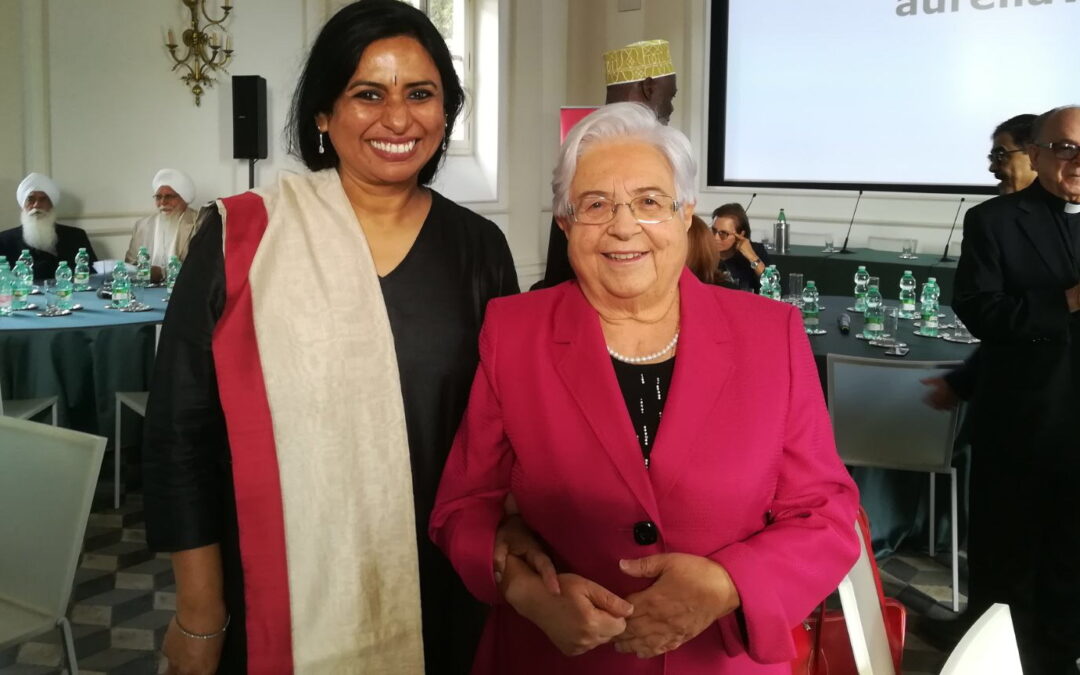
Oct 21, 2017 | Non categorizzato
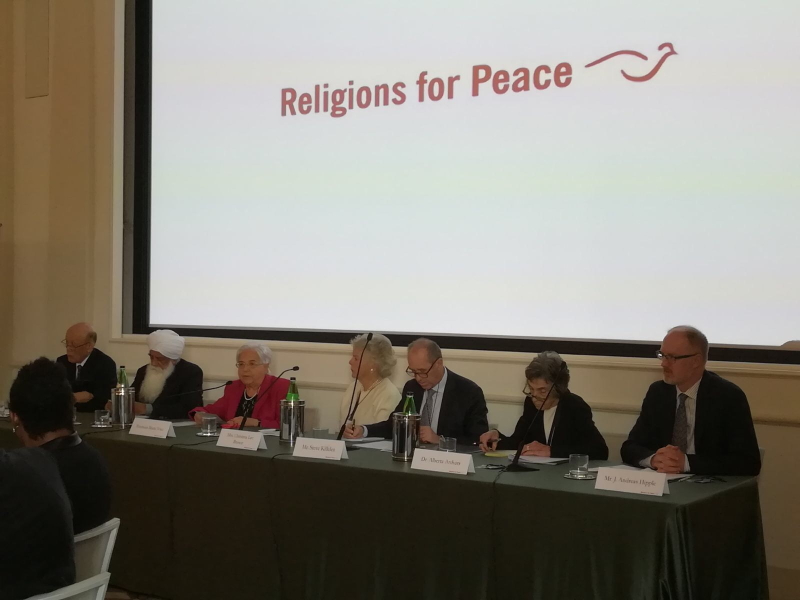 “There is a need for a common and cooperative effort on the part of the religions in promoting an integral ecology. Religions have the wherewithal to further a moral covenant that can promote respect for the dignity of the human person and care for creation”. This was a message that Pope Francis, prior to greeting the crowds at St Peter Square, addressed to the 80 delegates of Religions for Peace accompanied by Cardinal Jean-Louis Pierre Tauran, President of the Pontifical Council for Interreligious Dialogue. The Pope expressed his “esteem and appreciation for the work of “Religions for Peace”. You provide a valuable service to both religion and peace, for the religions are bound by their very nature to promote peace through justice, fraternity, disarmament and care for creation”.
“There is a need for a common and cooperative effort on the part of the religions in promoting an integral ecology. Religions have the wherewithal to further a moral covenant that can promote respect for the dignity of the human person and care for creation”. This was a message that Pope Francis, prior to greeting the crowds at St Peter Square, addressed to the 80 delegates of Religions for Peace accompanied by Cardinal Jean-Louis Pierre Tauran, President of the Pontifical Council for Interreligious Dialogue. The Pope expressed his “esteem and appreciation for the work of “Religions for Peace”. You provide a valuable service to both religion and peace, for the religions are bound by their very nature to promote peace through justice, fraternity, disarmament and care for creation”.
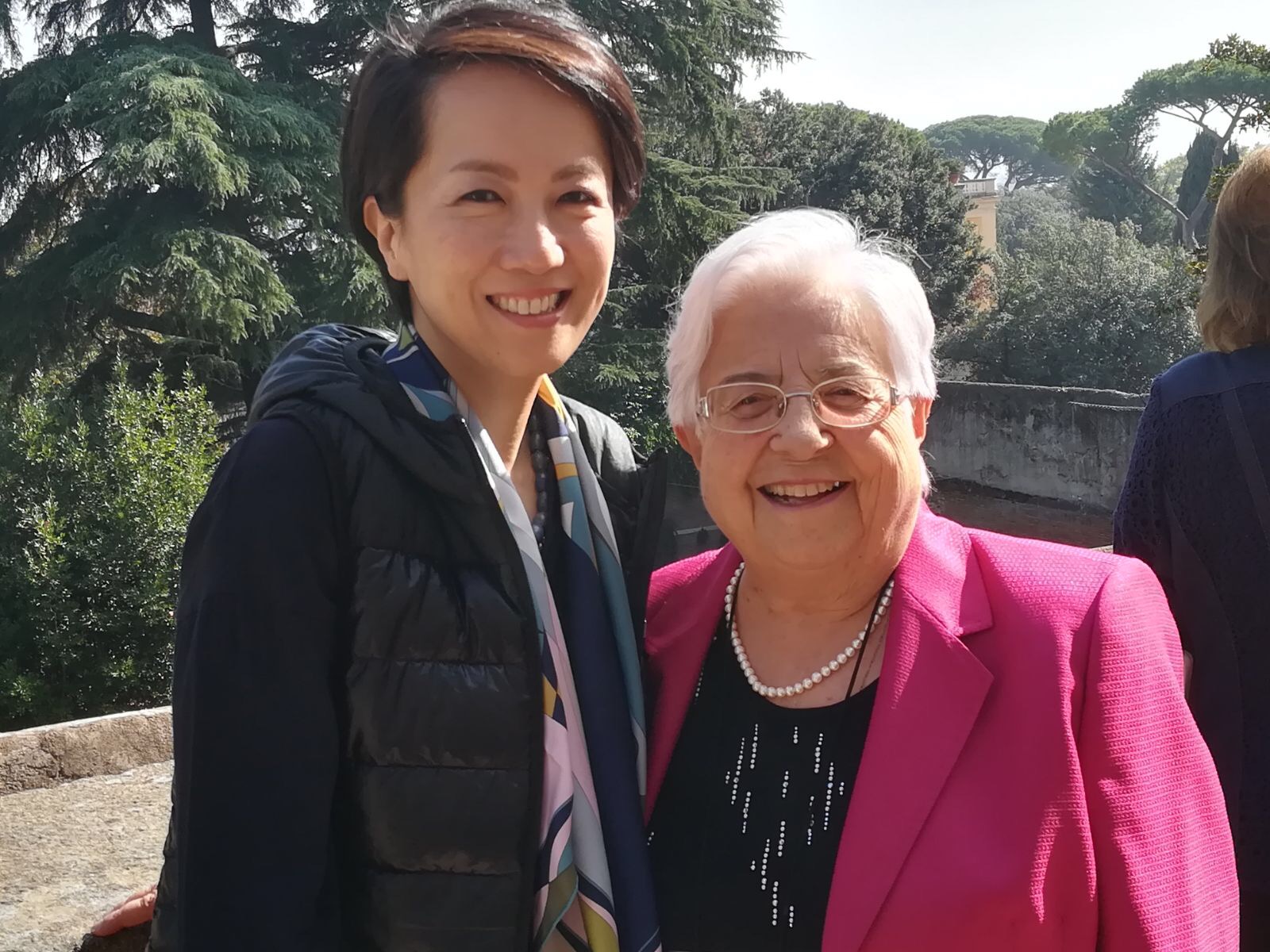
Maria Voce with Rev. Kosho Niwano, President-Designate of the Buddhist Movement Rissho Kosei-kai
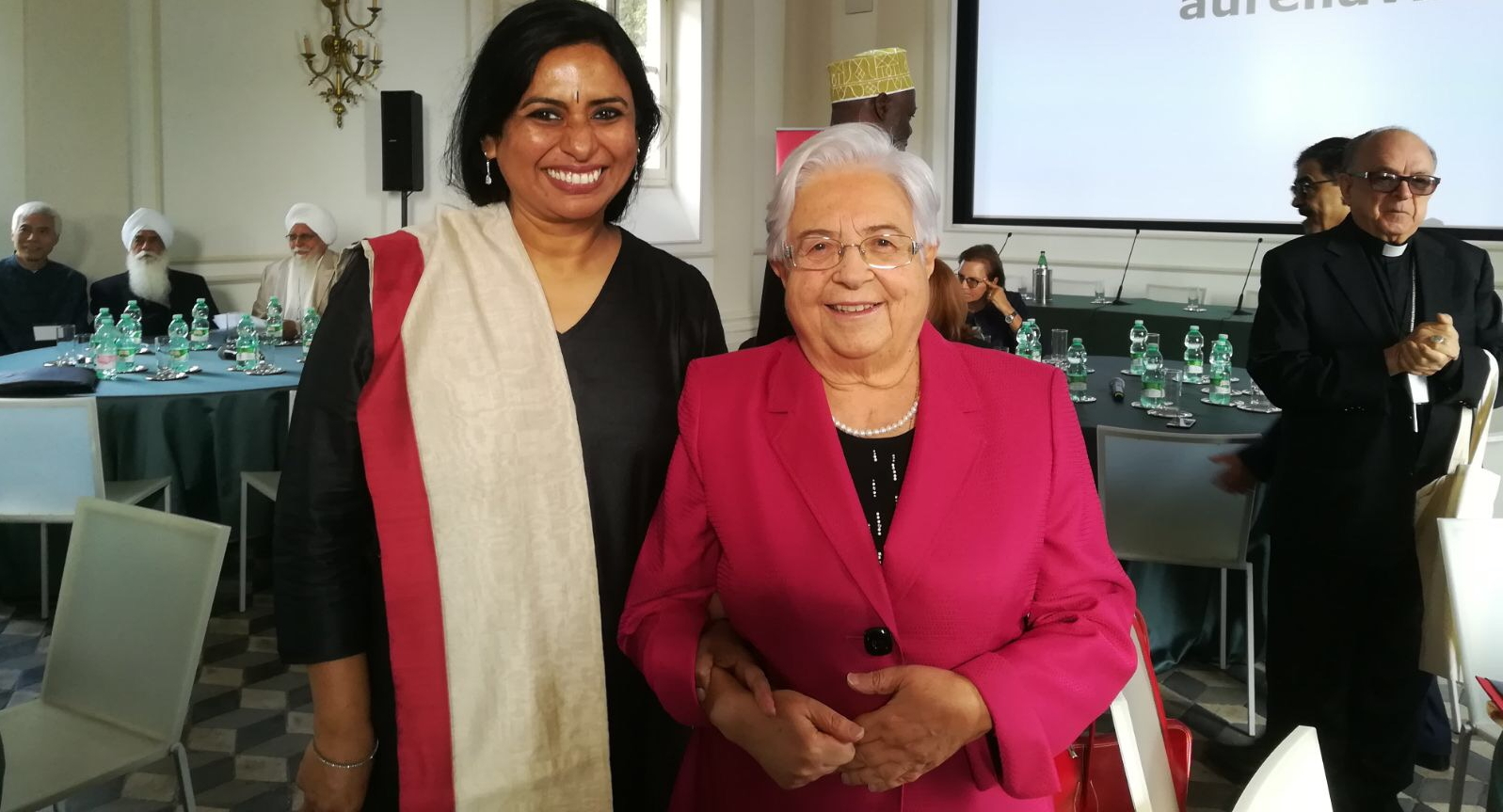
With Dr Vinu Aram, Director of Shanti Ashram and co-Moderator, Religions for Peace International.
Oct 20, 2017 | Non categorizzato
The death toll of the doublé suicide attack that took place last Saturday in Mogadishu, Somalia, continues to rise. The most recent news reports of at least 300 deaths and hundreds of injured. The October 14 attack was the most serious one in recent years, with 20 schoolchildren on a school bus. At the October 18th General Audience in St Peter’s Square, Pope Francis stated: “I want to express my sorrow for the massacre. This act of terrorism deplorable, also because it rages against a people that is already sorely tried.” He concluded: “I pray for the deceased and for the wounded, for their families and for the whole Somalian people. I implore the conversion of the violent and encourage all those who are working with enormous difficulty for peace in that battered country.”.
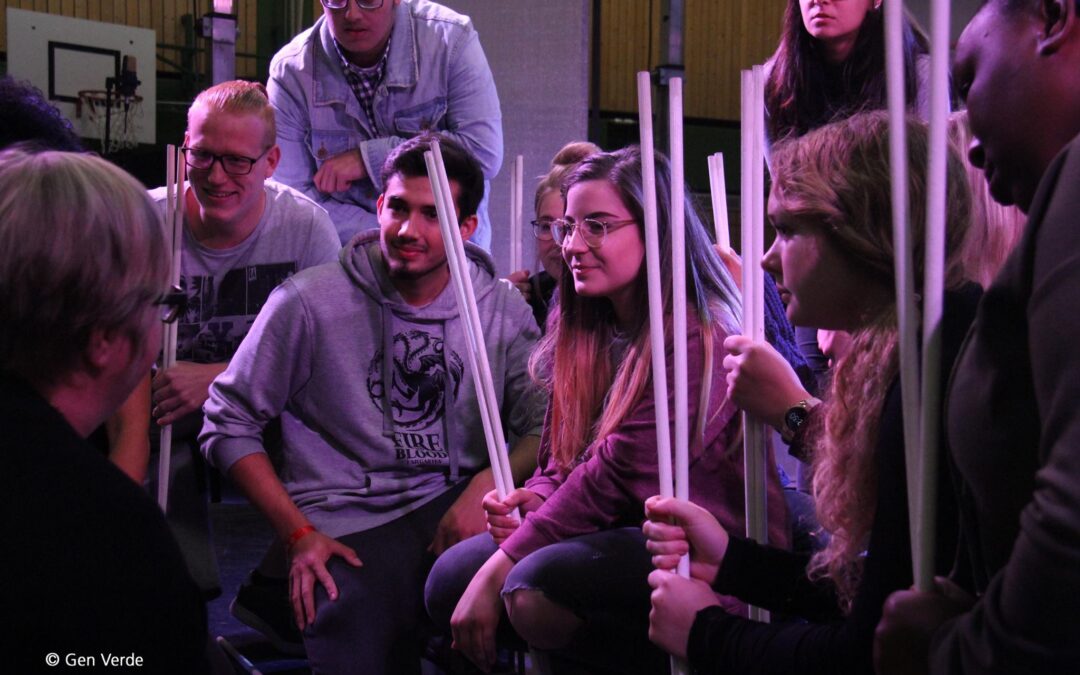
Oct 20, 2017 | Non categorizzato
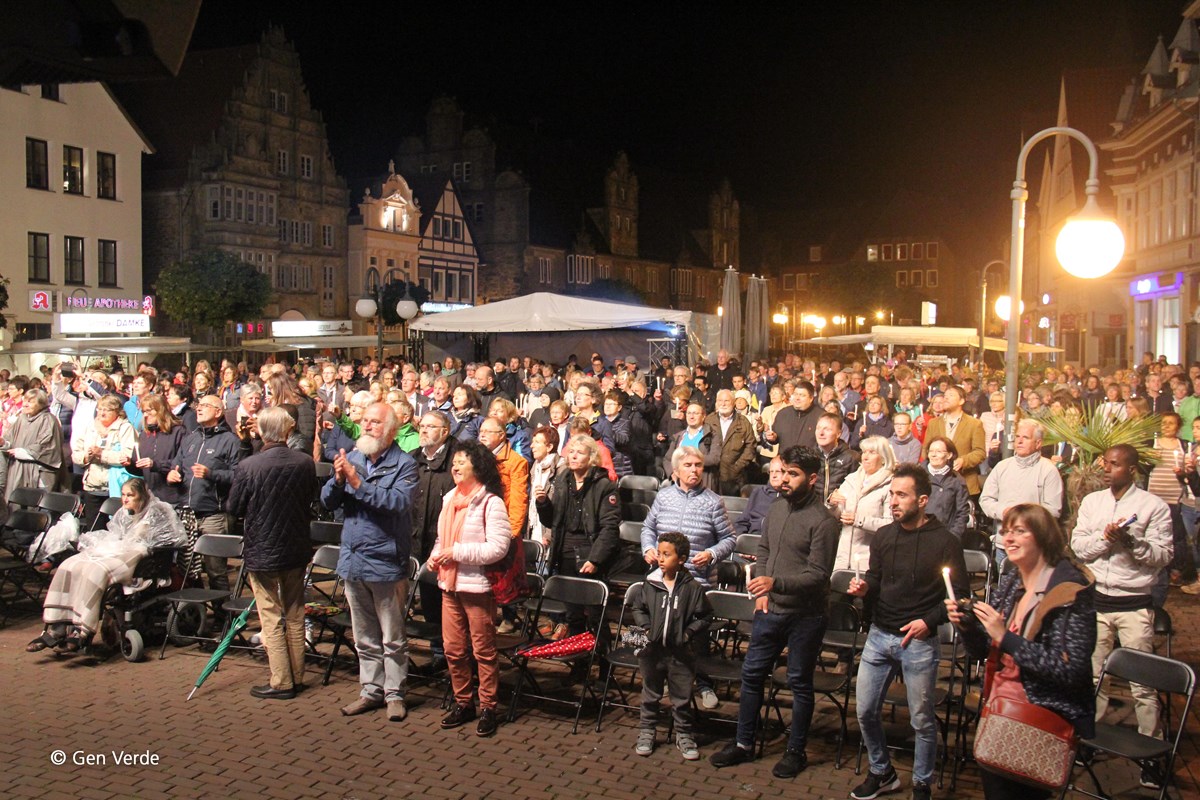 A month of dialogue, encounters and rediscovery of the “other’s” value. In a country characterized by a strong multi-ethnic feature, rhythm and music exercised a unifying power. On 9 September, in the town of Stadthagen, in the Lower Saxony region, on the occasion of the celebrations for the Reformation Jubilee, Gen Verde (22 members from 14 different countries) brought a note of internationality with the show, On the Other Side. A journey from one part of the planet to the other, recounted through personal experiences or that of entire populations, highlighted the wealth of diversity and the potential of those who find themselves “on the other side.” On 15 September in Boppard, at the local Fazenda da Esperança, community that challenges drug addiction in the perspective of a rebirth, the La vita LIVE concert became the occasion for a personal encounter between the members of the band and the experiences of the youth. The opportunity to understand that each one can take a small but huge step to change something, and to discover each other as brothers.
A month of dialogue, encounters and rediscovery of the “other’s” value. In a country characterized by a strong multi-ethnic feature, rhythm and music exercised a unifying power. On 9 September, in the town of Stadthagen, in the Lower Saxony region, on the occasion of the celebrations for the Reformation Jubilee, Gen Verde (22 members from 14 different countries) brought a note of internationality with the show, On the Other Side. A journey from one part of the planet to the other, recounted through personal experiences or that of entire populations, highlighted the wealth of diversity and the potential of those who find themselves “on the other side.” On 15 September in Boppard, at the local Fazenda da Esperança, community that challenges drug addiction in the perspective of a rebirth, the La vita LIVE concert became the occasion for a personal encounter between the members of the band and the experiences of the youth. The opportunity to understand that each one can take a small but huge step to change something, and to discover each other as brothers. 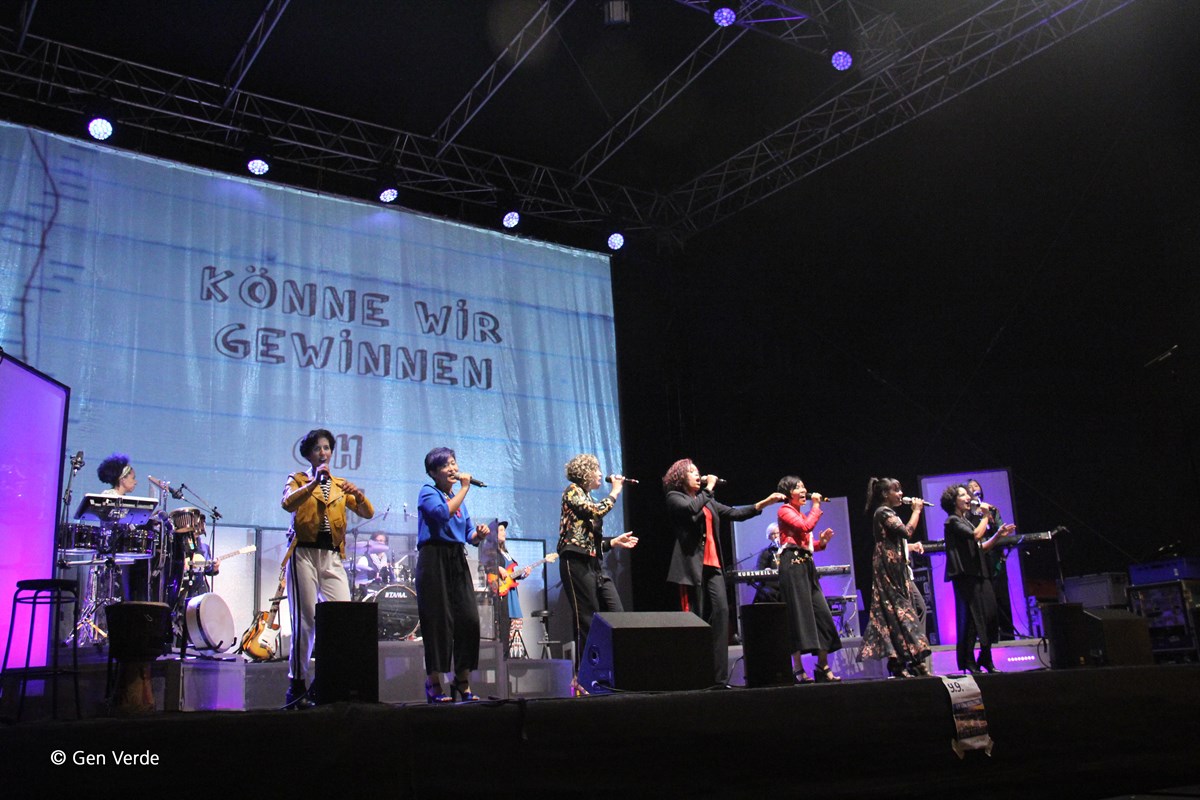 The following days, Gen Verde’s typical artistic features were expressed in a Start Now workshop: an intense boot camp that lasted five days, held in each of the three stopovers, working side by side with boys and girls. During the creative stage, which comes about always in a new and unforeseeable way, the youths worked in teams to develop their own talents and potentials, co-protagonists of a fascinating experience based on mutual listening and transparency. After two days of intense work, supported by the group’s trust and respect, the youths performed with the band in the final show, in a crescendo of emotions. There were three workshop-shows: in Dortmund, where the group worked with 170 boys and girls and in Duderstadt, with the students of three schools, among which a big group of immigrants, and lastly in Mannheim, with men and women living in a big refugee camp.
The following days, Gen Verde’s typical artistic features were expressed in a Start Now workshop: an intense boot camp that lasted five days, held in each of the three stopovers, working side by side with boys and girls. During the creative stage, which comes about always in a new and unforeseeable way, the youths worked in teams to develop their own talents and potentials, co-protagonists of a fascinating experience based on mutual listening and transparency. After two days of intense work, supported by the group’s trust and respect, the youths performed with the band in the final show, in a crescendo of emotions. There were three workshop-shows: in Dortmund, where the group worked with 170 boys and girls and in Duderstadt, with the students of three schools, among which a big group of immigrants, and lastly in Mannheim, with men and women living in a big refugee camp. 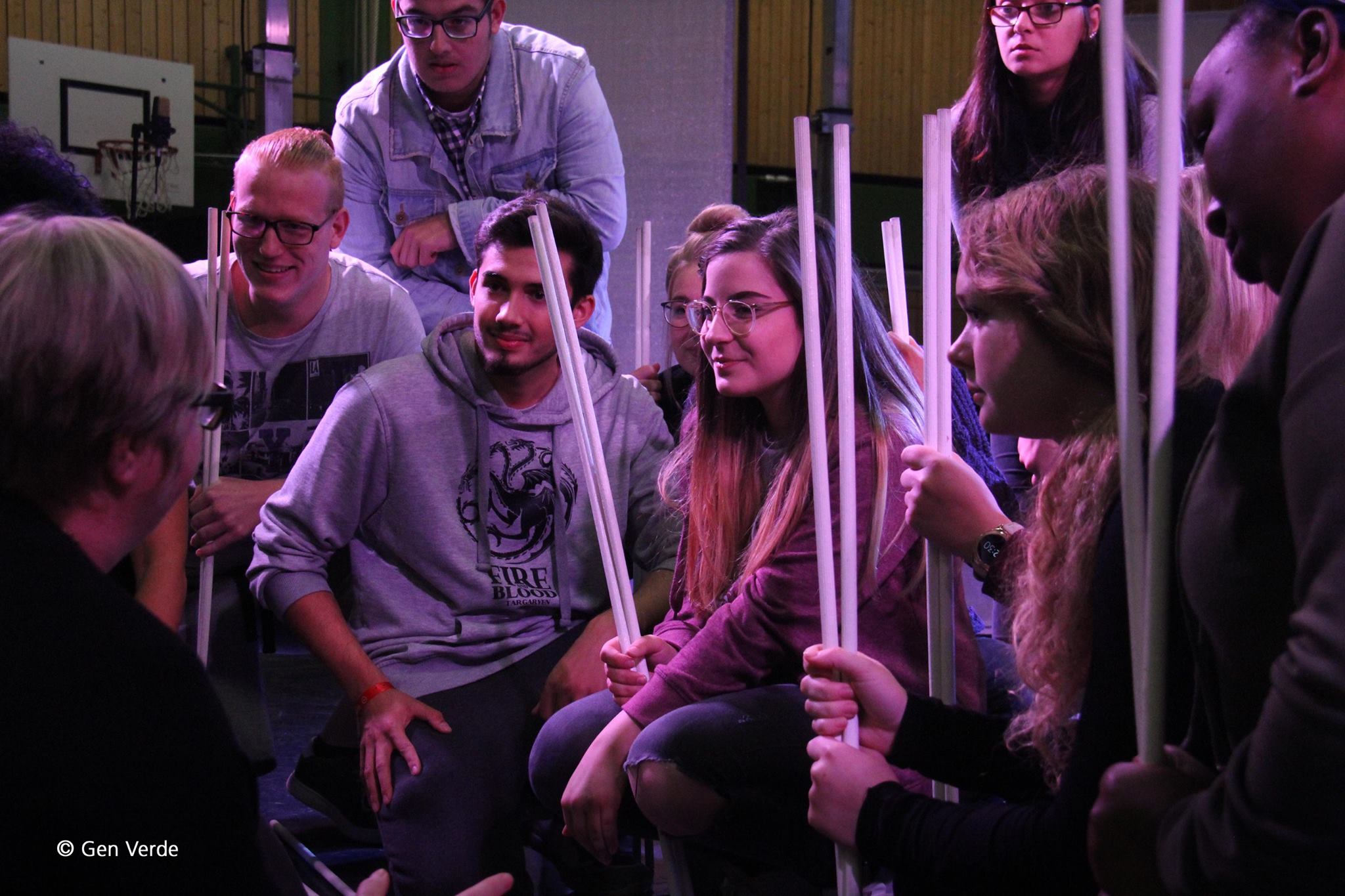 In every city, during the final show, the same miracle came about though with different characteristics: changes in life, atmosphere of deep fraternity, and the involvement even of those who were initially reluctant. “It is incredible what one can do in just two days!” exclaimed a still incredulous girl. And a young boy: “The errors did not paralyse us, but rather, we were encouraged to go on.” Particularly in Mannheim, Gen Verde met people who had suffered such heartbreaking pain, and had been subjected to barbarous treatment or had lost all their possessions. The group members recounted: “We went to visit them where they live, and they shared their stories with us. During the soiree, when we sang “Who will cry for you,” many relived moments of the tragedies they had undergone.” And the words “No one is a stranger to me” resounded like never before. Fotogallery
In every city, during the final show, the same miracle came about though with different characteristics: changes in life, atmosphere of deep fraternity, and the involvement even of those who were initially reluctant. “It is incredible what one can do in just two days!” exclaimed a still incredulous girl. And a young boy: “The errors did not paralyse us, but rather, we were encouraged to go on.” Particularly in Mannheim, Gen Verde met people who had suffered such heartbreaking pain, and had been subjected to barbarous treatment or had lost all their possessions. The group members recounted: “We went to visit them where they live, and they shared their stories with us. During the soiree, when we sang “Who will cry for you,” many relived moments of the tragedies they had undergone.” And the words “No one is a stranger to me” resounded like never before. Fotogallery
https://vimeo.com/236654355
Oct 19, 2017 | Focolare Worldwide
The clashes have started again and the tension is high. On 22 September and 1 October the army suppressed the peaceful demonstrations, killing and wounding some of the protesters who were asking for the independence of the British-speaking regions. That same day in the Northwest and Southwest Regions (inhabited by an English minority, 20 % of Cameroon’s population), once again internet was cut off. The “English-speaking issue” is well rooted in the past. In October 2016, the English-speaking population had started to hold organized protests against its progressive marginalisation. After months of tensions and accusations of discrimination, violent repressions followed, with real guerilla actions. Fr. Antonio Mascia writes from Fontem: “This is a delicate and uncertain time from the socio-political point of view, and we do not know where it will lead to. In various cities, soldiers of the army shot at the crowd that was peacefully demonstrating and many people were arrested. We are counting on your prayers.”
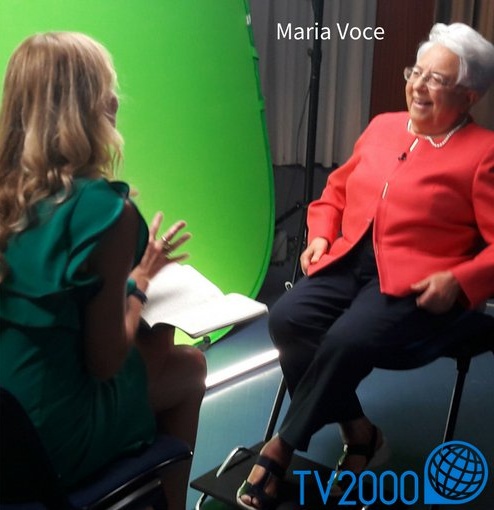
Oct 19, 2017 | Non categorizzato
 “Soul” is the name of a television program that seeks “to go deep into the soul” of key figures of our times who have a great depth of human and cultural experience. On Sunday, September 24th, Monica Mondo, the show’s presenter, conducted an interview with Maria Voce. A group of girls in Trent . . . a disastrous context of war. “An inspiration had made Chiara Lubich understand the need for an eternal ideal that doesn’t pass away. This ideal is God.” These were the first words by the Focolare president, Maria Voce, during an interview that ranged from the origins of the Focolare Movement to its current challenges. It is the only Movement in the ecclesial world that, according to its Statutes, must be led by a woman. “The recognition of women is much simpler than we think. It means recognizing their specific characteristics without which people cannot express themselves. God created humankind in his image and likeness, and he created it distinctly, man and woman, to create humanity in them. The woman’s role is very important. It’s her femininity, her capacity to give herself and be disposed to sacrifice.” Referring to her personal experience, Maria Voce explained, “I come from a traditional practising Catholic family. The problem started when I decided to give myself to God. My father was quite attached to me and had many plans for me. Being the first of seven children, it was also normal for me to think; I will get married and have many children. The Movement made it possible for me to live the Gospel in its entirety. It changed my life. I continued to practice law in my region, but I began to meet my clients seeing them as neighbours I could love. This was the transformation in my life. When I was in the focolare community in Turkey, my father wrote me for the first time on my birthday, ‘Best wishes! Dad’. A few days later, he died of a heart attack. I felt it was God’s love that had reconciled him to my choice in life.” What is a “hearth” (focolare), a house? “It’s a group of people who live together, all called by God to the same vocation, each being ready to give their life for the others, moment by moment – in order to be Work of Mary. The greatest work Mary did was to give Jesus to the world. The men and women focolarini want to relive Mary by having the living presence of Jesus among them through mutual love.” Virginity is a word that is not in vogue nowadays. “Virginity is the answer to a calling. Out of love, Jesus calls someone to an infinite love; and infinite does not have parts, the infinite is everything. If God calls with this love, the answer can only be an all-encompassing love. To live marriage, too, you need to be virgins at heart.” Chiara Lubich gave you another name. A strange name, the name of a place? “Yes. Emmaus. It expresses the desire and the effort to enable Jesus to be present even after his death and Resurrection, and to walk with Him.” Succeeding a founder is not easy. It is difficult to reconcile faithfulness and contemporising of a charism. “The inspiration lies in the charism. The charism is eternal; people pass away. Chiara Lubich lived this charism to the full in her times, and she has handed it on to us. We are united to the source, but now the question we ask is; ‘What would Chiara say today?’ This is what guides my actions. It’s not repetition; there are many things now that weren’t there in Chiara’s day.” Is this still the age of Movements? “The Movements have characteristics that foster Christian life. They still have much to say and give, not only for young people but for the health of families.” Catholics involved in politics and Europe. What is your view? “If Europe forgets its Christian roots, it will disappear. Therefore, it is important for Catholics to work in politics, to revalue their Christian roots, recognizing the equal dignity of other people, because we are all sons and daughters of God. You can dialogue with everybody, whatever their creed, because you dialogue with people. Loving our enemies is still part of the Gospel!” Is there still the capacity to come up with places, experiences, and new ways? “We don’t need to create new things, but to renew the world with the charism we have. I think of the people from the Movement, from all walks of life, who decide to give up their vacations to travel to the Amazon, to share the Gospel life with people there; or who move to another place in order to build a school for poor children.” How do you distinguish between witness, evangelization and dialogue, without imposing ideas or being combative? “We should proclaim Christ first and foremost with our life. If our life witnesses to Christ, eventually other people will become interested in knowing what is at the root of it. The unity [we speak of] is the one the Gospel talks about, it is unity in God, with which each one identifies, because all are children of God and brothers and sisters to one another. If there is not this foundation, then you cannot talk about unity, but mutual understanding. Unity comes from God and is in God. You can experience it with people who aren’t of the same faith or do not have the same way of seeing things, but who are willing to join together for a greater ideal, that of being brothers and sisters.” Do Catholics hide themselves too much? “They need to be more incisive. Perhaps one of the fruits of the Movement is to reawaken the Christian DNA we bring with us from Baptism.” You still have a lawyer’s attitude! If you had to defend a cause right now, what cause would you devote yourself to with the greatest passion? Maria Voce did not hesitate to say, “Universal brotherhood.” Read the full interview https://youtu.be/WzIuz75PTMM
“Soul” is the name of a television program that seeks “to go deep into the soul” of key figures of our times who have a great depth of human and cultural experience. On Sunday, September 24th, Monica Mondo, the show’s presenter, conducted an interview with Maria Voce. A group of girls in Trent . . . a disastrous context of war. “An inspiration had made Chiara Lubich understand the need for an eternal ideal that doesn’t pass away. This ideal is God.” These were the first words by the Focolare president, Maria Voce, during an interview that ranged from the origins of the Focolare Movement to its current challenges. It is the only Movement in the ecclesial world that, according to its Statutes, must be led by a woman. “The recognition of women is much simpler than we think. It means recognizing their specific characteristics without which people cannot express themselves. God created humankind in his image and likeness, and he created it distinctly, man and woman, to create humanity in them. The woman’s role is very important. It’s her femininity, her capacity to give herself and be disposed to sacrifice.” Referring to her personal experience, Maria Voce explained, “I come from a traditional practising Catholic family. The problem started when I decided to give myself to God. My father was quite attached to me and had many plans for me. Being the first of seven children, it was also normal for me to think; I will get married and have many children. The Movement made it possible for me to live the Gospel in its entirety. It changed my life. I continued to practice law in my region, but I began to meet my clients seeing them as neighbours I could love. This was the transformation in my life. When I was in the focolare community in Turkey, my father wrote me for the first time on my birthday, ‘Best wishes! Dad’. A few days later, he died of a heart attack. I felt it was God’s love that had reconciled him to my choice in life.” What is a “hearth” (focolare), a house? “It’s a group of people who live together, all called by God to the same vocation, each being ready to give their life for the others, moment by moment – in order to be Work of Mary. The greatest work Mary did was to give Jesus to the world. The men and women focolarini want to relive Mary by having the living presence of Jesus among them through mutual love.” Virginity is a word that is not in vogue nowadays. “Virginity is the answer to a calling. Out of love, Jesus calls someone to an infinite love; and infinite does not have parts, the infinite is everything. If God calls with this love, the answer can only be an all-encompassing love. To live marriage, too, you need to be virgins at heart.” Chiara Lubich gave you another name. A strange name, the name of a place? “Yes. Emmaus. It expresses the desire and the effort to enable Jesus to be present even after his death and Resurrection, and to walk with Him.” Succeeding a founder is not easy. It is difficult to reconcile faithfulness and contemporising of a charism. “The inspiration lies in the charism. The charism is eternal; people pass away. Chiara Lubich lived this charism to the full in her times, and she has handed it on to us. We are united to the source, but now the question we ask is; ‘What would Chiara say today?’ This is what guides my actions. It’s not repetition; there are many things now that weren’t there in Chiara’s day.” Is this still the age of Movements? “The Movements have characteristics that foster Christian life. They still have much to say and give, not only for young people but for the health of families.” Catholics involved in politics and Europe. What is your view? “If Europe forgets its Christian roots, it will disappear. Therefore, it is important for Catholics to work in politics, to revalue their Christian roots, recognizing the equal dignity of other people, because we are all sons and daughters of God. You can dialogue with everybody, whatever their creed, because you dialogue with people. Loving our enemies is still part of the Gospel!” Is there still the capacity to come up with places, experiences, and new ways? “We don’t need to create new things, but to renew the world with the charism we have. I think of the people from the Movement, from all walks of life, who decide to give up their vacations to travel to the Amazon, to share the Gospel life with people there; or who move to another place in order to build a school for poor children.” How do you distinguish between witness, evangelization and dialogue, without imposing ideas or being combative? “We should proclaim Christ first and foremost with our life. If our life witnesses to Christ, eventually other people will become interested in knowing what is at the root of it. The unity [we speak of] is the one the Gospel talks about, it is unity in God, with which each one identifies, because all are children of God and brothers and sisters to one another. If there is not this foundation, then you cannot talk about unity, but mutual understanding. Unity comes from God and is in God. You can experience it with people who aren’t of the same faith or do not have the same way of seeing things, but who are willing to join together for a greater ideal, that of being brothers and sisters.” Do Catholics hide themselves too much? “They need to be more incisive. Perhaps one of the fruits of the Movement is to reawaken the Christian DNA we bring with us from Baptism.” You still have a lawyer’s attitude! If you had to defend a cause right now, what cause would you devote yourself to with the greatest passion? Maria Voce did not hesitate to say, “Universal brotherhood.” Read the full interview https://youtu.be/WzIuz75PTMM

Oct 18, 2017 | Non categorizzato
 We wish to express our joy and relief to hear about Fr Maurizio Pallù‘s release last night, shortly before midnight,in Nigeria, The Italian priest, who belongs to the Neocatechumenal Way, was abducted on 12 October on his way to Benin City. He has been working in the African nation for three years following a long experience as a missionary in different parts of the world. The confirmation of his release was announced by the Italian Foreign Minister.
We wish to express our joy and relief to hear about Fr Maurizio Pallù‘s release last night, shortly before midnight,in Nigeria, The Italian priest, who belongs to the Neocatechumenal Way, was abducted on 12 October on his way to Benin City. He has been working in the African nation for three years following a long experience as a missionary in different parts of the world. The confirmation of his release was announced by the Italian Foreign Minister.
Oct 18, 2017 | Non categorizzato
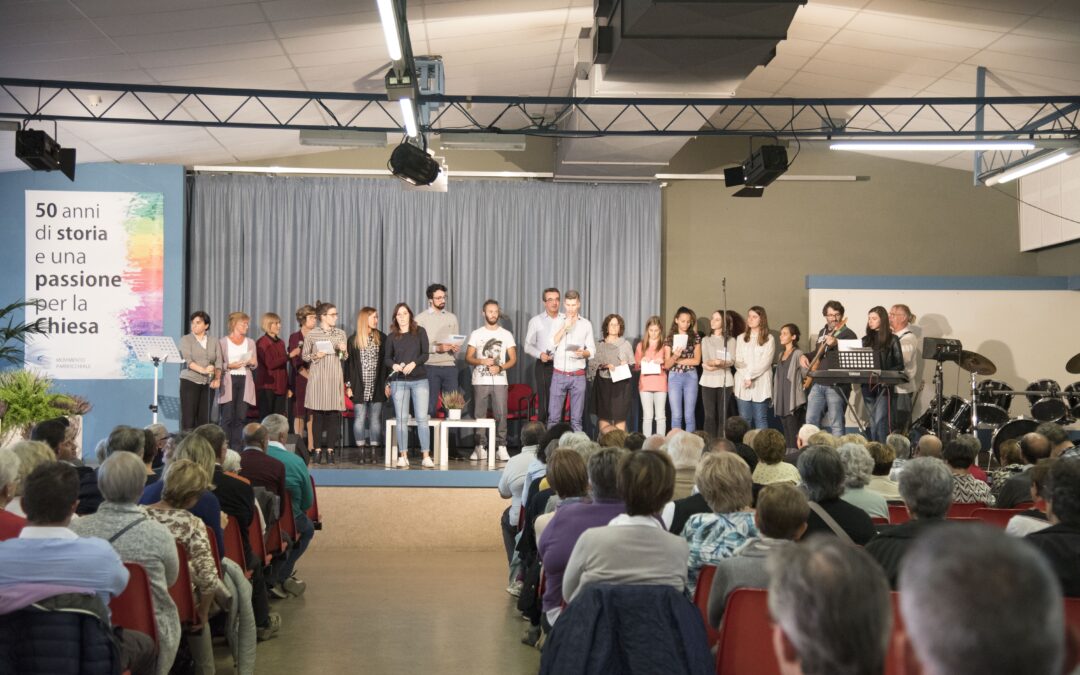
Oct 17, 2017 | Non categorizzato
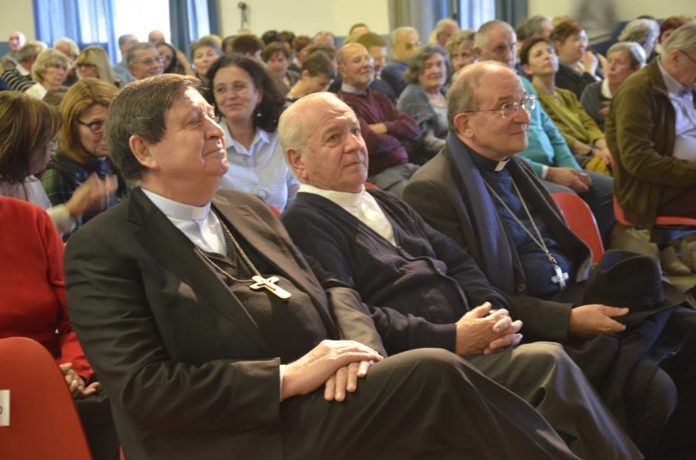 The picturesque setting with mountains all around was a welcoming scene that embraced all the people that went up the Val di Lanzo for the celebration of the 50th anniversary of the founding of the Parish Movement. The event was titled 50 Years of Passion for the Church and was held at the Maria Orsola Centre, which was filled to the brim with people from the area. Among them was Cardinal card. João Bráz de Aviz, Prefect of the Congregation for Institutes of Consecrated Life and Apostolic Life; along with Giuseppe Petrocchi, Archbishop of Aquila. In her message, Focolare president, Maria Voce, mentioned how fifty years before, in Vallo, one of the first communities gathered with Archbishop Vincenzo Chiarle to live the Focolare’s spirituality of communion and give “witness to an authentic lifestyle of the Gospel in the context of a parish, renewing spirits and structures.” They were a model of a “living church,” according to the definition of Archbishop Petrocchi, small in size, but great in spirit and in service. An example of holiness emerged from the community, the sixteen year-old Maria Orsola, now on her way to official recognition as a model of holiness.
The picturesque setting with mountains all around was a welcoming scene that embraced all the people that went up the Val di Lanzo for the celebration of the 50th anniversary of the founding of the Parish Movement. The event was titled 50 Years of Passion for the Church and was held at the Maria Orsola Centre, which was filled to the brim with people from the area. Among them was Cardinal card. João Bráz de Aviz, Prefect of the Congregation for Institutes of Consecrated Life and Apostolic Life; along with Giuseppe Petrocchi, Archbishop of Aquila. In her message, Focolare president, Maria Voce, mentioned how fifty years before, in Vallo, one of the first communities gathered with Archbishop Vincenzo Chiarle to live the Focolare’s spirituality of communion and give “witness to an authentic lifestyle of the Gospel in the context of a parish, renewing spirits and structures.” They were a model of a “living church,” according to the definition of Archbishop Petrocchi, small in size, but great in spirit and in service. An example of holiness emerged from the community, the sixteen year-old Maria Orsola, now on her way to official recognition as a model of holiness. 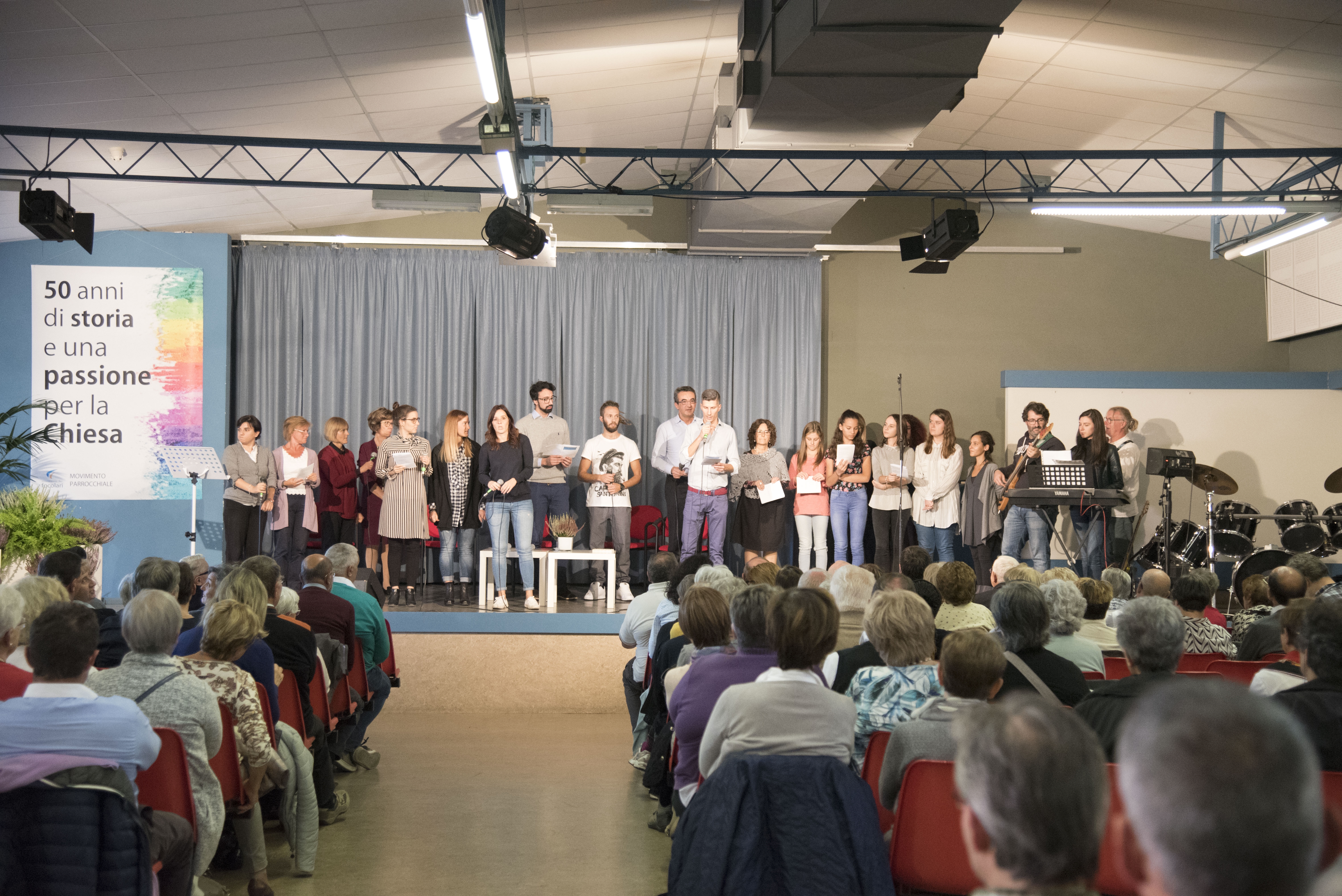 From the intuition of Chiara Lubich going back to the late 1940s regarding the influence that the spirituality of unity would have on parish communities, to the historic meeting with Paul VI in 1967, which marks the official beginnings, the history of the Parish Movement was described by the first witnesses. The commitment continues. Vallo continues to be a popular destination for groups of young people and communities because of the spirituality of communion that is lived there. Today Vallo welcomes many communities from all the regions of Italy and the world. Bruno and Luisa, one married couple from Genoa, Italy, share their testimony of active involvement in strict unity with their pastor. The experience of Luca was very touching. Thanks to the support of the young people from his parish, he was able to transform the unexpected side effects of a road accident, into a rediscovery of prayer and the precious value of life. As Archbishop of Turin, Cesare Nosiglia commented in his open address, celebrating 50 years of life means to go back to the roots and keep moving on towards the new challenges. Carla Cotignoli
From the intuition of Chiara Lubich going back to the late 1940s regarding the influence that the spirituality of unity would have on parish communities, to the historic meeting with Paul VI in 1967, which marks the official beginnings, the history of the Parish Movement was described by the first witnesses. The commitment continues. Vallo continues to be a popular destination for groups of young people and communities because of the spirituality of communion that is lived there. Today Vallo welcomes many communities from all the regions of Italy and the world. Bruno and Luisa, one married couple from Genoa, Italy, share their testimony of active involvement in strict unity with their pastor. The experience of Luca was very touching. Thanks to the support of the young people from his parish, he was able to transform the unexpected side effects of a road accident, into a rediscovery of prayer and the precious value of life. As Archbishop of Turin, Cesare Nosiglia commented in his open address, celebrating 50 years of life means to go back to the roots and keep moving on towards the new challenges. Carla Cotignoli
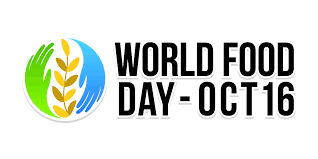
Oct 16, 2017 | Non categorizzato
 Established by FAO (Food and Agriculture Organization) of the United Nations, World Food Day is celebrated annually on 16 October to raise public awareness regarding poverty, hunger and malnutrition in the world, as well as issues regarding food safety and methods to improve agricultural productivity. This year the theme is focused on: “Change the future of migration. Invest in food security and rural development.”. During an official visit to the FAO headquarters in Rome, Pope Francis reminded everyone this morning that “all human beings have the right to, without having to part from their loved ones.” “Faced with such a goal,” he said, “the credibility of the entire international system is at stake. (…) It is therefore urgent to find new paths, to transform the possibilities available to us into a guarantee that permits each person to look to the future with well-founded trust and not only with desire.” Significantly, In the entrance hall, the sculpture donated by the Holy Father to the FAO was unveiled, depicting the small Syrian who drowned at the beach in Bodrum,Turkey. A warning not to forget.
Established by FAO (Food and Agriculture Organization) of the United Nations, World Food Day is celebrated annually on 16 October to raise public awareness regarding poverty, hunger and malnutrition in the world, as well as issues regarding food safety and methods to improve agricultural productivity. This year the theme is focused on: “Change the future of migration. Invest in food security and rural development.”. During an official visit to the FAO headquarters in Rome, Pope Francis reminded everyone this morning that “all human beings have the right to, without having to part from their loved ones.” “Faced with such a goal,” he said, “the credibility of the entire international system is at stake. (…) It is therefore urgent to find new paths, to transform the possibilities available to us into a guarantee that permits each person to look to the future with well-founded trust and not only with desire.” Significantly, In the entrance hall, the sculpture donated by the Holy Father to the FAO was unveiled, depicting the small Syrian who drowned at the beach in Bodrum,Turkey. A warning not to forget.
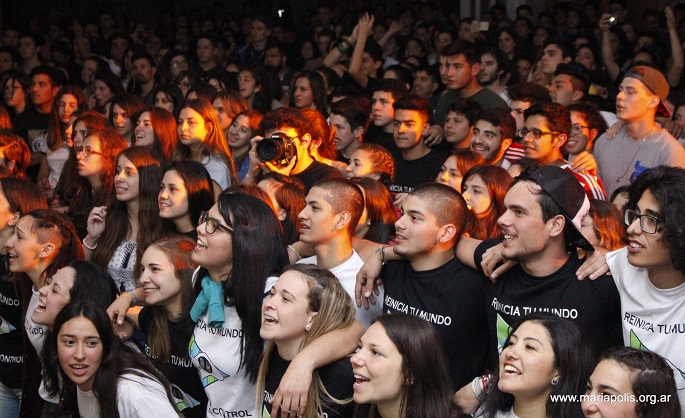
Oct 16, 2017 | Focolare Worldwide
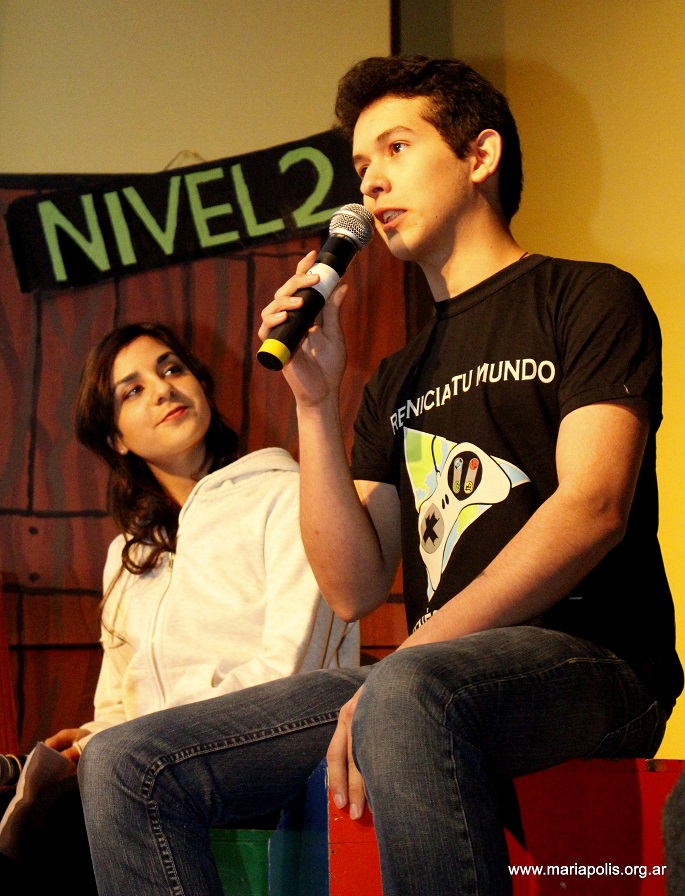 Once again this year the Youth Fest that coincides with the start of spring in the southern hemisphere, has made its mark. On September 23 and 24 more than a thousand young people from Uruguay, Paraguay and several regions of Argentina took over the permanent Mariapolis immersed in the Argentinian Pampas, to have an experience of brotherhood. But this year they’re looking farther – to Manila where the 2018 Genfest will be held with young people from around the world.
Once again this year the Youth Fest that coincides with the start of spring in the southern hemisphere, has made its mark. On September 23 and 24 more than a thousand young people from Uruguay, Paraguay and several regions of Argentina took over the permanent Mariapolis immersed in the Argentinian Pampas, to have an experience of brotherhood. But this year they’re looking farther – to Manila where the 2018 Genfest will be held with young people from around the world. 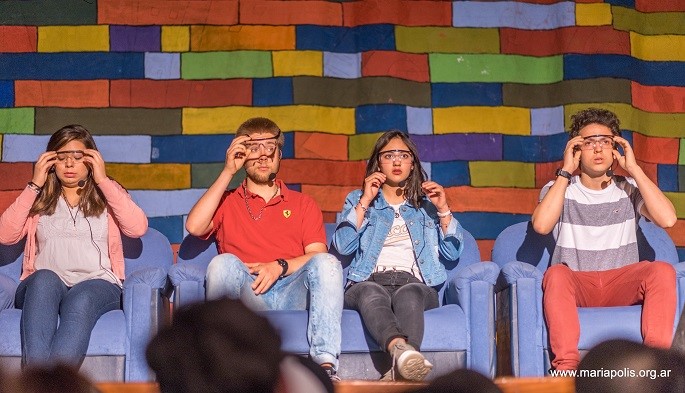 Using a video game format, the young people gradually confront some of the issues they have to face in their daily lives: appearance, individualism, choices and consumerism. These are the four levels that the four actors on stage have to pass through to overcome and reach the last level with each other’s help. The keys that get them through each level are: values such as self-acceptance, solidarity, effort with regard to what the conscience suggests to every one of us, and sharing. But often you need to take into account the past that draws you back and the future that can paralyse you. Only one option is left: to live the present and, in that moment, take control and reset your history.
Using a video game format, the young people gradually confront some of the issues they have to face in their daily lives: appearance, individualism, choices and consumerism. These are the four levels that the four actors on stage have to pass through to overcome and reach the last level with each other’s help. The keys that get them through each level are: values such as self-acceptance, solidarity, effort with regard to what the conscience suggests to every one of us, and sharing. But often you need to take into account the past that draws you back and the future that can paralyse you. Only one option is left: to live the present and, in that moment, take control and reset your history.  The inventor of the game leaves the actors and the Youth Fest participants with a question: Reset, yes or no? The answer is left open. The video game ends and becomes a metaphor for life that places the players in front of the possibility of going through the daily situations of life in order to grow and reach their personal goals. The game becomes real life. Reset your life, you’re in control is the slogan of the event which, with the help of songs that had been composed for the event, planted the message of the 2017 Youth Fest in the hearts of all the participants.
The inventor of the game leaves the actors and the Youth Fest participants with a question: Reset, yes or no? The answer is left open. The video game ends and becomes a metaphor for life that places the players in front of the possibility of going through the daily situations of life in order to grow and reach their personal goals. The game becomes real life. Reset your life, you’re in control is the slogan of the event which, with the help of songs that had been composed for the event, planted the message of the 2017 Youth Fest in the hearts of all the participants.
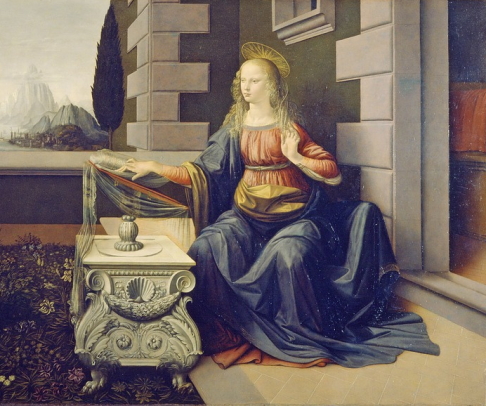
Oct 14, 2017 | Non categorizzato
 “Mary treasured all these things and pondered them in her heart” (Lk 2:19). This statement is from Luke’s Gospel where the evangelist includes it in the wonderful description of the shepherds at the grotto of Bethlehem where Jesus was born. An angel had informed the shepherds of the amazing event: “Fear not! I bring you tidings of great joy that will be for the whole people, for unto you is born this day in the city of David, a Saviour” (Lk 2:10-11). As soon as they reach the place, “they told all that had been said to them concerning the boy; and all who heard it were amazed at what the shepherds said. But Mary treasured all these things and pondered them in her heart” (Lk 2:19). Luke gently contrasts the outward amazement of the others who are at the grotto – shepherds, perhaps townspeople – to the dense loving and faith-filled silence of Mary. The words of those simple pilgrims to the first Marian shrine on earth, enter her soul, taking their place alongside the other revelations that she had received, and they make her understand more and more the mystery that is unfolding before her very eyes, a mystery she shares in as Mother of God. One can only Mary’s instant willingness to respond to God’s word and loving guardianship of the sacred gifts she received, but never disclosed to anyone for many years. Perhaps it was only to Luke that Our Lady personally told about this attitude of her soul during the days around the Saviour’s birth. Only she could have known it. We are so in need of the comforting sweetness of God’s gifts today. In the stressful, frenzied rhythm of these times, we run the risk of materialising everything even the life of the spirit. Silence, humility, reserve, meekness, patience in trial, can seem like obsolete virtues that are no longer viable, no longer able to allow the presence of Christianity to be felt in this century. We believe more in loudspeakers than in an edifying sentence from the Gospel. One believes more in the speeches of orators than in the prayerful silence of souls consecrated to God. First of all, the aggressiveness of the wicked and the power of their possibilities attempts to to leverage the aggressiveness of the good with their capital and power. It’s materialism that seeks to demean the values of the spirit, turning them into external expressions that will no longer carry any weight amidst the deafening deafening noise all around them. Only what is the fruit of the spirit has value in front of a world flattened by materialism; only what is part of our deep and personal love for God. For this reason humankind must once more fix its gaze on Mary.” Pasquale Foresi, “Parole di vita”, (Rome: Ed. Città Nuova, 1963) 15-17.
“Mary treasured all these things and pondered them in her heart” (Lk 2:19). This statement is from Luke’s Gospel where the evangelist includes it in the wonderful description of the shepherds at the grotto of Bethlehem where Jesus was born. An angel had informed the shepherds of the amazing event: “Fear not! I bring you tidings of great joy that will be for the whole people, for unto you is born this day in the city of David, a Saviour” (Lk 2:10-11). As soon as they reach the place, “they told all that had been said to them concerning the boy; and all who heard it were amazed at what the shepherds said. But Mary treasured all these things and pondered them in her heart” (Lk 2:19). Luke gently contrasts the outward amazement of the others who are at the grotto – shepherds, perhaps townspeople – to the dense loving and faith-filled silence of Mary. The words of those simple pilgrims to the first Marian shrine on earth, enter her soul, taking their place alongside the other revelations that she had received, and they make her understand more and more the mystery that is unfolding before her very eyes, a mystery she shares in as Mother of God. One can only Mary’s instant willingness to respond to God’s word and loving guardianship of the sacred gifts she received, but never disclosed to anyone for many years. Perhaps it was only to Luke that Our Lady personally told about this attitude of her soul during the days around the Saviour’s birth. Only she could have known it. We are so in need of the comforting sweetness of God’s gifts today. In the stressful, frenzied rhythm of these times, we run the risk of materialising everything even the life of the spirit. Silence, humility, reserve, meekness, patience in trial, can seem like obsolete virtues that are no longer viable, no longer able to allow the presence of Christianity to be felt in this century. We believe more in loudspeakers than in an edifying sentence from the Gospel. One believes more in the speeches of orators than in the prayerful silence of souls consecrated to God. First of all, the aggressiveness of the wicked and the power of their possibilities attempts to to leverage the aggressiveness of the good with their capital and power. It’s materialism that seeks to demean the values of the spirit, turning them into external expressions that will no longer carry any weight amidst the deafening deafening noise all around them. Only what is the fruit of the spirit has value in front of a world flattened by materialism; only what is part of our deep and personal love for God. For this reason humankind must once more fix its gaze on Mary.” Pasquale Foresi, “Parole di vita”, (Rome: Ed. Città Nuova, 1963) 15-17.
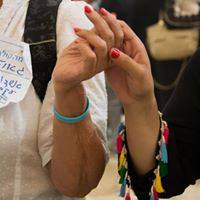
Oct 13, 2017 | Non categorizzato
 On 24 September, 30,000 women set out on a peace march from Sderot (Negev) to Jerusalem. The initiative, promoted by “Women Wage Peace” (WWP) included meetings, moments of dialogue and prayer. It ended on 11 October in Jerusalem. “Grassroots initiatives such as this one are important because they express a part of the Israeli people who do not want war, occupation, and to continue in this situation,” commented the Maronite Patriarchate of Jerusalem. The voice of these women fills the void left by an absence of political parties truly committed to peace, at a time of “political stagnation” due to the disinterest of the international community in the Palestinian issue. WWP was born three years ago in response to the conflict in Gaza, and currently numbers 24,000 members, including “thousands of women who belong to right, centre and left wing factions, who are Arab and Jewish, religious and lay, all united to seek a political peace agreement to end the Israeli-Palestinian conflict.” Prayer of the Mothers
On 24 September, 30,000 women set out on a peace march from Sderot (Negev) to Jerusalem. The initiative, promoted by “Women Wage Peace” (WWP) included meetings, moments of dialogue and prayer. It ended on 11 October in Jerusalem. “Grassroots initiatives such as this one are important because they express a part of the Israeli people who do not want war, occupation, and to continue in this situation,” commented the Maronite Patriarchate of Jerusalem. The voice of these women fills the void left by an absence of political parties truly committed to peace, at a time of “political stagnation” due to the disinterest of the international community in the Palestinian issue. WWP was born three years ago in response to the conflict in Gaza, and currently numbers 24,000 members, including “thousands of women who belong to right, centre and left wing factions, who are Arab and Jewish, religious and lay, all united to seek a political peace agreement to end the Israeli-Palestinian conflict.” Prayer of the Mothers
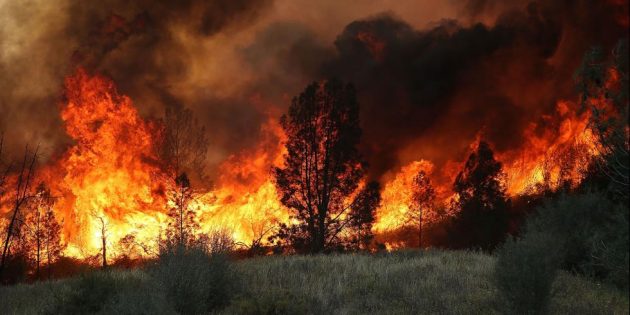
Oct 13, 2017 | Focolare Worldwide
 The untamed fires that are devastating parts of California, strengthened by the strong winds and unseasonable temperatures, have left dozens of victims, the largest number in the recorded history of California, along with hundreds of people who are missing. The number of volunteers and equipment is quite striking: more than 8 thousand fire-fighters and volunteers, 550 ground equipment, 73 helicopters and more than 30 air-planes. Images of the fires that are destroying more than 80,000 hectares are spreading around the world. Countless homes have been burnt down. The most devastated counties include Sonoma, Mendocino, Yuba and Napa. Thousands of people have already been evacuated, especially in Napa County, which is known for its wine vineyards. One of the most hit areas is Sonoma County where Santa Rosa is located, which is head location for more than 200 thousand inhabitants. Entire regions of the city have been reduced to ashes. From Santa Rosa, Cindy Fitzmaurice, from the Focolare community was able to send news through Facebook, concerning the difficult conditions that many are living in now that they’ve had to abandon their houses. “We’re ready to flee,” she writes, posting a photo taken around three o’clock in the morning, in which the sky appears orange. “My heart is in pieces for my friends who have lost everything. We’re learning what really matters, and it’s certainly not material things.” It’s been a hard experience for Cindy and her neighbours, fleeing the fires in the middle of the night, looking for shelter in the homes of friends. Some had to escape with nothing but their pyjamas, leaving everything else behind. Fortunately, she writes again: “Evacuated, but safe and sound. May God bless Santa Rosa. Leaving my house after 25 years was hard. But at least we had enough time to do it and, for this, we are eternally grateful. Other’s can’t say the same. We’ll see what tomorrow will bring.” Following a night of fear and praying, last Wednesday Cindy was able to tell her friends about the good news: “Feeling extremely grateful. We are back home this morning. “Feeling extremely grateful. We are back home this morning. For now. the winds shifted east overnight toward Napa. Good for us, but so bad for others. I can’t even imagine their loss. Cindy thanks her friends who take care of them, especially her elderly mother-in-law. “All we can do is be grateful and see how we can help others. Thank you all for your prayers.” Cindy’s 18 year old niece works at a nursing home: “All the residents were evacuated to anther city. I’m proud of how she’s taking care of all of them.” Many others have posted photos on Facebook of their houses devoured by the flames and reduced to ashes. But they’re grateful to be alive. This is what matters most.
The untamed fires that are devastating parts of California, strengthened by the strong winds and unseasonable temperatures, have left dozens of victims, the largest number in the recorded history of California, along with hundreds of people who are missing. The number of volunteers and equipment is quite striking: more than 8 thousand fire-fighters and volunteers, 550 ground equipment, 73 helicopters and more than 30 air-planes. Images of the fires that are destroying more than 80,000 hectares are spreading around the world. Countless homes have been burnt down. The most devastated counties include Sonoma, Mendocino, Yuba and Napa. Thousands of people have already been evacuated, especially in Napa County, which is known for its wine vineyards. One of the most hit areas is Sonoma County where Santa Rosa is located, which is head location for more than 200 thousand inhabitants. Entire regions of the city have been reduced to ashes. From Santa Rosa, Cindy Fitzmaurice, from the Focolare community was able to send news through Facebook, concerning the difficult conditions that many are living in now that they’ve had to abandon their houses. “We’re ready to flee,” she writes, posting a photo taken around three o’clock in the morning, in which the sky appears orange. “My heart is in pieces for my friends who have lost everything. We’re learning what really matters, and it’s certainly not material things.” It’s been a hard experience for Cindy and her neighbours, fleeing the fires in the middle of the night, looking for shelter in the homes of friends. Some had to escape with nothing but their pyjamas, leaving everything else behind. Fortunately, she writes again: “Evacuated, but safe and sound. May God bless Santa Rosa. Leaving my house after 25 years was hard. But at least we had enough time to do it and, for this, we are eternally grateful. Other’s can’t say the same. We’ll see what tomorrow will bring.” Following a night of fear and praying, last Wednesday Cindy was able to tell her friends about the good news: “Feeling extremely grateful. We are back home this morning. “Feeling extremely grateful. We are back home this morning. For now. the winds shifted east overnight toward Napa. Good for us, but so bad for others. I can’t even imagine their loss. Cindy thanks her friends who take care of them, especially her elderly mother-in-law. “All we can do is be grateful and see how we can help others. Thank you all for your prayers.” Cindy’s 18 year old niece works at a nursing home: “All the residents were evacuated to anther city. I’m proud of how she’s taking care of all of them.” Many others have posted photos on Facebook of their houses devoured by the flames and reduced to ashes. But they’re grateful to be alive. This is what matters most.
Oct 13, 2017 | Non categorizzato
In spite of the difficult social, political and economic situation across the country, dialogue among different Christian traditions has not waivered. The Focolare community in Caracas writes: “Last 14 Septmber we met at the focolare in Caracas with Anglican pastor Francisco Salazar and his wife and Pastor Coromoto Jimenez to spend some family time together. Pastor Salazar told us that the international conference in Rome last May was like “bumping across Jesus. There one found a new vision of unity and of the Church.” In Venezuela we are also holding several events to mark the 500th anniversary of the Reform. “On October 1st we were invited to a concert celebration at the Lutheran Church of Caracas with more than 200 people, including three Lutheran pastors, the ambassador of Germany and representatives from the Presbyterian and Catholic Churches. It was a solemn event with songs, memories and quotes from Luther, which witnessed to unity in diversity. One pastor remarked: “We have to unite more and more, we have the same faith in Jesus.” On November 19, the Presbyterian Church in Venezuela will mark 120 years. “They are inviting bishops, priests and Focolare members to celebrate the occasion with them. A real friendship has been formed with Pastor Maria Jimenez and her husband uriel Ramirez.”
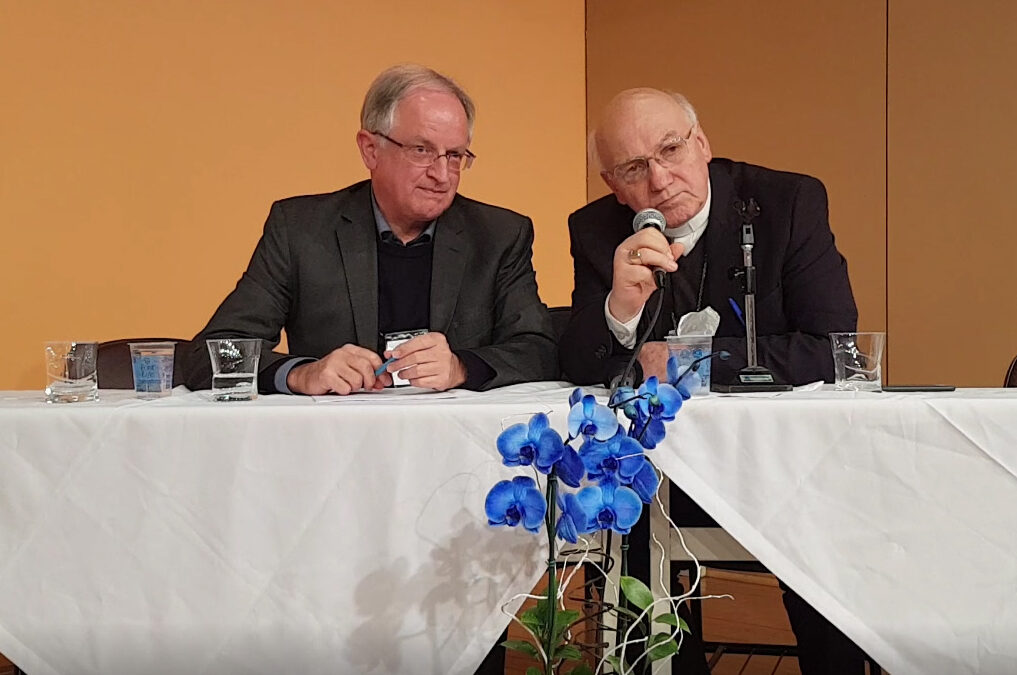
Oct 13, 2017 | Focolare Worldwide
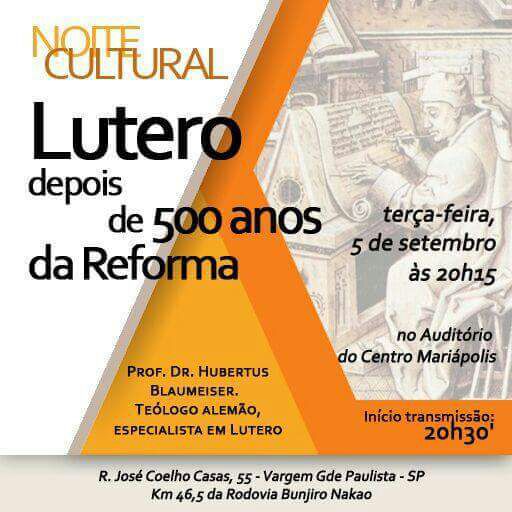 Curitiba, capital of the state of Paraná (Southern Brazil), is a city that holds many records: it has the highest educational index rates of the country, the lowest illiteracy rates and a high quality of education (The Federal University is the first in Brazil). It is considered the most eco-sustainable Brazilian city, thanks to innovative plans that have reconciled urban growth with care for the environment. In this “primacy city”, an important step was taken in the long and fruitful ecumenical journey between Catholics and Lutherans. The Commission for ecumenism and interreligious dialogue of the National Conference of Bishops of Brazil (CNBB) and the Commission for bilateral Catholic-Lutheran dialogue, in collaboration with Catholic University of Paraná (PUCPR), chose the “green city” as the venue of the Ecumenical Marian Symposium, from 1 to 3 September.
Curitiba, capital of the state of Paraná (Southern Brazil), is a city that holds many records: it has the highest educational index rates of the country, the lowest illiteracy rates and a high quality of education (The Federal University is the first in Brazil). It is considered the most eco-sustainable Brazilian city, thanks to innovative plans that have reconciled urban growth with care for the environment. In this “primacy city”, an important step was taken in the long and fruitful ecumenical journey between Catholics and Lutherans. The Commission for ecumenism and interreligious dialogue of the National Conference of Bishops of Brazil (CNBB) and the Commission for bilateral Catholic-Lutheran dialogue, in collaboration with Catholic University of Paraná (PUCPR), chose the “green city” as the venue of the Ecumenical Marian Symposium, from 1 to 3 September. 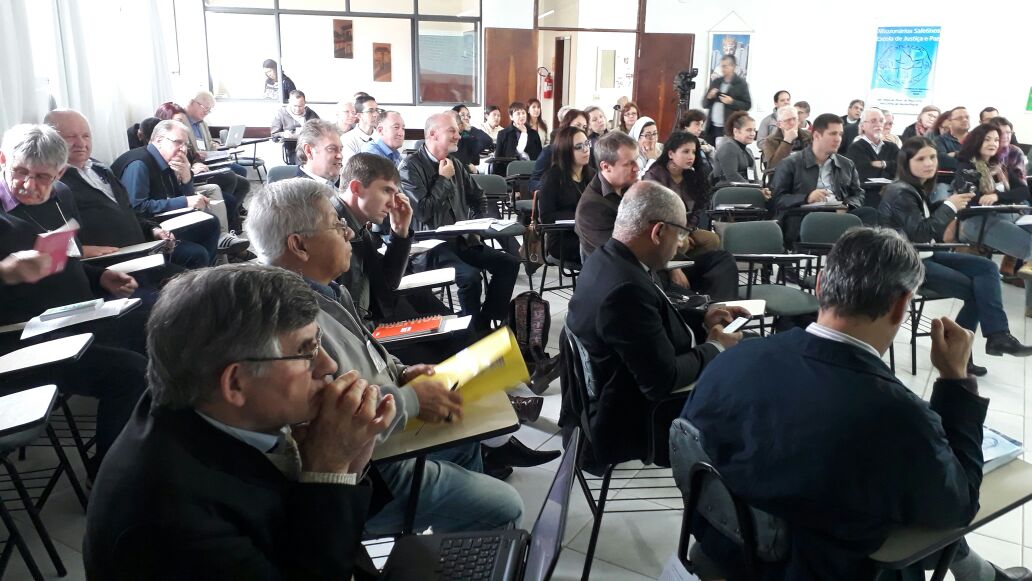 The occasion arose from two important anniversaries. The first was the third centenary of the salvaging of the statue of Our Lady of Aparecida from the waters of the Paraiba do Sul river. The Brazilian people are very familiar with the story of the group of poor fishermen who in 1717, in view of the banquet organized for the imminent visit of the governor of the São Paolo Province, after an unsuccessful day of fishing, again launched their nets into the river. To their surprise, they found a small muddy statue of “Our Lady,” first the body and then the head, entangled in their nets. Upon throwing their nets once again, these were unexpectedly filled with a great amount of fish. It was the first of a long series of miracles obtained from the “Black Virgin,” who subsequently became the patron of the Brazilian people. The second anniversary was the 5th centennial of the Protestant Reformation. The celebrations were jointly carried out with the historical event of Lund in October 2016, by the Catholic and Lutheran churches, in a spirit of communion, dialogue and thanksgiving. The Curitiba Symposium is thus part of an important ecumenical path.
The occasion arose from two important anniversaries. The first was the third centenary of the salvaging of the statue of Our Lady of Aparecida from the waters of the Paraiba do Sul river. The Brazilian people are very familiar with the story of the group of poor fishermen who in 1717, in view of the banquet organized for the imminent visit of the governor of the São Paolo Province, after an unsuccessful day of fishing, again launched their nets into the river. To their surprise, they found a small muddy statue of “Our Lady,” first the body and then the head, entangled in their nets. Upon throwing their nets once again, these were unexpectedly filled with a great amount of fish. It was the first of a long series of miracles obtained from the “Black Virgin,” who subsequently became the patron of the Brazilian people. The second anniversary was the 5th centennial of the Protestant Reformation. The celebrations were jointly carried out with the historical event of Lund in October 2016, by the Catholic and Lutheran churches, in a spirit of communion, dialogue and thanksgiving. The Curitiba Symposium is thus part of an important ecumenical path.
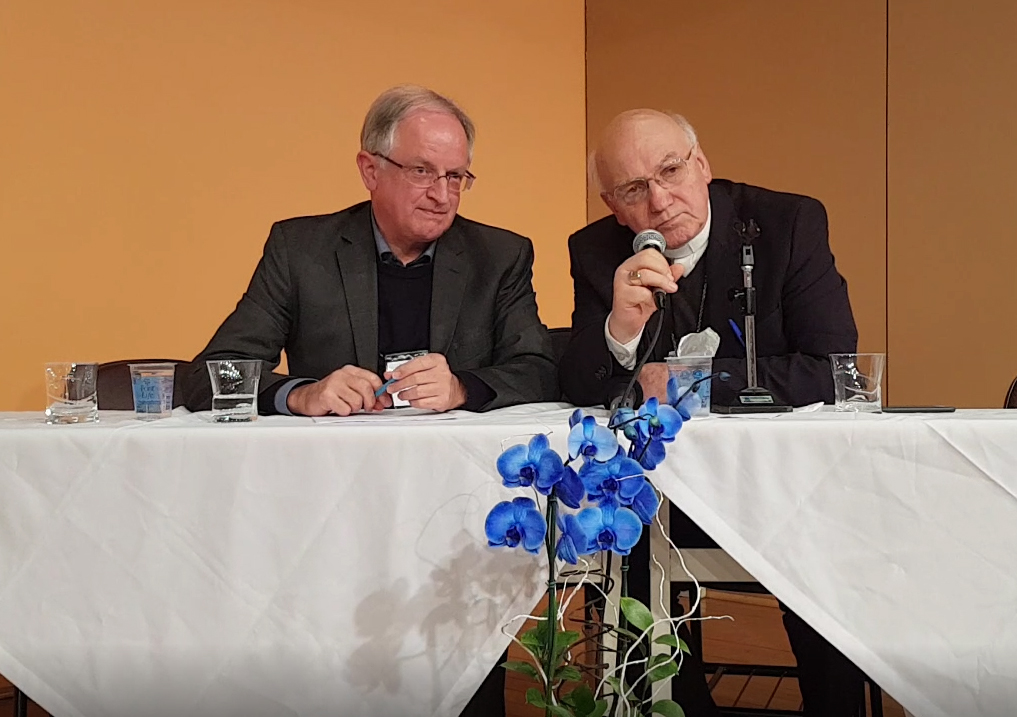
Fr Hubertus Blaumeiser and Bishop Dom Biasin, President of the Ecumenical Commission.
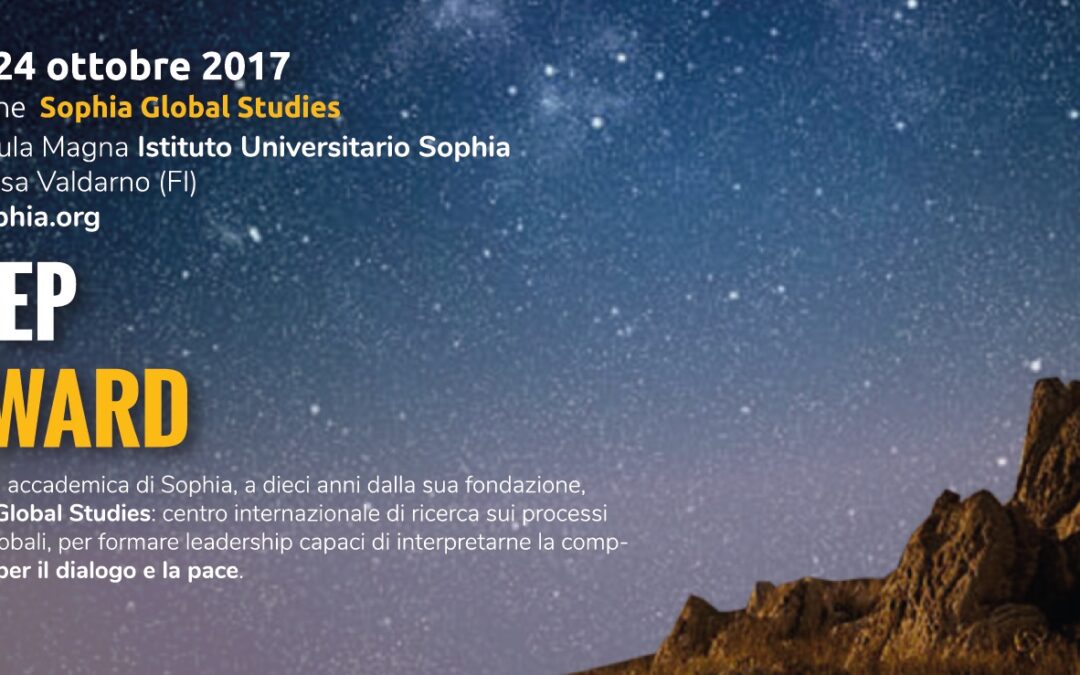
Oct 12, 2017 | Non categorizzato
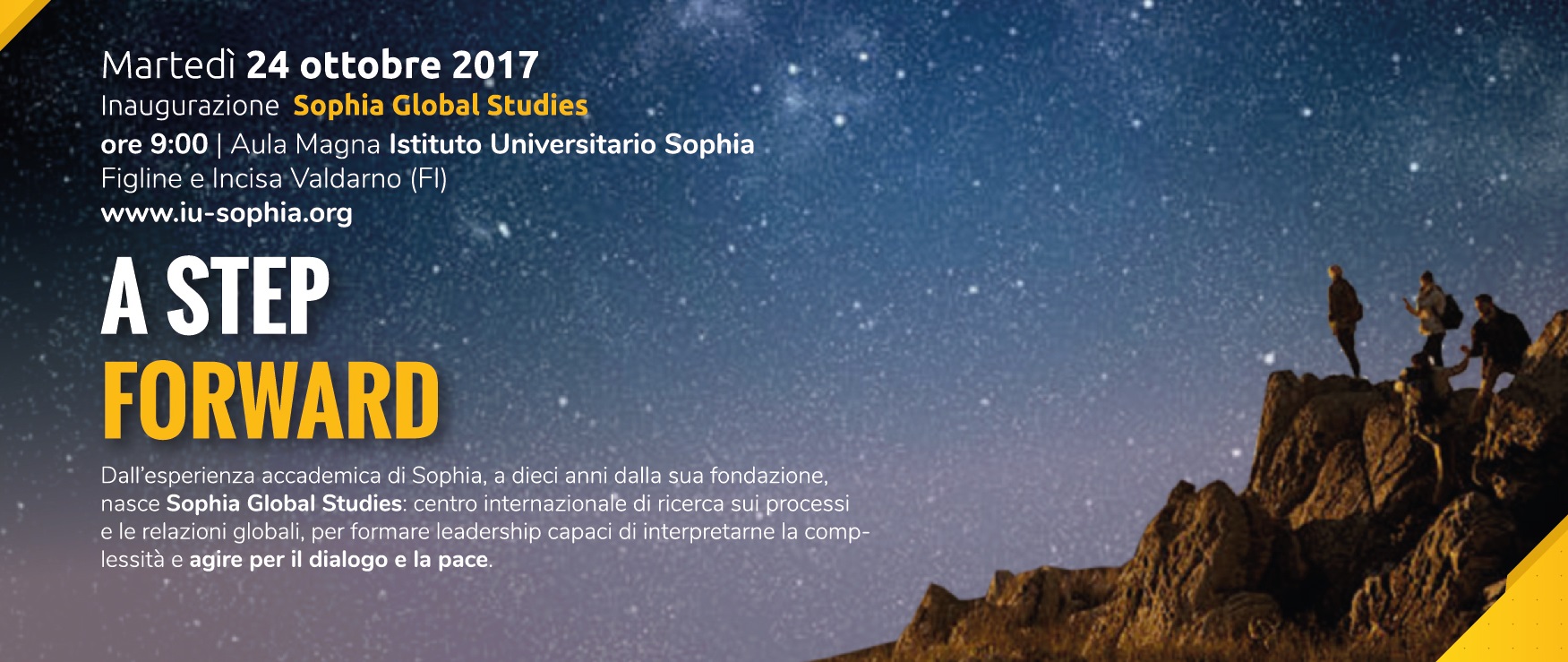 The tenth academic year of Sophia University Institute, which was formalized on December 7, 2007 by Pontifical Decree, will be launched on October 24, 2017. In the letter sent on that occasion to Chiara Lubich, who was the inspiration of Sophia, the Prefect of the Congregation for Catholic Education underscored the novelty of the Institute “that flows from the roots of the spirituality of unity and from the Movement’s rich experience.” He also asserted his best wishes for this “important project, well rooted in the academic tradition but also brave and forward-looking.” Ten year later, the Sophia academic community gratefully remembers the journey from then until now and plans strategies that will determine the near future in total faithfulness to the mission that has shaped Sophia Institute. The main event of the day will be the official opening of the new Sophia Global Studies Academic Centre. Inauguration Forum
The tenth academic year of Sophia University Institute, which was formalized on December 7, 2007 by Pontifical Decree, will be launched on October 24, 2017. In the letter sent on that occasion to Chiara Lubich, who was the inspiration of Sophia, the Prefect of the Congregation for Catholic Education underscored the novelty of the Institute “that flows from the roots of the spirituality of unity and from the Movement’s rich experience.” He also asserted his best wishes for this “important project, well rooted in the academic tradition but also brave and forward-looking.” Ten year later, the Sophia academic community gratefully remembers the journey from then until now and plans strategies that will determine the near future in total faithfulness to the mission that has shaped Sophia Institute. The main event of the day will be the official opening of the new Sophia Global Studies Academic Centre. Inauguration Forum
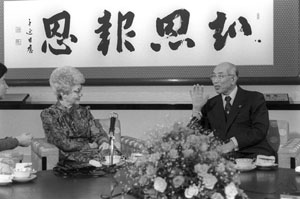
Oct 12, 2017 | Non categorizzato
 The crisis that has triggered around North Korea’s ballistic experiments and the reaction of the United States Administration have generated fears of the concrete possibility of a nuclear conflict. The old Latin adage to keep the peace prepare war is senseless today. The consequences of a conflict, furthermore with nuclear weapons, would have devastating consequences for the entire planet. Peace must be reached at all costs wherever it is strained and maintained, and wherever it has been achieved. The members of the Focolare Movement feel a growing awareness of the role each of us can play as individuals and as a community, in this process. Besides prayers, they have undertaken different types of common endeavours, often inspired by the initiatives of other organisations or movements with which the Focolare collaborates. In this sense we have to recall what the spiritual friendship between Chiara Lubich and Nikkyo Niwano, founder of the Japanese Buddhist movement, Rissho Kosei kai, has done to contribute to the cause of peace and to educate the new generations about this. “Despite the difficulties, our cooperation will make us hope that we can work for peace together,” Niwano wrote to Chiara. On the occasion of the Focolare’s 50th anniversary, the founder of the Buddhist movement and his son, Nichico, repeated this common commitment to “make our human family more united.” The Rissho Kosei kai also made itself heard over the last days with an official communication of the President-elect, Rev. Madame Kosho Niwano, to the world’s political and spiritual leaders, to renew the commitment of her movement and to ask them to leave no stone unturned in preserving peace in the Korean peninsula. The appeal draws inspiration from the ideas of the founder, Niwano, who on the occasion of his speech before the United Nations Assembly in 1978 right in the midst of the Cold War, had addressed the leaders of the USA and USSR. “Instead of risking with arms, please take the risk of peace and disarmament,” he said. Niwano, like many religious leaders of his time, among which were Paul VI, John Paul II, and Chiara Lubich, had realised the responsibility of religions in contributing to the creation and maintenance of world peace. The message Mme. Niwano also sent to Maria Voce, President of the Focolare Movement, is that of a daughter of a people that had suffered in an indescribable manner in the last world conflict that had set the political leaders of the world before the danger of the effects of sanctions that could cause unpredictable reactions. Also in the West there is a growing awareness of the danger of a nuclear escalation. On the occasion of the remembrance of the Day of Prayer for peace, established by John Paul II in 1986, the Committee for a Civilisation of Love prepared a meditation entitled Project for peace in the Korean region for the convention to be held at the convention in the Sacred Convent of Assisi (Italy) next 28 October. Read the original message
The crisis that has triggered around North Korea’s ballistic experiments and the reaction of the United States Administration have generated fears of the concrete possibility of a nuclear conflict. The old Latin adage to keep the peace prepare war is senseless today. The consequences of a conflict, furthermore with nuclear weapons, would have devastating consequences for the entire planet. Peace must be reached at all costs wherever it is strained and maintained, and wherever it has been achieved. The members of the Focolare Movement feel a growing awareness of the role each of us can play as individuals and as a community, in this process. Besides prayers, they have undertaken different types of common endeavours, often inspired by the initiatives of other organisations or movements with which the Focolare collaborates. In this sense we have to recall what the spiritual friendship between Chiara Lubich and Nikkyo Niwano, founder of the Japanese Buddhist movement, Rissho Kosei kai, has done to contribute to the cause of peace and to educate the new generations about this. “Despite the difficulties, our cooperation will make us hope that we can work for peace together,” Niwano wrote to Chiara. On the occasion of the Focolare’s 50th anniversary, the founder of the Buddhist movement and his son, Nichico, repeated this common commitment to “make our human family more united.” The Rissho Kosei kai also made itself heard over the last days with an official communication of the President-elect, Rev. Madame Kosho Niwano, to the world’s political and spiritual leaders, to renew the commitment of her movement and to ask them to leave no stone unturned in preserving peace in the Korean peninsula. The appeal draws inspiration from the ideas of the founder, Niwano, who on the occasion of his speech before the United Nations Assembly in 1978 right in the midst of the Cold War, had addressed the leaders of the USA and USSR. “Instead of risking with arms, please take the risk of peace and disarmament,” he said. Niwano, like many religious leaders of his time, among which were Paul VI, John Paul II, and Chiara Lubich, had realised the responsibility of religions in contributing to the creation and maintenance of world peace. The message Mme. Niwano also sent to Maria Voce, President of the Focolare Movement, is that of a daughter of a people that had suffered in an indescribable manner in the last world conflict that had set the political leaders of the world before the danger of the effects of sanctions that could cause unpredictable reactions. Also in the West there is a growing awareness of the danger of a nuclear escalation. On the occasion of the remembrance of the Day of Prayer for peace, established by John Paul II in 1986, the Committee for a Civilisation of Love prepared a meditation entitled Project for peace in the Korean region for the convention to be held at the convention in the Sacred Convent of Assisi (Italy) next 28 October. Read the original message
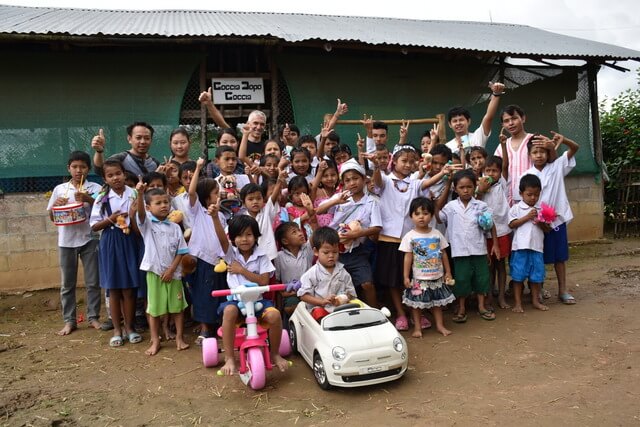
Oct 11, 2017 | Focolare Worldwide
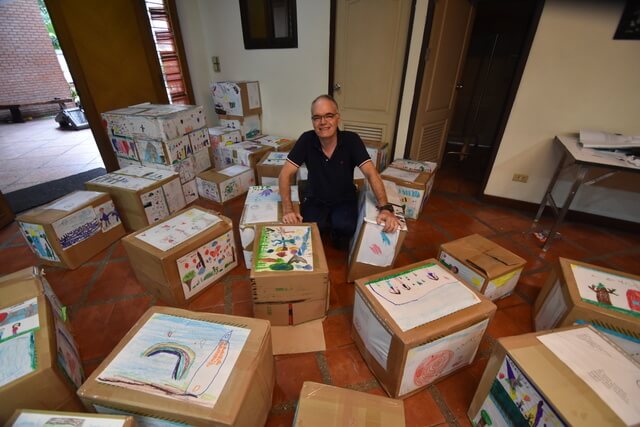 “We just got back from three days among the Karen refugees in Mae Sot, at the border with Myanmar. It was quite an experience, like any experience that brings you into direct contact with people’s pain.” Luigi Butori has lived in south east asia for many years, in one of the focolare or “hearth” communities of that region. “We loaded up the van, more than 30 crates that had arrived from Italy and took off with Glauco and Num, a Buddhist Gen. It’s now customary for us to make this 500 km journey every three or four months.” Mae Sot is a city of west Thailand close to the Myanmar border. It’s an important link with the nearby country, a place of refuge for many refugees and immigrants in general. They live in bad social and economic conditions. “These are our people,” Luigi writes. Those of them who have a job in the agricultural plants or in local industry are at times the victims of exploitation and paid starvation wages. But multitudes of refugees have found a refuge in the many camps that have been set up by international organisations that work in the border region, on Thailand territory. Many of the persecuted come from the Karen people. Their story is largely unkown. They’re simple farming folk who were forced to fun away. This is one of the many neglected conflicts which the media, however, considers to be of low intensity.
“We just got back from three days among the Karen refugees in Mae Sot, at the border with Myanmar. It was quite an experience, like any experience that brings you into direct contact with people’s pain.” Luigi Butori has lived in south east asia for many years, in one of the focolare or “hearth” communities of that region. “We loaded up the van, more than 30 crates that had arrived from Italy and took off with Glauco and Num, a Buddhist Gen. It’s now customary for us to make this 500 km journey every three or four months.” Mae Sot is a city of west Thailand close to the Myanmar border. It’s an important link with the nearby country, a place of refuge for many refugees and immigrants in general. They live in bad social and economic conditions. “These are our people,” Luigi writes. Those of them who have a job in the agricultural plants or in local industry are at times the victims of exploitation and paid starvation wages. But multitudes of refugees have found a refuge in the many camps that have been set up by international organisations that work in the border region, on Thailand territory. Many of the persecuted come from the Karen people. Their story is largely unkown. They’re simple farming folk who were forced to fun away. This is one of the many neglected conflicts which the media, however, considers to be of low intensity. 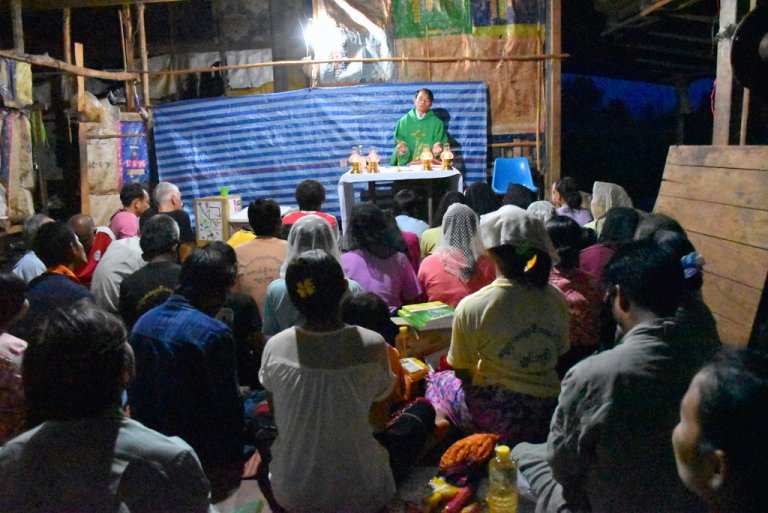 We had planned this trip a long time ago with Father Joachim, a Burmese priest who lives in Mae-Sot. Jim, another focolarino from Bangkok, met us in the morning, after a ten-hour overnight bus ride with a lot of checkpoints along the way. Every time you arrive in Mae Sot, it feels like you’re entering another world where values are changed. In the place of consumerism and comfort, we meet people without anything, yet they’re happy with the little they receive from us, and which we’ve recevied from many others from far and near. They know that we’re only there out of love for them: “This love that you bring to us is the reason why we carry on living and hoping,” they said to us more than once. We ate togetherw with them, which was a witness that spoke on its own. One evening we went into the midst of the camps and it was like walking into the middle of nothingness, with our van sinking into the mud and surrounded by the corn fields. It was all because we had to pick up a Catholic family and go to another location where forty Catholics were awaiting us for Mass. It was dark, rainy, and the place was full of mosquitos. We stood beneath a canopy in a large barn with a little bit of light. I suddenly started to think about the beautiful cathedrals in Rome where I lived five years ago. I thought about the paintings, the organs and the beautiful lights. That barn filled with mosquitos, with that gentle light and with all those people seated on the ground, seemed like a basilica to me. Because Jesus was there, spiritually, with us, in the midst of that crowd that didn’t have anything.”
We had planned this trip a long time ago with Father Joachim, a Burmese priest who lives in Mae-Sot. Jim, another focolarino from Bangkok, met us in the morning, after a ten-hour overnight bus ride with a lot of checkpoints along the way. Every time you arrive in Mae Sot, it feels like you’re entering another world where values are changed. In the place of consumerism and comfort, we meet people without anything, yet they’re happy with the little they receive from us, and which we’ve recevied from many others from far and near. They know that we’re only there out of love for them: “This love that you bring to us is the reason why we carry on living and hoping,” they said to us more than once. We ate togetherw with them, which was a witness that spoke on its own. One evening we went into the midst of the camps and it was like walking into the middle of nothingness, with our van sinking into the mud and surrounded by the corn fields. It was all because we had to pick up a Catholic family and go to another location where forty Catholics were awaiting us for Mass. It was dark, rainy, and the place was full of mosquitos. We stood beneath a canopy in a large barn with a little bit of light. I suddenly started to think about the beautiful cathedrals in Rome where I lived five years ago. I thought about the paintings, the organs and the beautiful lights. That barn filled with mosquitos, with that gentle light and with all those people seated on the ground, seemed like a basilica to me. Because Jesus was there, spiritually, with us, in the midst of that crowd that didn’t have anything.”  For several years Luigi has been the link between a schools twinning project that links Karen children in Mae Sot with those of Latina and with a group in Lucca, Italy and Poshiavo, Switzerland. With the funds and the materials gathered, it has been possible to build and start up a small school called “Drop by Drop”. “All of us in Class Four have met Luigi,” write the students from the C. Goldoni Elementary School in Latina. “We were happy to see him again, but mostly curious to hear the news about our Karen friends and their school. He showed us photographs and shared information about what’s going on up there. We were surprised to see how things that we consider totally normal – like a bathroom, a wooden bridge – for them is still something that is totally missing in their daily lives. Thanks to the Drop by Drop project we can build bridges of solidarity with our friends far away.”
For several years Luigi has been the link between a schools twinning project that links Karen children in Mae Sot with those of Latina and with a group in Lucca, Italy and Poshiavo, Switzerland. With the funds and the materials gathered, it has been possible to build and start up a small school called “Drop by Drop”. “All of us in Class Four have met Luigi,” write the students from the C. Goldoni Elementary School in Latina. “We were happy to see him again, but mostly curious to hear the news about our Karen friends and their school. He showed us photographs and shared information about what’s going on up there. We were surprised to see how things that we consider totally normal – like a bathroom, a wooden bridge – for them is still something that is totally missing in their daily lives. Thanks to the Drop by Drop project we can build bridges of solidarity with our friends far away.”
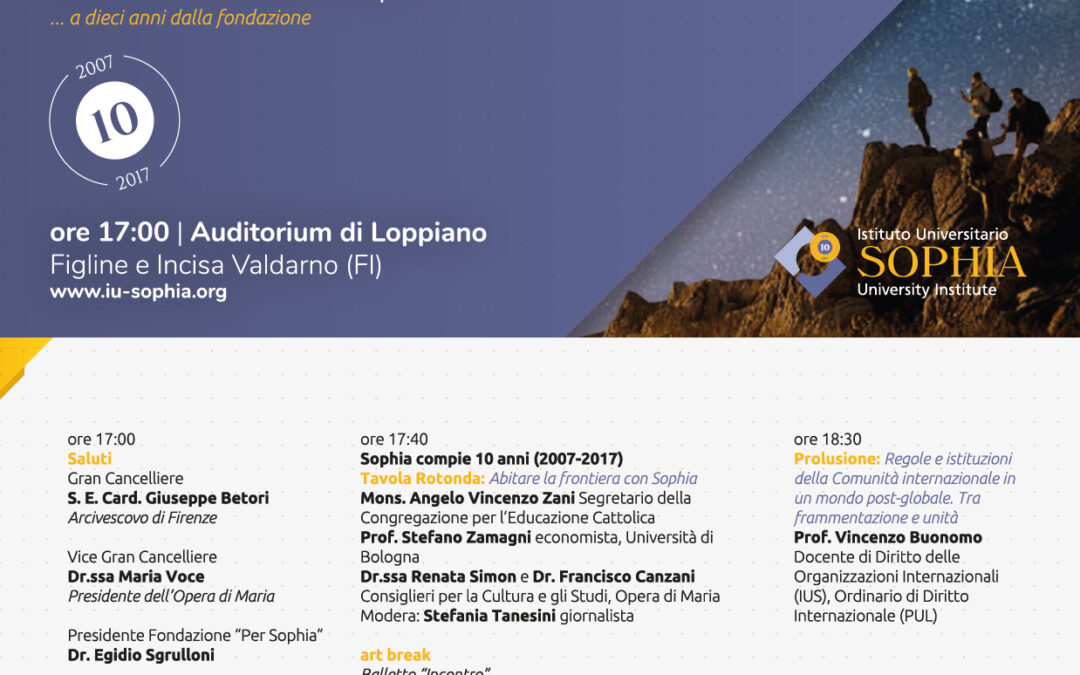
Oct 10, 2017 | Non categorizzato
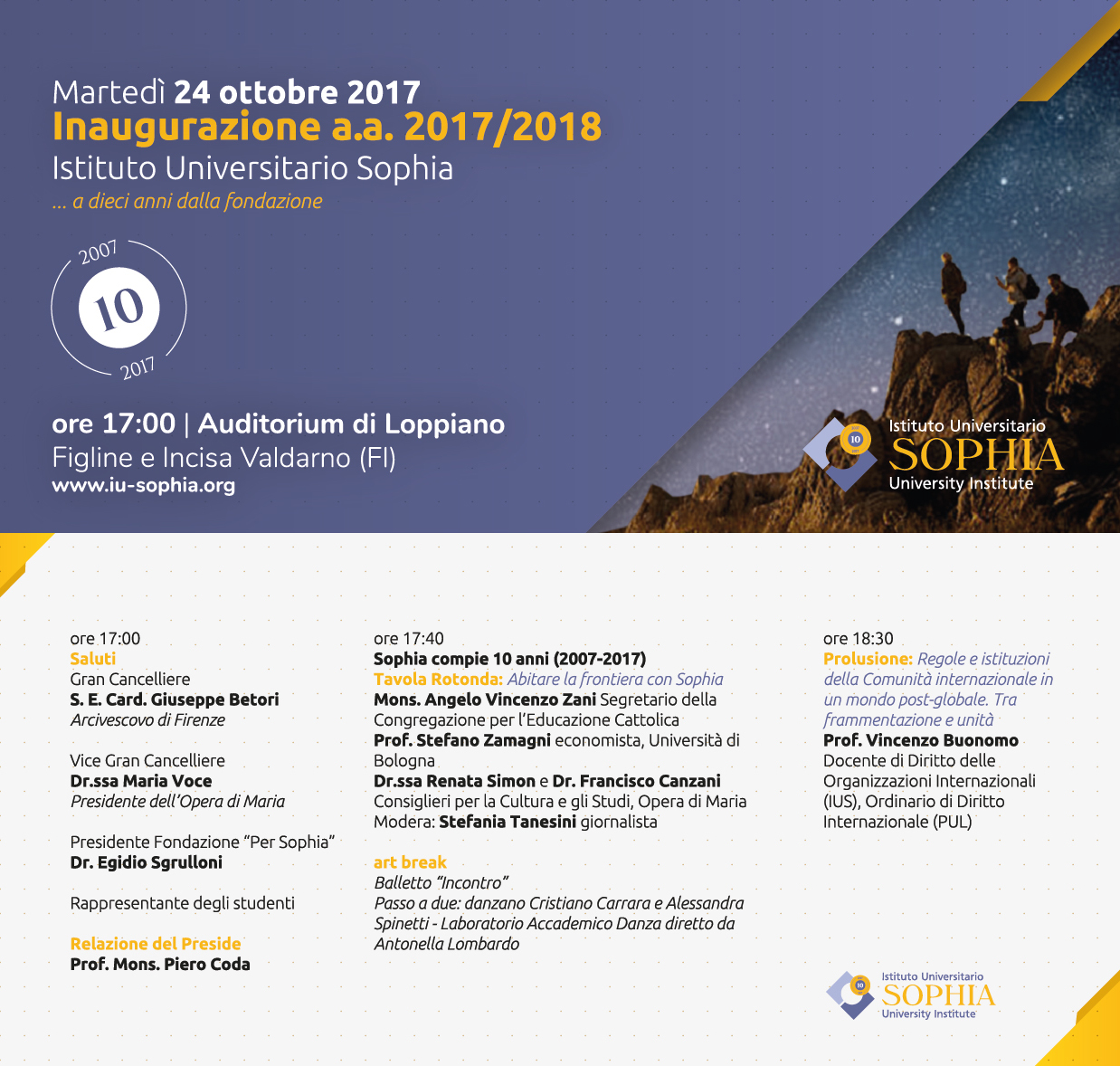 The event was divided in two parts. A forum in English will be held at 9:00 in the Great Hall of Sophia University Institute, titled Perspectives on Global Transformations. The will mark the official opening of the Sophia Global Studies Centre. At 17:00 the official inauguration of the Academic Year will be held in the Auditorium of Loppiano and include a moment of reflection on the new challenges facing Sophia. Program
The event was divided in two parts. A forum in English will be held at 9:00 in the Great Hall of Sophia University Institute, titled Perspectives on Global Transformations. The will mark the official opening of the Sophia Global Studies Centre. At 17:00 the official inauguration of the Academic Year will be held in the Auditorium of Loppiano and include a moment of reflection on the new challenges facing Sophia. Program
Oct 10, 2017 | Focolare Worldwide
In front of the situation that has been created in Catalonia, the Focolare Movement in Spain has launched a communiqué through which one commits to living a culture of dialogue, “a powerful tool that makes interests in others possible, entering into the reality they live, to know it, accept it and, inasmuch as possible, comprehend it. We consider plurality a positive challenge and enormous value.” Many initiatives are being promoted to solicit dialogue, especially with the political class. “We strongly support them, because we consider them to be signs of a mature democratic society that wagers on reconciliation.” The Focolare Movement in Spain simultaneously proposes a collection of signatures, in which the whole world can take part, with the goal of finding a path to peaceful coexistence in diversity, and the acknowldgement of the human dignity of every person and institution that represents them. It is a campaign of sensitization and commitment on the social network, under the hashtag #SoyDiálogo, which invites one and all to become active promotors of listening, respect, dialogue and peaceful actions.
![Thanking those who dream of a united world]()
Oct 10, 2017 | Non categorizzato
 30th September 2017
30th September 2017
Dear all, During our international meeting at Castel Gandolfo, we have been able to see all that the charism of unity is doing in the world and deepen our identity as the Work of Mary. At the end of the meeting, we felt a great desire to reach out to each one of you who, in various ways, have adhered to and live the Ideal and who, in the most varied situations, make your own contribution to building up fragments of fraternity wherever you are. We realised there are so many people to whom we owe gratitude and recognition, since you have loved, suffered and given your life to build up this reality. From the depths of our hearts, we want to say a huge thank you to everyone, without forgetting those who, while not considering themselves an active part of the Movement today, continue to live their daily lives motivated by Chiara’s same Ideal. We are certain that Mary, Mother of the Movement and of us all, will help us go forward together on the journey towards the unity of the human family, as witnesses to her love, wherever we are. Considering all of us, in all we are doing and living, as little knots in a great net, we embrace you all.
Emmaus and everyone
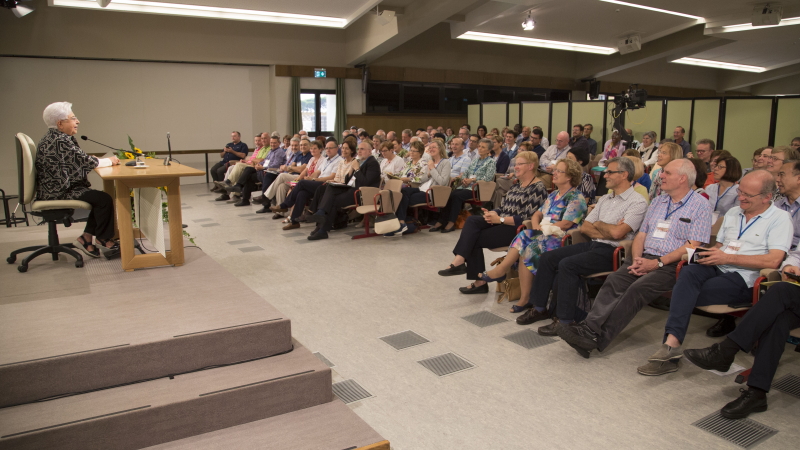
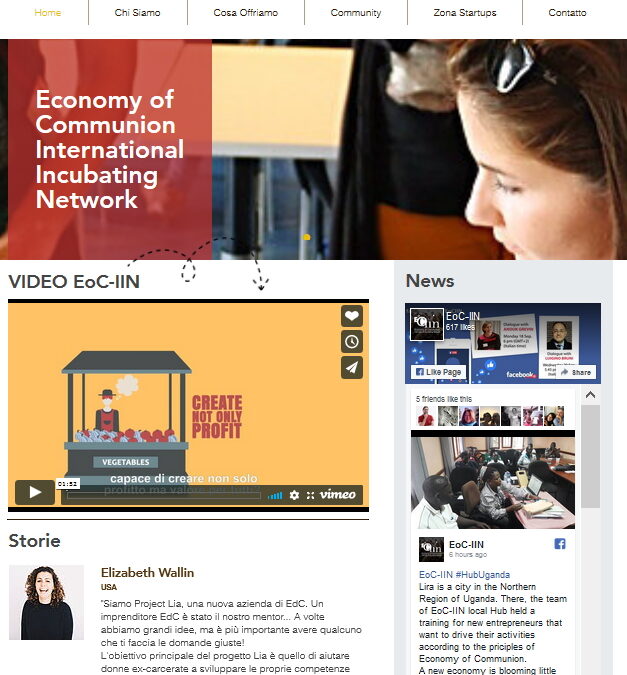
Oct 9, 2017 | Non categorizzato
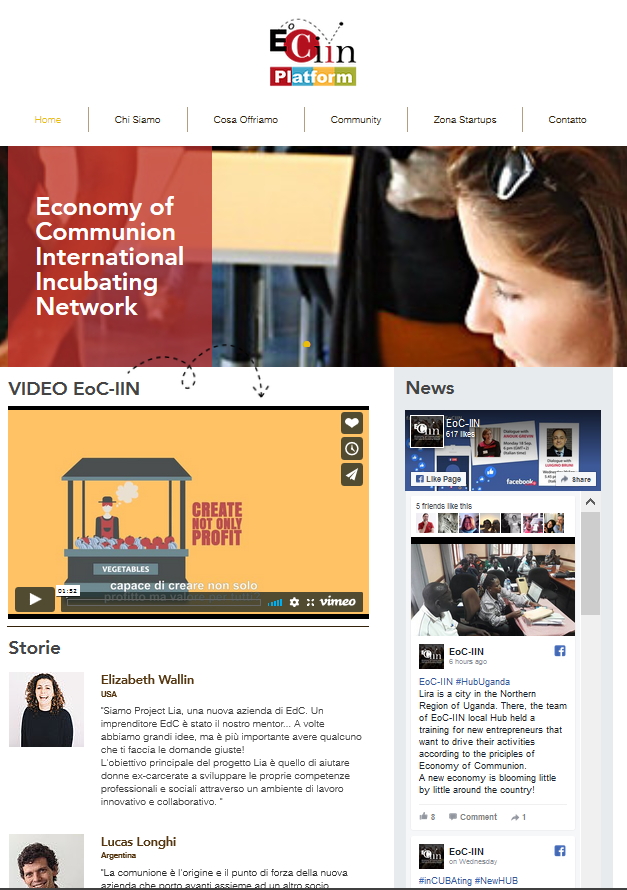 Don’t let the unpronounceable acronym scare you: with the help of a simple, straightforward and brightly coloured graphic design, it is proving to be very useful to the international community of EdC entrepreneurs who wish to share their own talents and experience to boost the growth of new enterprises. The portal addresses business companies, cooperatives, small enterprises, associations with positive social impact, and also people who want to conduct their own companies in conformity with the principles of ethics, social and environmental responsibility and inclusion. The platform offers various services like start-ups, but is likewise a bridge with the entire international community which all can become a part of. It is not difficult to do so, and thanks to the portal, every new entrepreneur driven by a spirit of cooperation and reciprocity, can benefit from distance tutoring or personal mentoring to develop his/her own project. The offer goes through the network of national Hubs. These are “access points,” network “junctions” currently present in 13 countries (Africa, Central America, South America and Europe). The online launch of the platform came about a year after the opening of the first Hub. In this span of time, the Hubs have multiplied, promoting local courses and technical-professional training workshops and in-depth studies on the values that imbue the EoC project, giving personalized and systematic support to the execution of new business projects. If up to now the action of Hubs could only address people in a limited territorial field, these same opportunities are offered today, also to those who are not physically close to a local Hub, thanks to the platform (in Spanish, Portuguese, German, Italian, French and English). Roylán, a telecommunications and electronics engineer of the Spanish Hub, explained: “Transmitting the basic notions of entrepreneurial language and adequately and concretely encouraging the new entrepreneurs who are undergoing moments of uncertainty and doubts is an enriching challenge. Upon coordinating the appointments and tasks of the people who voluntarily cooperate with the start-ups, I was able to appreciate the contributions of each one: there are huge potentials when we work together, driven by the common call to the Economy of Communion.” Each Hub has its own story to tell. The Hub of Mexico, for example, was born from the encounter between some economic activities of the territory that wanted to develop at small-enterprise levels and the EoC incubation programme. Enrique, producer of homemade jams, participated in the first incubation workshop in Mexico City. ”The incubation session helped me to grow in a short time and transform my activity into a real business. But at the same time it enhanced my personality and the deep growth in the EoC culture. The biggest change for me was to start generating communions starting from my business, and helping vulnerable people. When the business grows, we will be able to offer jobs to needy, disabled people or those who couldn’t find jobs elsewhere. Technically speaking, it helped me to improve the production and conservation processes of the products, improving quality. We are now formalising all the licenses necessary to enter more decisively into the market.” Within the platform there is a “reserved area” for entrepreneurs who wish to join the EoC community. There are three different environments: “Networking,” to present one’s own projects, and meet other entrepreneurs and exchange experiences; “Wiki Toolkit,” to share articles and videos, and “Digital Incubation,” addressing those who have projects that have no possibility of being implemented locally. See the EoC-IIN site Source: EoC online
Don’t let the unpronounceable acronym scare you: with the help of a simple, straightforward and brightly coloured graphic design, it is proving to be very useful to the international community of EdC entrepreneurs who wish to share their own talents and experience to boost the growth of new enterprises. The portal addresses business companies, cooperatives, small enterprises, associations with positive social impact, and also people who want to conduct their own companies in conformity with the principles of ethics, social and environmental responsibility and inclusion. The platform offers various services like start-ups, but is likewise a bridge with the entire international community which all can become a part of. It is not difficult to do so, and thanks to the portal, every new entrepreneur driven by a spirit of cooperation and reciprocity, can benefit from distance tutoring or personal mentoring to develop his/her own project. The offer goes through the network of national Hubs. These are “access points,” network “junctions” currently present in 13 countries (Africa, Central America, South America and Europe). The online launch of the platform came about a year after the opening of the first Hub. In this span of time, the Hubs have multiplied, promoting local courses and technical-professional training workshops and in-depth studies on the values that imbue the EoC project, giving personalized and systematic support to the execution of new business projects. If up to now the action of Hubs could only address people in a limited territorial field, these same opportunities are offered today, also to those who are not physically close to a local Hub, thanks to the platform (in Spanish, Portuguese, German, Italian, French and English). Roylán, a telecommunications and electronics engineer of the Spanish Hub, explained: “Transmitting the basic notions of entrepreneurial language and adequately and concretely encouraging the new entrepreneurs who are undergoing moments of uncertainty and doubts is an enriching challenge. Upon coordinating the appointments and tasks of the people who voluntarily cooperate with the start-ups, I was able to appreciate the contributions of each one: there are huge potentials when we work together, driven by the common call to the Economy of Communion.” Each Hub has its own story to tell. The Hub of Mexico, for example, was born from the encounter between some economic activities of the territory that wanted to develop at small-enterprise levels and the EoC incubation programme. Enrique, producer of homemade jams, participated in the first incubation workshop in Mexico City. ”The incubation session helped me to grow in a short time and transform my activity into a real business. But at the same time it enhanced my personality and the deep growth in the EoC culture. The biggest change for me was to start generating communions starting from my business, and helping vulnerable people. When the business grows, we will be able to offer jobs to needy, disabled people or those who couldn’t find jobs elsewhere. Technically speaking, it helped me to improve the production and conservation processes of the products, improving quality. We are now formalising all the licenses necessary to enter more decisively into the market.” Within the platform there is a “reserved area” for entrepreneurs who wish to join the EoC community. There are three different environments: “Networking,” to present one’s own projects, and meet other entrepreneurs and exchange experiences; “Wiki Toolkit,” to share articles and videos, and “Digital Incubation,” addressing those who have projects that have no possibility of being implemented locally. See the EoC-IIN site Source: EoC online

Oct 8, 2017 | Non categorizzato
 For some time, the church of Santa Maria Maggiore in Trent, Italy, has been wanting to install a commemorative plaque to show visitors from around the world that Chiara Lubich was baptized there. The request from the parish priest was received favourably by Focolare’s president, Maria Voce, and so a commemorative plaque (stele) was created near the baptismal font. It is a simple, meaningful sign that, along with a photo of the young Chiara Lubich, there is also one of her inspirational sayings that sums up the charism she received: “One thing is clear in our hearts: God wants unity from us. We live to be one with God, with each other and with everyone. This splendid calling connects us to heaven and immerses us in a universal brotherhood.”
For some time, the church of Santa Maria Maggiore in Trent, Italy, has been wanting to install a commemorative plaque to show visitors from around the world that Chiara Lubich was baptized there. The request from the parish priest was received favourably by Focolare’s president, Maria Voce, and so a commemorative plaque (stele) was created near the baptismal font. It is a simple, meaningful sign that, along with a photo of the young Chiara Lubich, there is also one of her inspirational sayings that sums up the charism she received: “One thing is clear in our hearts: God wants unity from us. We live to be one with God, with each other and with everyone. This splendid calling connects us to heaven and immerses us in a universal brotherhood.”
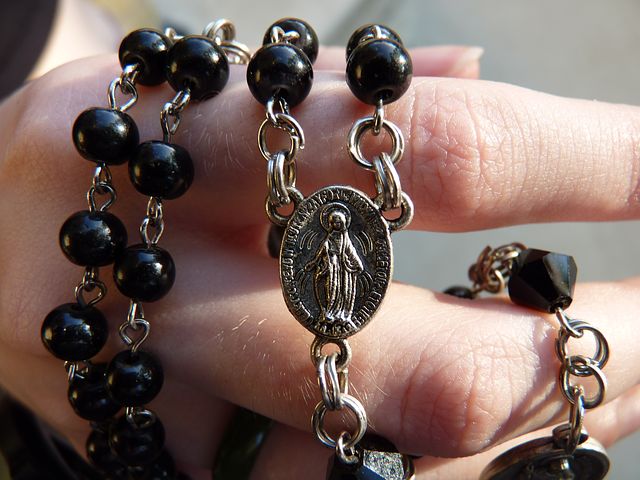
Oct 7, 2017 | Non categorizzato
 “The rosary is the drama of the Redemption seen through the eyes of Mary, virgin and Mother: the joys of Nazareth, the light of Bethlehem, the actions of Joseph, then the tragedy of the cross, and finally the heavenly glory. These are made family patrimony, they belong to us. They are our story, our life.” (Igino Giordani, Una stella accesa nella notte, (A star shining in the night) Città nuova, Roma, 2004, p. 81). 1922-1925. “If it is not possible in the pure stillness of vespers in our grandparents’ house, with a great blaze in the hearth, to gather in prayer with forefathers, grandchildren, children, and relatives: let us pray the Rosary in trams, in steamships, in the rumble of a tunnel and in the agitation of a locomotive: our effort to escape in an impetus of spirituality from the rampage of mechanized matter will be more commendable. A quarter of an hour in church will not be a sleepy habit and our prayer will be a fountain of respite in the gruelling heat of the civilization forced upon us.” (Igino Giordani, Diario di fuoco, (Diary of Fire) Città Nuova, Roma, 2005 [1980] p.19). 1933. “The Mother…There is an especially appreciative prayer to her, which represents a series of the mysteries of the life of Jesus cited with titles in her honour: the Rosary. It leads to serenity in the tired and sombre evening hours, in the arduous hours of life, and gives strength to hope in tomorrow and begin again: that coarse chain of cheap pearls transmits currents of celestial life into the poor bones exhausted by effort, lighting once again the only light in souls bombarded by social injustices or multiple misfortunes. It also gives to whoever lives, the hope of reaching the Father, of death with immortality, of the finite with Eternity.” (Igino Giordani, Diario di fuoco, cit. p.28) 1 October 1945. “Why does Mary mean so much to us? Because for us, those who truly follow the Gospel feel and act as children, for whom their mother is everything, and fills their every need. She is sought after because she leads them to God. They take her hand, they hold onto her skirts, because she leads them to the Father. There is no more reassuring, more loving or more beautiful way to present oneself to Him. Furthermore, in our Mother’s company, everything in life is more beautiful: Nature laughs, men themselves no longer seem savage.” (Igino Giordani, Diario di fuoco, cit. p.68) 9 October 1965. “I have only to see an image of Mary, so that the most beautiful things in my life come to mind. I then see that the joy of existence is called Mary for me; my glory is She, my strength is Her motherhood; the beauty that fascinates me is Her virginity; the acceptance of sorrow is the participation in Her trials as the Desolate. I see no positive aspect of my existence in which She does not enter: my life is Mary. And Mary is the Mother of Jesus: it is She who gives me God, weds the soul with the Holy Spirit, bringing it closer to the paternity of the Eternal. Who will thank you, Mama?” (Igino Giordani, Diario di fuoco, cit. p.180).
“The rosary is the drama of the Redemption seen through the eyes of Mary, virgin and Mother: the joys of Nazareth, the light of Bethlehem, the actions of Joseph, then the tragedy of the cross, and finally the heavenly glory. These are made family patrimony, they belong to us. They are our story, our life.” (Igino Giordani, Una stella accesa nella notte, (A star shining in the night) Città nuova, Roma, 2004, p. 81). 1922-1925. “If it is not possible in the pure stillness of vespers in our grandparents’ house, with a great blaze in the hearth, to gather in prayer with forefathers, grandchildren, children, and relatives: let us pray the Rosary in trams, in steamships, in the rumble of a tunnel and in the agitation of a locomotive: our effort to escape in an impetus of spirituality from the rampage of mechanized matter will be more commendable. A quarter of an hour in church will not be a sleepy habit and our prayer will be a fountain of respite in the gruelling heat of the civilization forced upon us.” (Igino Giordani, Diario di fuoco, (Diary of Fire) Città Nuova, Roma, 2005 [1980] p.19). 1933. “The Mother…There is an especially appreciative prayer to her, which represents a series of the mysteries of the life of Jesus cited with titles in her honour: the Rosary. It leads to serenity in the tired and sombre evening hours, in the arduous hours of life, and gives strength to hope in tomorrow and begin again: that coarse chain of cheap pearls transmits currents of celestial life into the poor bones exhausted by effort, lighting once again the only light in souls bombarded by social injustices or multiple misfortunes. It also gives to whoever lives, the hope of reaching the Father, of death with immortality, of the finite with Eternity.” (Igino Giordani, Diario di fuoco, cit. p.28) 1 October 1945. “Why does Mary mean so much to us? Because for us, those who truly follow the Gospel feel and act as children, for whom their mother is everything, and fills their every need. She is sought after because she leads them to God. They take her hand, they hold onto her skirts, because she leads them to the Father. There is no more reassuring, more loving or more beautiful way to present oneself to Him. Furthermore, in our Mother’s company, everything in life is more beautiful: Nature laughs, men themselves no longer seem savage.” (Igino Giordani, Diario di fuoco, cit. p.68) 9 October 1965. “I have only to see an image of Mary, so that the most beautiful things in my life come to mind. I then see that the joy of existence is called Mary for me; my glory is She, my strength is Her motherhood; the beauty that fascinates me is Her virginity; the acceptance of sorrow is the participation in Her trials as the Desolate. I see no positive aspect of my existence in which She does not enter: my life is Mary. And Mary is the Mother of Jesus: it is She who gives me God, weds the soul with the Holy Spirit, bringing it closer to the paternity of the Eternal. Who will thank you, Mama?” (Igino Giordani, Diario di fuoco, cit. p.180).
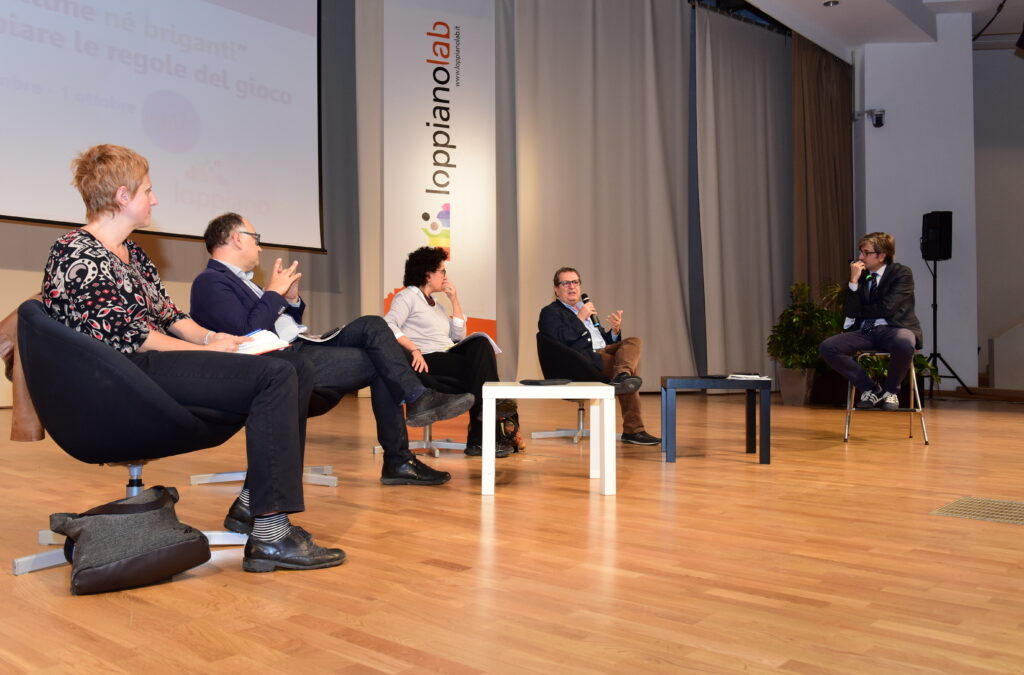
Oct 6, 2017 | Non categorizzato
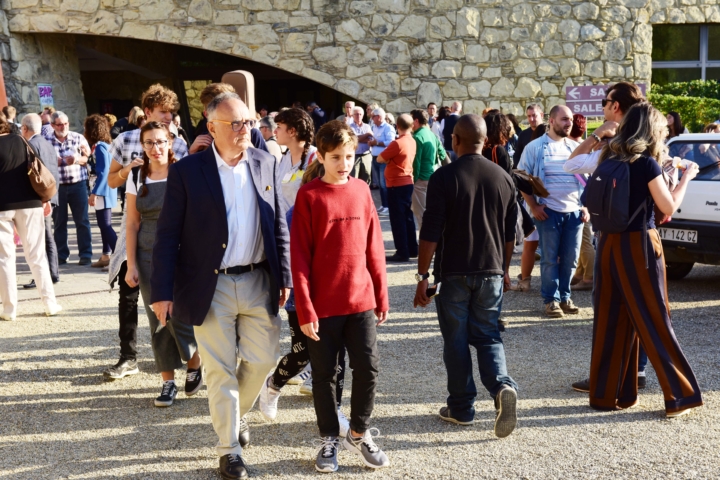 The choice of the title Neither victims nor bandits had been inspired by the words of Pope Francis during the audience last February before the representatives of the Economy of Communion (EoC), when he affirmed that it is no longer enough to imitate the Gospel’s good Samaritan who saved a man from bandits, but that there is need to act “especially before the man bumps into the bandits, to thus fight the structures of sin that produce bandits and victims.” We need, therefore, to do some soul searching and run the risks in order to change the rules of the game imposed by capitalism and globalization. World experts of culture, the media, economy and politics took turns in the various moments of the programme, along with the many representatives of civil society.
The choice of the title Neither victims nor bandits had been inspired by the words of Pope Francis during the audience last February before the representatives of the Economy of Communion (EoC), when he affirmed that it is no longer enough to imitate the Gospel’s good Samaritan who saved a man from bandits, but that there is need to act “especially before the man bumps into the bandits, to thus fight the structures of sin that produce bandits and victims.” We need, therefore, to do some soul searching and run the risks in order to change the rules of the game imposed by capitalism and globalization. World experts of culture, the media, economy and politics took turns in the various moments of the programme, along with the many representatives of civil society. 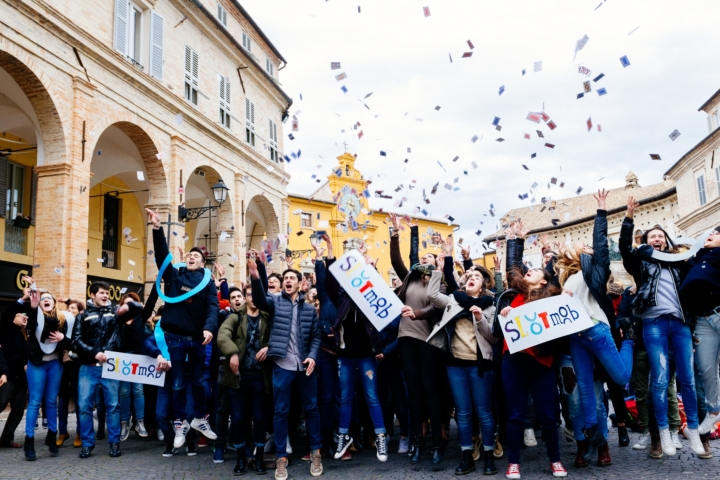 Pressing issues were discussed such as migration and reception, the reconversion of war industries and at the same time the paradox of arms exported by Italy for the war in Yemen where 15 million people have been suffering from the worst cholera epidemic over the last years and have no access to water. Another burning issue discussed was slot machine gambling, and the Slotmob movement created four years ago to stop this social wound promoted by the State itself. There were various stories: from the reports of harassment and injustice, to the efforts of those who have to fight daily against the wall of indifference and meanness, those who have decided not to allow gambling machines in their bars, and those who have promoted with friends a real march against the culture of gambling in their countries.
Pressing issues were discussed such as migration and reception, the reconversion of war industries and at the same time the paradox of arms exported by Italy for the war in Yemen where 15 million people have been suffering from the worst cholera epidemic over the last years and have no access to water. Another burning issue discussed was slot machine gambling, and the Slotmob movement created four years ago to stop this social wound promoted by the State itself. There were various stories: from the reports of harassment and injustice, to the efforts of those who have to fight daily against the wall of indifference and meanness, those who have decided not to allow gambling machines in their bars, and those who have promoted with friends a real march against the culture of gambling in their countries. 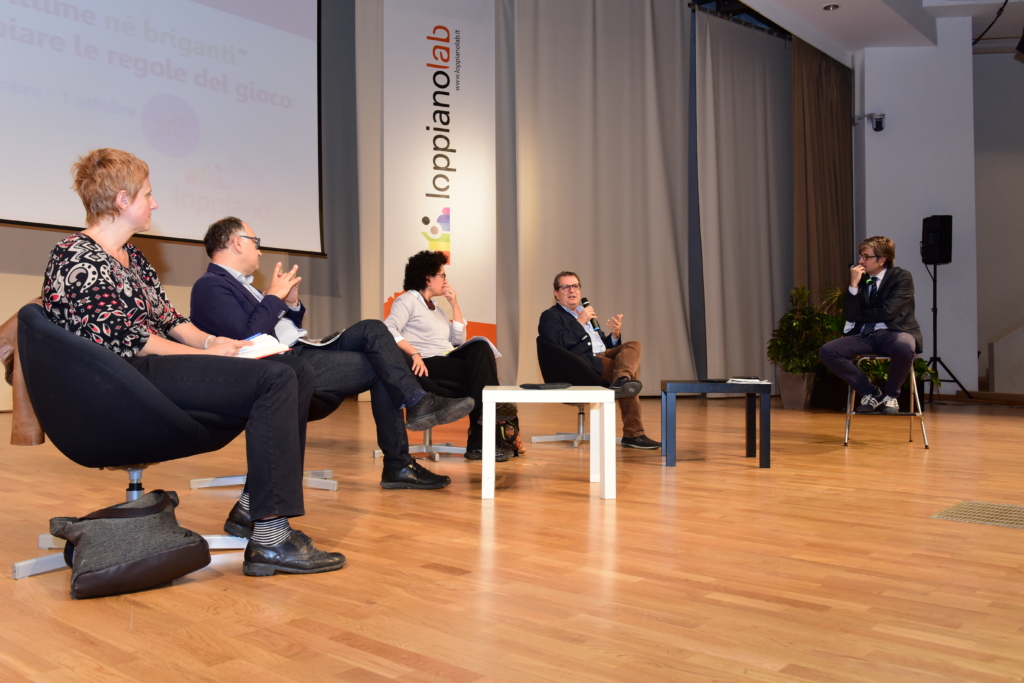 Vincenzo Conticello, a former businessman and justice witness in Palermo, spoke about the reality of a company that was reduced to bankruptcy by the racket and mafia, and how he was forced to leave his city after undergoing injustice and abuse of power. Chiara Peri of the Astalli Center for refugees, underlined that currently there is a widespread cultural commercialisation of the migrations due to which “the migrants and the poor, treated like merchandise and at times like rejects,” are to be blamed for their poverty and condition.. So here lies the paradox, “the Italians fear the victims more than the bandits.” The round table on Relational assets and work, one of the items of the event highlighted the importance of friendship, trust, company, cordiality, support, sense of belonging, and involvement – all factors that determine satisfaction in the workplace, said Prof. Benedetto Gui. What counts is not only the salary or work schedule, but to recognise the economic dignity of relational assets. Jesús Morán, Co-President of the Focolare, was at the presentation of Bernhard Callebaut’s book The birth of the Focolare. History and Sociology of a charism (1943-1965), for New City. He analysed all the work under the viewpoint of implementation as the “creative reinterpretation of tradition.” Shahrzad Houshmand, an Iranian and a Muslim theologian, also attended the book launching and gave a testimonial of how in all these years, Chiara Lubich and the Focolare Movement did not establish dialogue with religions, but with people. Chiara for Shahrzad was “a woman with the visionary faith of a person who feared nothing,” and was never afraid of meeting “the other” even if this could lead to “death of oneself.” Lastly, in the face of the continuous and obstinate aggressions to peace, the EoC economist, Luigino Bruni, and Marco Tarquinio, director of the newspaper Avvenire asked Pope Francis to write an encyclical on peace that is able to “shake off inertia.” This is what we are all hoping for!
Vincenzo Conticello, a former businessman and justice witness in Palermo, spoke about the reality of a company that was reduced to bankruptcy by the racket and mafia, and how he was forced to leave his city after undergoing injustice and abuse of power. Chiara Peri of the Astalli Center for refugees, underlined that currently there is a widespread cultural commercialisation of the migrations due to which “the migrants and the poor, treated like merchandise and at times like rejects,” are to be blamed for their poverty and condition.. So here lies the paradox, “the Italians fear the victims more than the bandits.” The round table on Relational assets and work, one of the items of the event highlighted the importance of friendship, trust, company, cordiality, support, sense of belonging, and involvement – all factors that determine satisfaction in the workplace, said Prof. Benedetto Gui. What counts is not only the salary or work schedule, but to recognise the economic dignity of relational assets. Jesús Morán, Co-President of the Focolare, was at the presentation of Bernhard Callebaut’s book The birth of the Focolare. History and Sociology of a charism (1943-1965), for New City. He analysed all the work under the viewpoint of implementation as the “creative reinterpretation of tradition.” Shahrzad Houshmand, an Iranian and a Muslim theologian, also attended the book launching and gave a testimonial of how in all these years, Chiara Lubich and the Focolare Movement did not establish dialogue with religions, but with people. Chiara for Shahrzad was “a woman with the visionary faith of a person who feared nothing,” and was never afraid of meeting “the other” even if this could lead to “death of oneself.” Lastly, in the face of the continuous and obstinate aggressions to peace, the EoC economist, Luigino Bruni, and Marco Tarquinio, director of the newspaper Avvenire asked Pope Francis to write an encyclical on peace that is able to “shake off inertia.” This is what we are all hoping for!
Oct 5, 2017 | Non categorizzato
The Commonwealth of Puerto Rico with its more that 3 milion people was devastated last week by a double-edged sword when it was hit by hurricanes, Irma and Maria in what has been consdidered the worst natural distaster in 90 years. Governor Ricardo Rossello announced that the death toll has risen to 34. The Carribean island is currently in a state of chaos and suffering from further emergency because of the scarcity of food, electrictricity – also in hospitals – and potable water. Two regions have not yet been reached by emergency responders, and many mountain villages on the mountains have been left to themselves. The small local Focolare community has been involved in helping. The situation remains critical.
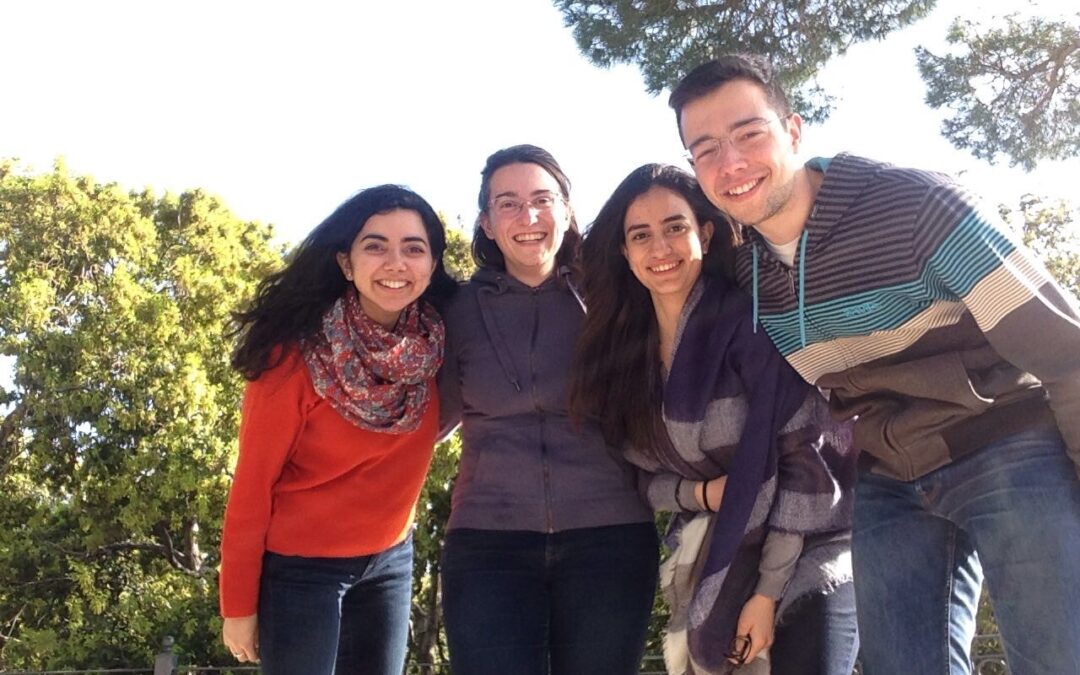
Oct 5, 2017 | Non categorizzato
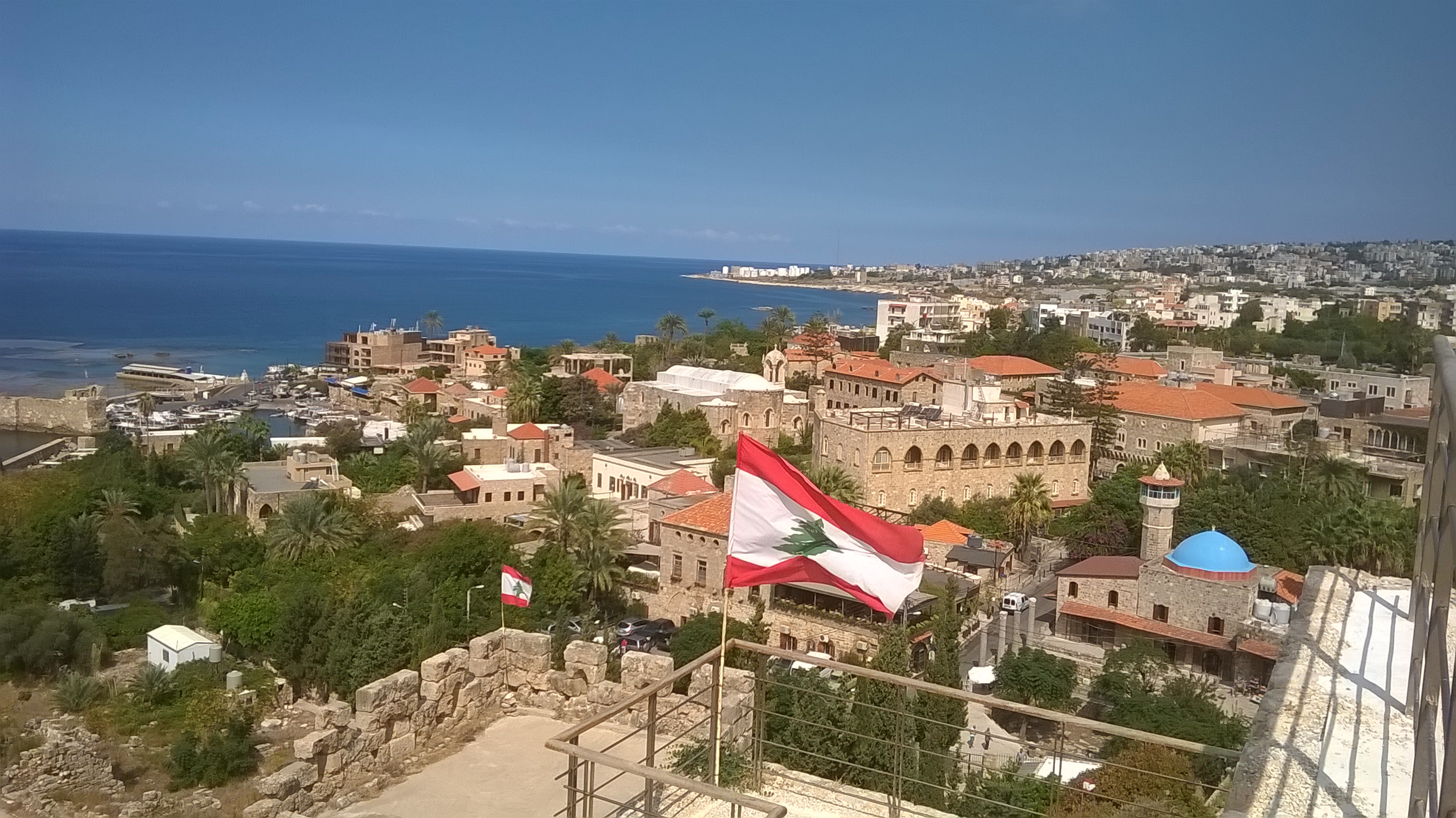 After graduating in languages and international relations, I took off for Lebanon to continue my studies of the Arab language and, at long last, to immerge myself in Middle East culture that fascinated. It might seem odd to tell the story of an experience beginning from the end, from when I had to leave the Middle East, but that was when I grasped the importance experience. As I prepared to return to Italy, my thoughts went back to when it all began, and I asked myself if my long-awaited stay in the Middle East could already be over. I remembered myself as the girl who was taking her first steps into the choas of Beirut, who felt like everbody was staring at her because she was a foreigner. In a matter of a very little time, however, people began to stop me on the road and ask me in Arabic for directions, mistaking me for Lebanese. Perhaps it was more my prejudiced view towards them, rather than the opposite! In the beginning, the indifference towards the new environment was involuntary, which prevented me from getting out of myself and loving the people walking by. I hadn’t yet understood that the environment around me was just different, not dangerous.
After graduating in languages and international relations, I took off for Lebanon to continue my studies of the Arab language and, at long last, to immerge myself in Middle East culture that fascinated. It might seem odd to tell the story of an experience beginning from the end, from when I had to leave the Middle East, but that was when I grasped the importance experience. As I prepared to return to Italy, my thoughts went back to when it all began, and I asked myself if my long-awaited stay in the Middle East could already be over. I remembered myself as the girl who was taking her first steps into the choas of Beirut, who felt like everbody was staring at her because she was a foreigner. In a matter of a very little time, however, people began to stop me on the road and ask me in Arabic for directions, mistaking me for Lebanese. Perhaps it was more my prejudiced view towards them, rather than the opposite! In the beginning, the indifference towards the new environment was involuntary, which prevented me from getting out of myself and loving the people walking by. I hadn’t yet understood that the environment around me was just different, not dangerous. 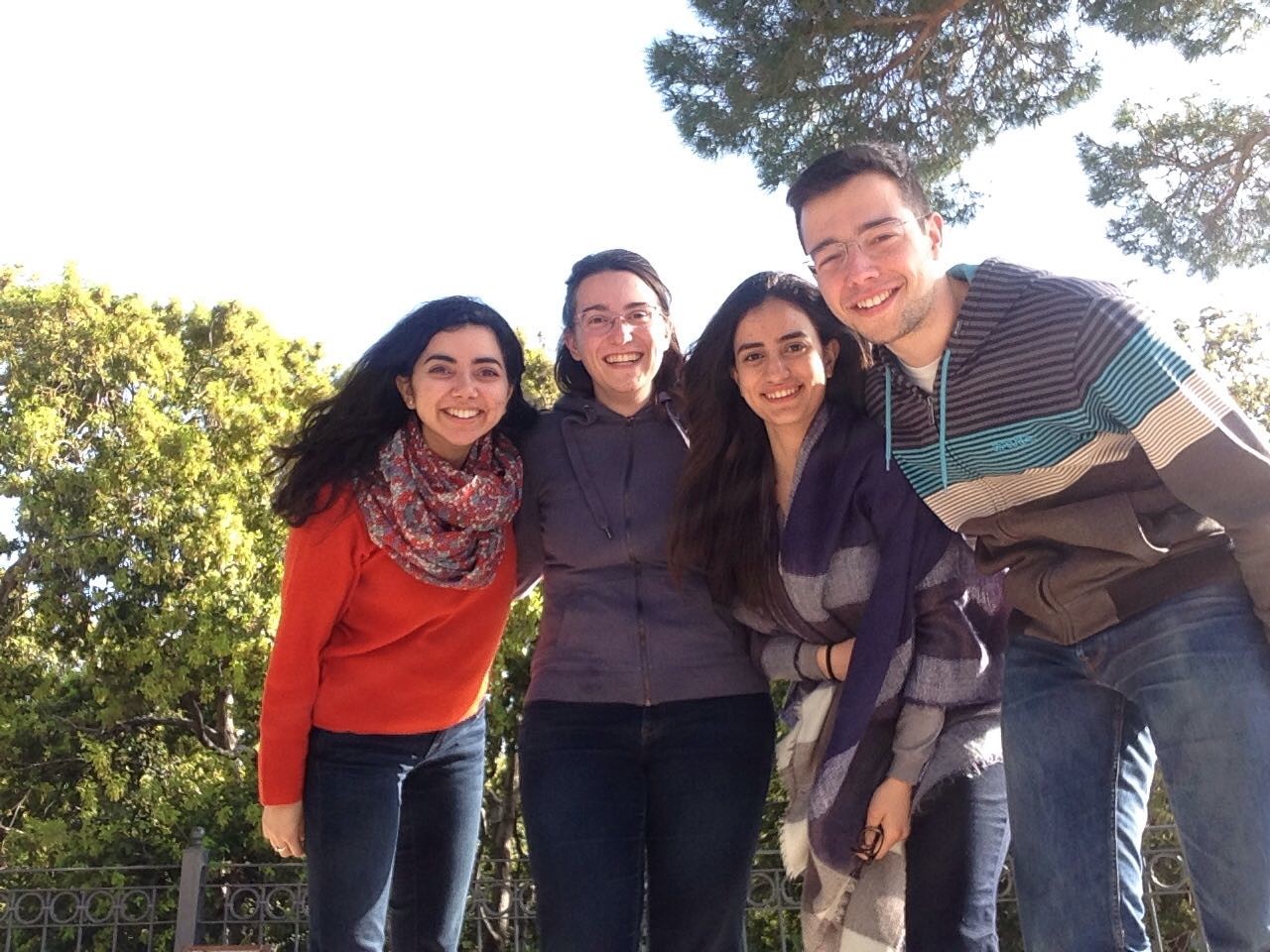 I realized how much my vision of Lebanon changed over the course of the year. At first I had mostly perceived the differences with respect to Italy. Then, I quickly fell in love with the land, its richness, the variety of religions, cultures, scenic landscapes and history. I had fallen in love with the people who, in spite of their recent painful past, was able to live again, Christians and Muslims shoulder to shoulder. I had fallen in love with a people that was spontaneous, welcoming – and had a fantastic cuisine! Then I had to recuperate a bit of objectivity in looking at a land that like every other had its own contradictions, such as the great poverty and ostentatious wealth that live not far apart. In my mind I went back over the year in Lebanon during which many aspects of life that once seemed dangerous or odd, unfortunfortunate or disappointing compared to Italy, have become part of my daily life (not at all infelicitious – on the contrary!). When I said good-bye to the Sryian refugee children whom I had helped with homework, they only said “ciao,” showing how we’re all important and none of us is indispensible. Realizing that I’d probably never know what had come of them was rather painful. I had to say goodbye to the friends that I had made, to whom I owe so much and hoping with all my heart that I would see them again, but never really knowing if I would. It was quite an effort to embrace the thought that distances was coming between us once again, not only geographically, but mostly bureaucratically. To leave each other, knowing that borders, visas and distance were about to fall on us was, at times, exasperating and even unbearable. But now I know that this is the price you pay for being a global citizen as we Gen say. Now, after having left pieces of my heart around the world, a united world is no longer merely something that would be nice if it were really true: a world without borders has become a need.
I realized how much my vision of Lebanon changed over the course of the year. At first I had mostly perceived the differences with respect to Italy. Then, I quickly fell in love with the land, its richness, the variety of religions, cultures, scenic landscapes and history. I had fallen in love with the people who, in spite of their recent painful past, was able to live again, Christians and Muslims shoulder to shoulder. I had fallen in love with a people that was spontaneous, welcoming – and had a fantastic cuisine! Then I had to recuperate a bit of objectivity in looking at a land that like every other had its own contradictions, such as the great poverty and ostentatious wealth that live not far apart. In my mind I went back over the year in Lebanon during which many aspects of life that once seemed dangerous or odd, unfortunfortunate or disappointing compared to Italy, have become part of my daily life (not at all infelicitious – on the contrary!). When I said good-bye to the Sryian refugee children whom I had helped with homework, they only said “ciao,” showing how we’re all important and none of us is indispensible. Realizing that I’d probably never know what had come of them was rather painful. I had to say goodbye to the friends that I had made, to whom I owe so much and hoping with all my heart that I would see them again, but never really knowing if I would. It was quite an effort to embrace the thought that distances was coming between us once again, not only geographically, but mostly bureaucratically. To leave each other, knowing that borders, visas and distance were about to fall on us was, at times, exasperating and even unbearable. But now I know that this is the price you pay for being a global citizen as we Gen say. Now, after having left pieces of my heart around the world, a united world is no longer merely something that would be nice if it were really true: a world without borders has become a need.
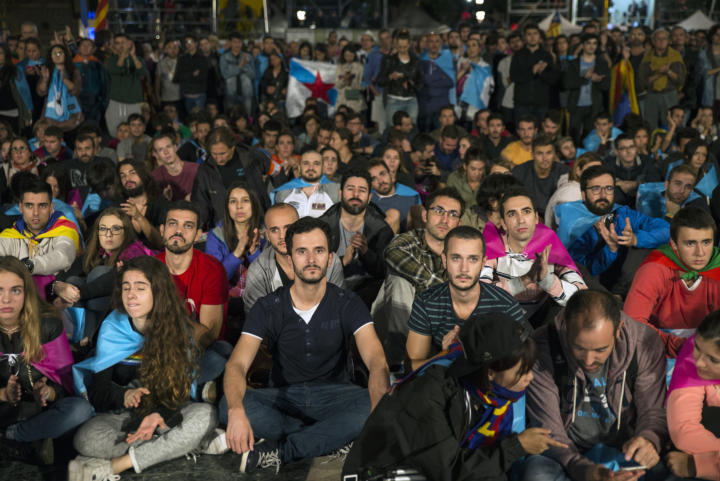
Oct 4, 2017 | Non categorizzato
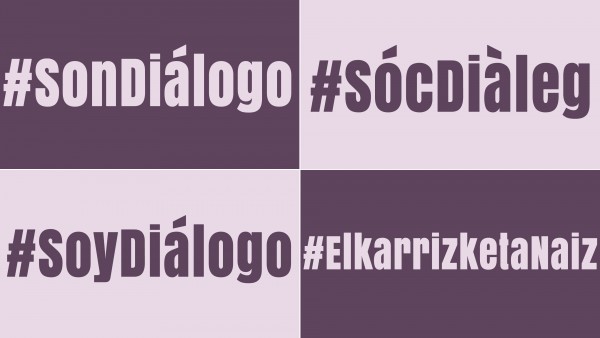 SoyDiálogo (I’m dialogue) is meant as a personal challenge in the face of the situation that has come about in Spain, the proposal to reject every form of violence and to live for the concrete promotion of a culture of dialogue. The challenge is both need and courageous. There have been many efforts in this direction. On the 26th of September, the Focoalre Movement in Spain had proposed a document and gathering of signatures with the intent of promoting opportunities for dialogue, listening and respect. It is an appeal to find peaceful solutions for harmonious coexistence in diversity, recognizing the human dignity of all people and institutions that represent them. The proposal, marked with the hastag #SoyDiálogo, which is in full agreement with the recently relaunched invitation of the bishops to “advance the path of dialogue and mutual understanding,” seems even more timely now, following the results of the referendum vote that opens great unknowns on the future of Catalonia, from Spain and from Europe. The promoters of the effort write: “Dialogue is a powerful tool that makes interest in others possible, entering into their reality, to live it, embrace and, inasmuch as possible, comprehend it. Among us, Focolare members all over Spain, there are people with different cultural and political identities. We’re directly involved in building bridges, convinced that there is an element of truth in the vision and choices of the other. But we condsider diversity to be a positive challenge and enrichment.” “Comments from signers on Twitter: “A signature never decides, but it’s better than crossing your arms and watching the river go by.” “We are as we discuss, enriched by the gift of diversity.” “I believe in dialogue, which presupposes respect, transparency and acceptance that there is a bit of truth in the other tha I can totally embrace.” “It’s not a bad thing to think differently. It’s the way you evolve. It’s the opposite of uniformity and immobility.”
SoyDiálogo (I’m dialogue) is meant as a personal challenge in the face of the situation that has come about in Spain, the proposal to reject every form of violence and to live for the concrete promotion of a culture of dialogue. The challenge is both need and courageous. There have been many efforts in this direction. On the 26th of September, the Focoalre Movement in Spain had proposed a document and gathering of signatures with the intent of promoting opportunities for dialogue, listening and respect. It is an appeal to find peaceful solutions for harmonious coexistence in diversity, recognizing the human dignity of all people and institutions that represent them. The proposal, marked with the hastag #SoyDiálogo, which is in full agreement with the recently relaunched invitation of the bishops to “advance the path of dialogue and mutual understanding,” seems even more timely now, following the results of the referendum vote that opens great unknowns on the future of Catalonia, from Spain and from Europe. The promoters of the effort write: “Dialogue is a powerful tool that makes interest in others possible, entering into their reality, to live it, embrace and, inasmuch as possible, comprehend it. Among us, Focolare members all over Spain, there are people with different cultural and political identities. We’re directly involved in building bridges, convinced that there is an element of truth in the vision and choices of the other. But we condsider diversity to be a positive challenge and enrichment.” “Comments from signers on Twitter: “A signature never decides, but it’s better than crossing your arms and watching the river go by.” “We are as we discuss, enriched by the gift of diversity.” “I believe in dialogue, which presupposes respect, transparency and acceptance that there is a bit of truth in the other tha I can totally embrace.” “It’s not a bad thing to think differently. It’s the way you evolve. It’s the opposite of uniformity and immobility.”  Some considerations from those who believe in dialogue. Girona: “These are strange times, a mix of sadness, helplessness and worry. At the same time it’s clear to me what I should do. In any event I wonder what I can do, with my limited possibilities. I make an effort not to judge. Opportunities for listening with an open mind are never lacking.” A young woman from Seville writes: “With a Catalan friend we try to keep the dialogue open. I take an interest in her family. When you get to know the other person’s background, you can change a bit of your idea and love that person more, even though we have differing ideas.” From Barcelona: “These events offer many possibilities for keeping the dialogue going with those who think like me, and also with those who don’t think like me.” “Up until now I limited myself to praying and cancelling the chain of photos, jokes or doubtful news that circulate online and don’t favour positive feelings,” writes a woman from Toledo. “Then I wondered to myself: what more can I do? I tried to make it known to the people I know in Catalonia that they can count on me to build dialogue. Perhaps that was obvious, but I felt like I had to come out and say it.” Girona writes: “In my opinion when we’re not able to see the bit of truth that is there in the other, we already demonize them. This gives us free rein to write or share whatever incendiary comment that enters our mind. We’re immersed in all this, at times without realizing it, and that’s what’s worse. We forget that our challenge is more heroic and difficult than just making propaganda out of our ideas and disparaging those of others. The real challenge is to build bridges.” From Seville: “I have a lot of friends in Catalonia, brothers and sisters who have decided with me to work at building a new humanity. We share each other’s worries and pain. For this reason, when we write to each other, they’ve felt free to tell me: we hope that the next time, when we see each other again we’ll be independent. And they in turn have listened to me when I answered: I wish for us all that the next time we see one another reason and good thinking will have won.”
Some considerations from those who believe in dialogue. Girona: “These are strange times, a mix of sadness, helplessness and worry. At the same time it’s clear to me what I should do. In any event I wonder what I can do, with my limited possibilities. I make an effort not to judge. Opportunities for listening with an open mind are never lacking.” A young woman from Seville writes: “With a Catalan friend we try to keep the dialogue open. I take an interest in her family. When you get to know the other person’s background, you can change a bit of your idea and love that person more, even though we have differing ideas.” From Barcelona: “These events offer many possibilities for keeping the dialogue going with those who think like me, and also with those who don’t think like me.” “Up until now I limited myself to praying and cancelling the chain of photos, jokes or doubtful news that circulate online and don’t favour positive feelings,” writes a woman from Toledo. “Then I wondered to myself: what more can I do? I tried to make it known to the people I know in Catalonia that they can count on me to build dialogue. Perhaps that was obvious, but I felt like I had to come out and say it.” Girona writes: “In my opinion when we’re not able to see the bit of truth that is there in the other, we already demonize them. This gives us free rein to write or share whatever incendiary comment that enters our mind. We’re immersed in all this, at times without realizing it, and that’s what’s worse. We forget that our challenge is more heroic and difficult than just making propaganda out of our ideas and disparaging those of others. The real challenge is to build bridges.” From Seville: “I have a lot of friends in Catalonia, brothers and sisters who have decided with me to work at building a new humanity. We share each other’s worries and pain. For this reason, when we write to each other, they’ve felt free to tell me: we hope that the next time, when we see each other again we’ll be independent. And they in turn have listened to me when I answered: I wish for us all that the next time we see one another reason and good thinking will have won.”
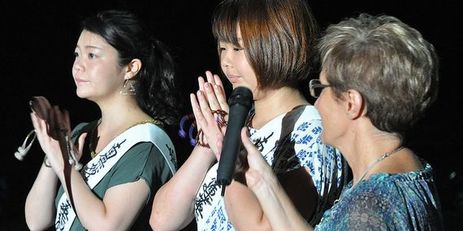
Oct 4, 2017 | Non categorizzato
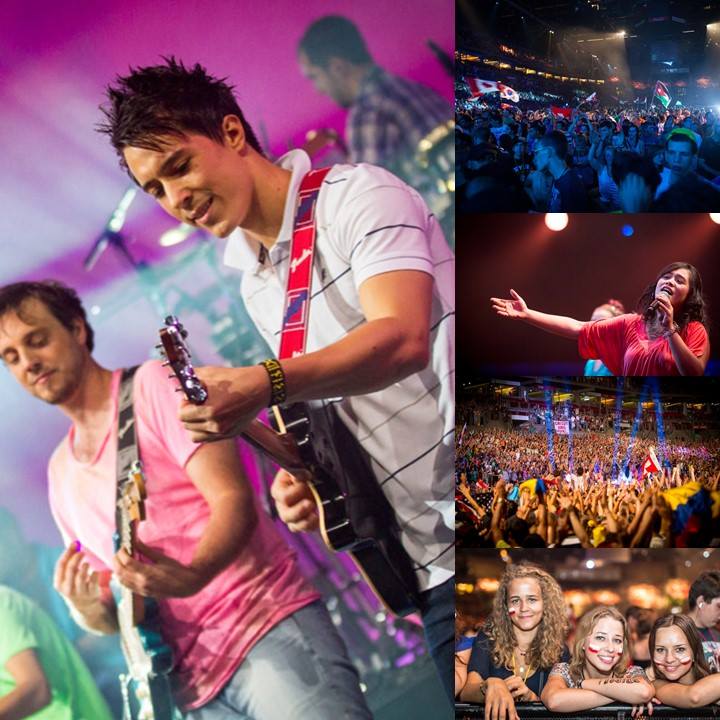 World Trade Centre Metro in Manila, Philippines, 6-8 July 2018. The meeting is for thousands of young people from all over the world, motivated by an idea, almost a fixation, which shapes their lives and all their social projects: building a just and united world. The Genfest 2018, Beyond all borders, is an invitation to let the barriers, borders, and limits which stand in the way of this goal, crumble. The Genfest began in 1973 with an idea from Chiara Lubich, founder of the Focolare Movement, and in more than 40 years it has gathered together tens of thousands of young people. The Genfest of 2018 will be the eleventh edition, and the first to be outside of Europe. In its long history, each Genfest has been an important step and has seen many projects come to life: among these is the idea for the World Youth Days, begun in 1985; in the same year, the birth of the Youth for a United World (YFUW); the World Unity Week, active since 1996, to showcase the initiatives which promote unity, at all levels, in the world; and finally, since 2012, the United World Project, a permanent observatory of all good practices on a planetary level. This Genfest will just precede the Synod on young people, which will be held in October 2018. Meeting with the organizers, present at this time at Castelgandolfo (Rome) for the meeting of the delegates of the Focolare Movement from all over the world, we have gathered some “first-hand” news. Ding Dalisay represents the Philippines at this assembly: “To our great joy, we have received the support of the president of the Catholic Bishops’ Conference of the Philippines, who encourages us to work to bring the Genfest to as many young people as possible. For some time now the youth of the Philippines have been touring in caravans to present the Genfest in parishes, universities, and other places. We have great hope that many young people will come.” Carlo Gentile, delegate of the Philippines along with Ding: “It will be the first Genfest in Asia, so it will be a very important multicultural event. Chiara Lubich called the Genfest a “cascade of God.” We can expect a wonderful event that has been prepared for all the youth from Asia, but also the whole world; a profound experience, immersed in the Asian culture.
World Trade Centre Metro in Manila, Philippines, 6-8 July 2018. The meeting is for thousands of young people from all over the world, motivated by an idea, almost a fixation, which shapes their lives and all their social projects: building a just and united world. The Genfest 2018, Beyond all borders, is an invitation to let the barriers, borders, and limits which stand in the way of this goal, crumble. The Genfest began in 1973 with an idea from Chiara Lubich, founder of the Focolare Movement, and in more than 40 years it has gathered together tens of thousands of young people. The Genfest of 2018 will be the eleventh edition, and the first to be outside of Europe. In its long history, each Genfest has been an important step and has seen many projects come to life: among these is the idea for the World Youth Days, begun in 1985; in the same year, the birth of the Youth for a United World (YFUW); the World Unity Week, active since 1996, to showcase the initiatives which promote unity, at all levels, in the world; and finally, since 2012, the United World Project, a permanent observatory of all good practices on a planetary level. This Genfest will just precede the Synod on young people, which will be held in October 2018. Meeting with the organizers, present at this time at Castelgandolfo (Rome) for the meeting of the delegates of the Focolare Movement from all over the world, we have gathered some “first-hand” news. Ding Dalisay represents the Philippines at this assembly: “To our great joy, we have received the support of the president of the Catholic Bishops’ Conference of the Philippines, who encourages us to work to bring the Genfest to as many young people as possible. For some time now the youth of the Philippines have been touring in caravans to present the Genfest in parishes, universities, and other places. We have great hope that many young people will come.” Carlo Gentile, delegate of the Philippines along with Ding: “It will be the first Genfest in Asia, so it will be a very important multicultural event. Chiara Lubich called the Genfest a “cascade of God.” We can expect a wonderful event that has been prepared for all the youth from Asia, but also the whole world; a profound experience, immersed in the Asian culture.  A worldwide mobilization has already begun. There are many contacts with other Movements, for example with the youth of the Rissho Kosei-kai, a Japanese Buddhist lay association, with six million followers, and with the Youth World Peace Forum, which will celebrate its own annual meeting in Manila during the same time period as the Genfest. In some parts of the world, smaller Genfest activities are being planned with local initiatives. A committee of 30 young people, representatives of different geographical areas of the world, with the coordination of the international secretariat of the Youth for a United World, is already at work. Kiara Cariaso and Diego Lopez explain: “We are working to bring young people from all over the world to the Genfest in Manila. There are already many activities, not only in the Philippines, because it will be a planetary event which we build together.” “In fact,” continues Diego, “we are gathering ideas that come from young people from all countries, we work together, and we send them to the Philippines.” They explain: “The 2018 Genfest will take place is three phases: the first, preceding the rally, with the possibility for many youth from various parts of the world to get to know the Asian cultures. It will be a unique intercultural, interreligious, and social experience, which will take place in different Asian countries. Following this, the central event in Manila, from 6 to 8 July, in which we want youth from every part of the world to be able to participate, so that each person’s situation will be made present, but at the same time each person will bring back to their own community their experience and the commitment they made in Manila. Finally, a “post Genfest,” especially for the Asian young people, which will allow them to testify to a “United Asia for a United World.” This will be a great experience for 800 young people in the Focolare small town of Tagaytay.” Offical site: y4uw.org/genfest
A worldwide mobilization has already begun. There are many contacts with other Movements, for example with the youth of the Rissho Kosei-kai, a Japanese Buddhist lay association, with six million followers, and with the Youth World Peace Forum, which will celebrate its own annual meeting in Manila during the same time period as the Genfest. In some parts of the world, smaller Genfest activities are being planned with local initiatives. A committee of 30 young people, representatives of different geographical areas of the world, with the coordination of the international secretariat of the Youth for a United World, is already at work. Kiara Cariaso and Diego Lopez explain: “We are working to bring young people from all over the world to the Genfest in Manila. There are already many activities, not only in the Philippines, because it will be a planetary event which we build together.” “In fact,” continues Diego, “we are gathering ideas that come from young people from all countries, we work together, and we send them to the Philippines.” They explain: “The 2018 Genfest will take place is three phases: the first, preceding the rally, with the possibility for many youth from various parts of the world to get to know the Asian cultures. It will be a unique intercultural, interreligious, and social experience, which will take place in different Asian countries. Following this, the central event in Manila, from 6 to 8 July, in which we want youth from every part of the world to be able to participate, so that each person’s situation will be made present, but at the same time each person will bring back to their own community their experience and the commitment they made in Manila. Finally, a “post Genfest,” especially for the Asian young people, which will allow them to testify to a “United Asia for a United World.” This will be a great experience for 800 young people in the Focolare small town of Tagaytay.” Offical site: y4uw.org/genfest
Oct 3, 2017 | Non categorizzato
The international Gen Verde Music Group set up at Statdthagen, Germany, on September 9th to celebrate the 500th anniversary of the Lutheran Reform. Gen Verde writes: “A thousand people, in spite of the pouring rain that continued until just before the concert began.” “The crowd filled the entire main square of the pretty city of Stadthagen, in Lower Saxony. Our concert, On the Other Side, brought a note of fraternity and internationality. Already in the days leading up to the concert, we shared some beautiful moments with the Lutheran Bishop, Dr Manzke, who had invited us and his collaborators. On the day of the concert a group of young people and their pastors helped us to set up the stage, drenched by the rain. but happy.” “We are left in our heart with those people in the square under a sea of umbrellas, cold and listening and rejoicing, singing and finally dancing along with us! Thank you, Stadthagen, together we experienced moments as a true family.”
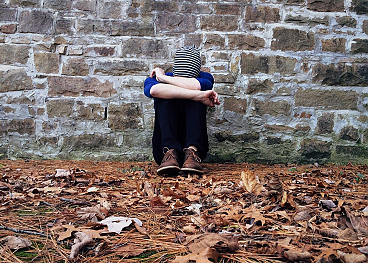
Oct 3, 2017 | Non categorizzato
Detached wires “In the first months of our marriage, dialogue between my husband and me was often interrupted due to the diversity of our opinions. A times, after rather harsh verbal clashes we would reach a total silence also for days. Returning from work for lunch the short break was occupied by the news on TV which Gaetano listened to with passion. One day, confiding in God’s help, I decided to send him a clear message: I returned home early from school and prepared a delicious lunch. The table was prettier than ever with flowers and a lit candle. Then I pulled out all the wires of the TV. Upon arriving Gaetano was amazed and asked me if there was some anniversary to celebrate. We sat down at the table and as always, he tried to turn on the TV but immediately saw that it had nothing to do with a fault. Laughing he hugged me, begging forgiveness, and together we promised to correct one another always out of love. That was an important moment of growth in our relationship.” (Giulia – Italy) In the kitchen «During my shift in the kitchen, I couldn’t stand my co-friars who would taste all that I was cooking upon passing by. Every time I became increasingly defensive so they would not touch anything. One day, upon reading the phrase of the Gospel about the speck in the other’s eye and not seeing the log in your own, I realized that the judgment I had of my co-friars was hindering me from loving them. Since then every time someone passed in the kitchen, I would invite him to taste my cooking and ask his advice on whether, for example, I had to add more salt and so on. Since then the atmosphere in the monastery has changed.” (Fr. Krzysztof – Poland)  To love means taking risks «Some time ago an illiterate 15-year-old boy, already initiated in the activity of theft, started to frequent our home. Many had advised us to be careful in letting him in and to consider if it would not be better to help him but keep him at a distance. We were, however, convinced that Jesus was in him and that we had to love concretely, also to the point of taking a risk. Often that boy remained with us, went out with us and played with our children. After various months, the stealing instinct returned and he stole some money from us. After the first denials he admitted the fact and crying, begged for forgiveness, promising to return what he stole. But above all he became serene knowing that he could continue to count on our friendship and that if he ever needed money, all he had to do was ask. Now he no longer steals and has also found a job.” (D. L. – Italy) Difficult colleague “It seemed that a colleague had started picking on me, and whatever I did, he would go against it. For as long it had to do with small counteraction, I bore up with it. But at times, in the face of important commitments, he would go against everyone. Work had become unbearable. What could I do? The priest I spoke to advised me firstly to free myself from grudges and negative thoughts and try to see my colleague with new eyes. I tried it. Incredibly, at the next work meeting, he had become another person altogether! And evidently it not only depended on him.” (F. L. – Serbia)
To love means taking risks «Some time ago an illiterate 15-year-old boy, already initiated in the activity of theft, started to frequent our home. Many had advised us to be careful in letting him in and to consider if it would not be better to help him but keep him at a distance. We were, however, convinced that Jesus was in him and that we had to love concretely, also to the point of taking a risk. Often that boy remained with us, went out with us and played with our children. After various months, the stealing instinct returned and he stole some money from us. After the first denials he admitted the fact and crying, begged for forgiveness, promising to return what he stole. But above all he became serene knowing that he could continue to count on our friendship and that if he ever needed money, all he had to do was ask. Now he no longer steals and has also found a job.” (D. L. – Italy) Difficult colleague “It seemed that a colleague had started picking on me, and whatever I did, he would go against it. For as long it had to do with small counteraction, I bore up with it. But at times, in the face of important commitments, he would go against everyone. Work had become unbearable. What could I do? The priest I spoke to advised me firstly to free myself from grudges and negative thoughts and try to see my colleague with new eyes. I tried it. Incredibly, at the next work meeting, he had become another person altogether! And evidently it not only depended on him.” (F. L. – Serbia)
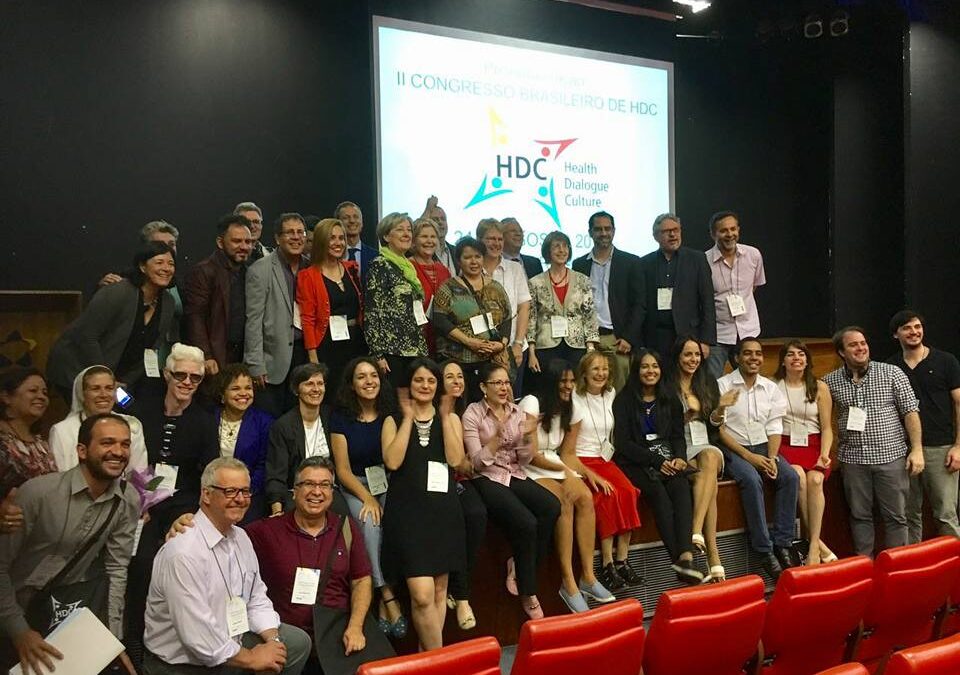
Oct 2, 2017 | Focolare Worldwide
 Health as a common good and sustainability of care systems are topics healthcare operators have to face worldwide, especially with the progressive increase of the average life expectancy and the increased need for care. How can the sick be assisted in an effective and likewise sustainable manner? And also: is there a correlation between spirituality and the global health of a person? These were the themes discussed in the convention organised by the Health Dialogue Culture, an international network of healthcare practitioners established in 2003 to contribute through a vital dialogue with science, to a culture that respects life and the dignity and integrity of every person, in the perspective of the promotion of social and individual health. Inspired by the charism of unity of the focolare Movement, Health Dialogue Culture offers room for reflection in connection with practice, from which guidelines are to be drawn as a contribution to the debate on the need to create new paradigms for the healthcare systems. The congress was held as a continuing program with other previous events on the same theme, and particularly with the one held in Padua (Italy) in 2013, entitled What medicine: across globalization, sustainability and personalization of treatments, and with the Letter of Ethics which gathered the results.
Health as a common good and sustainability of care systems are topics healthcare operators have to face worldwide, especially with the progressive increase of the average life expectancy and the increased need for care. How can the sick be assisted in an effective and likewise sustainable manner? And also: is there a correlation between spirituality and the global health of a person? These were the themes discussed in the convention organised by the Health Dialogue Culture, an international network of healthcare practitioners established in 2003 to contribute through a vital dialogue with science, to a culture that respects life and the dignity and integrity of every person, in the perspective of the promotion of social and individual health. Inspired by the charism of unity of the focolare Movement, Health Dialogue Culture offers room for reflection in connection with practice, from which guidelines are to be drawn as a contribution to the debate on the need to create new paradigms for the healthcare systems. The congress was held as a continuing program with other previous events on the same theme, and particularly with the one held in Padua (Italy) in 2013, entitled What medicine: across globalization, sustainability and personalization of treatments, and with the Letter of Ethics which gathered the results. 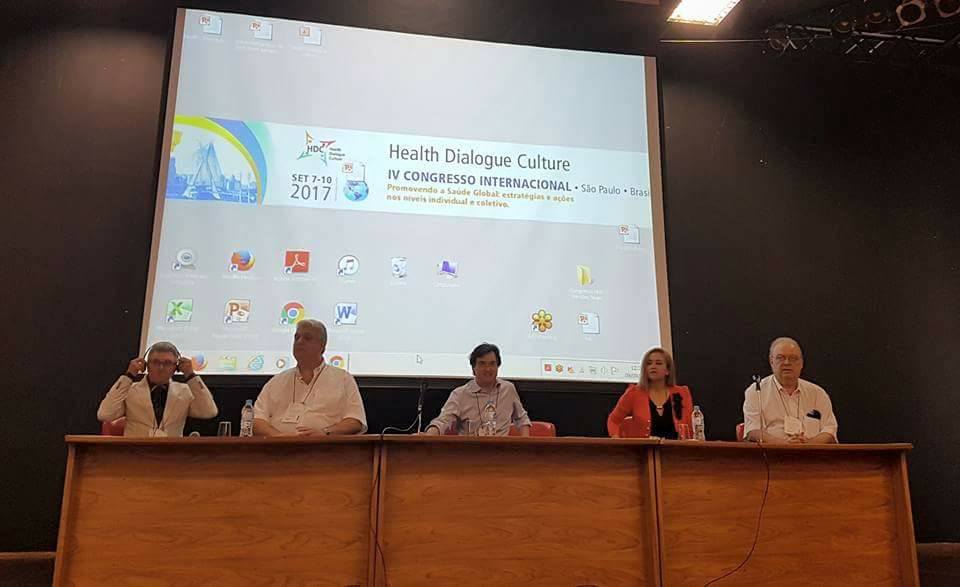 Among the new paradigms for the treatment of the sick person, the relational dimension is taking on an increasingly strategic role, that is, the set of relations at multiple levels (with the patients, among healthcare practitioners, and with the institutions) that revolve around the care issue. Long ignored in the drawing up of socio-healthcare models, also the spiritual dimension, wherever applied, has a substantial impact on the quality of life and the treatment outcomes. The Sao Paolo congress offered a structured programme with reports, labs, workshops, sharing of experiences and good practices, with a fruitful discussion on new methodologies to reach equity and accessibility to healthcare services at local and global levels. «The real challenge of this convention – the organisers said – was the cultural and professional wealth due to the variety of speakers and participants (over 270) and their coming from countries with the most diverse healthcare standards such as Congo, Cameroon, Norway, Venezuela, Chile, Paraguay, Uruguay, Benin, Amazon, Brazil, Dominican Republic, Spain, the UK, Italy and Austria. Particular attention was paid to the themes of disability, ageing, the methods in treating pain and suffering through palliative treatments and the training of operators (care for the caregivers).
Among the new paradigms for the treatment of the sick person, the relational dimension is taking on an increasingly strategic role, that is, the set of relations at multiple levels (with the patients, among healthcare practitioners, and with the institutions) that revolve around the care issue. Long ignored in the drawing up of socio-healthcare models, also the spiritual dimension, wherever applied, has a substantial impact on the quality of life and the treatment outcomes. The Sao Paolo congress offered a structured programme with reports, labs, workshops, sharing of experiences and good practices, with a fruitful discussion on new methodologies to reach equity and accessibility to healthcare services at local and global levels. «The real challenge of this convention – the organisers said – was the cultural and professional wealth due to the variety of speakers and participants (over 270) and their coming from countries with the most diverse healthcare standards such as Congo, Cameroon, Norway, Venezuela, Chile, Paraguay, Uruguay, Benin, Amazon, Brazil, Dominican Republic, Spain, the UK, Italy and Austria. Particular attention was paid to the themes of disability, ageing, the methods in treating pain and suffering through palliative treatments and the training of operators (care for the caregivers). 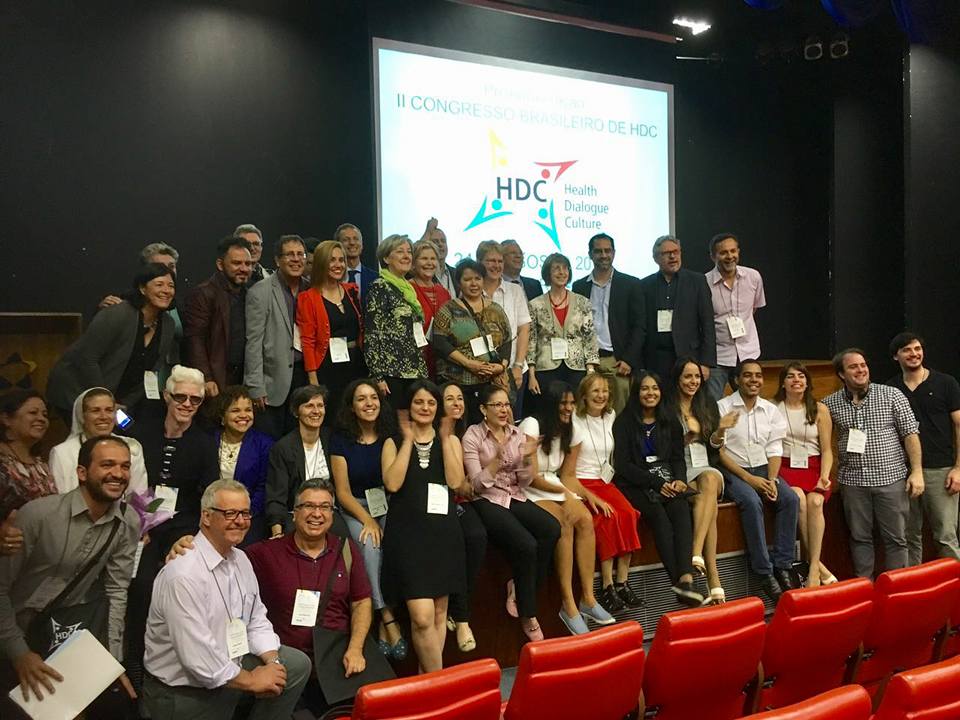 A specific programme was activated during the Congress with interactive sessions for students and young professionals of the biomedical area. A young student of medicine commented at the end of the works: “This congress has changed my ideas on medicine, with new ideas that make me a better person, and with the certainty that they also will make me a better professional.” A Brazilian doctor: “Science is not cold and distant. We have learned that we can practice science without forgetting the essence which unites us: Love.” Maria Voce, Focolare President, sent a message to the participants with the wish that they would “live their professions with a love that generates fraternity, all tending towards the good of the human family.” She recalled a phrase of Chiara Lubich was recalled: «Equilibrium of love lies in loving each single person next to us and working for the entire community from our own corner of life.”
A specific programme was activated during the Congress with interactive sessions for students and young professionals of the biomedical area. A young student of medicine commented at the end of the works: “This congress has changed my ideas on medicine, with new ideas that make me a better person, and with the certainty that they also will make me a better professional.” A Brazilian doctor: “Science is not cold and distant. We have learned that we can practice science without forgetting the essence which unites us: Love.” Maria Voce, Focolare President, sent a message to the participants with the wish that they would “live their professions with a love that generates fraternity, all tending towards the good of the human family.” She recalled a phrase of Chiara Lubich was recalled: «Equilibrium of love lies in loving each single person next to us and working for the entire community from our own corner of life.”
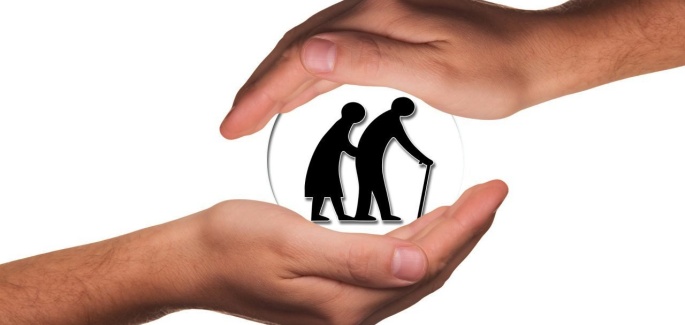
Oct 1, 2017 | Non categorizzato
 The International Day of Older Persons is celebrated on 1 October every year, as established by the United Nations in 1990. The objective is to heighten awareness of the issues regarding the elderly and show appreciation for their contribution to society. According to the World Health Organization, in 2050 the world population of people over 60 will reach 2 billion. The phenomenon of longevity will, however, involve most of the countries worldwide with strong repercussions on economic and social life. The elderly represent not only a cost, especially in terms of assistance, but they also contribute greatly to society. It is not surprising, therefore, that the day after (for the Catholic church it is the feast of the Guardian Angels), many countries will honor all grandparents. Without them, authentic “guardian angels” of the family, it would be really difficult for couples to reconcile work and care for their children.
The International Day of Older Persons is celebrated on 1 October every year, as established by the United Nations in 1990. The objective is to heighten awareness of the issues regarding the elderly and show appreciation for their contribution to society. According to the World Health Organization, in 2050 the world population of people over 60 will reach 2 billion. The phenomenon of longevity will, however, involve most of the countries worldwide with strong repercussions on economic and social life. The elderly represent not only a cost, especially in terms of assistance, but they also contribute greatly to society. It is not surprising, therefore, that the day after (for the Catholic church it is the feast of the Guardian Angels), many countries will honor all grandparents. Without them, authentic “guardian angels” of the family, it would be really difficult for couples to reconcile work and care for their children.
Sep 30, 2017 | Non categorizzato
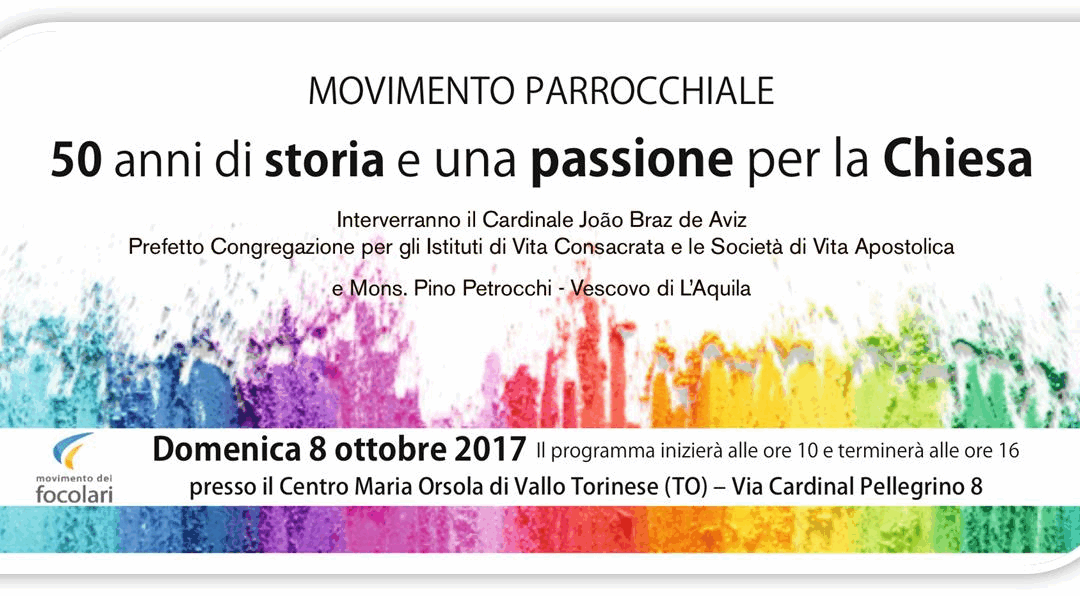
Sep 29, 2017 | Non categorizzato
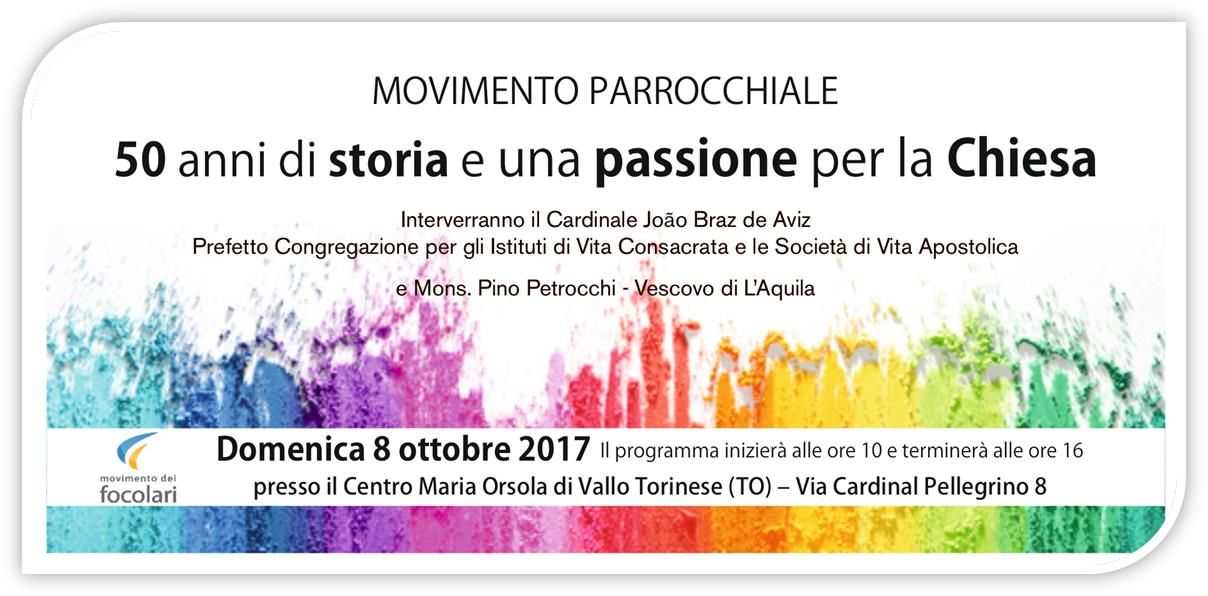 A day-long gathering at Maria Orsola Centre, titled “A Fifty year story of passion for the Church”. Alongside the presentations of a few experiences and artistic interludes, Cardinal Joao De Aviz, prefect of the Congregation for the Institutes of Consecrated Life, once bishop of Brasilia, will give a talk titled From the Peripheries of the World to the Vatican, and Archbishop Giuseppe Petrocchi, bishop of Aquila will talk about The Calling of the Parish Movement in the light of Juvenescit Ecclesia. Press Releases
A day-long gathering at Maria Orsola Centre, titled “A Fifty year story of passion for the Church”. Alongside the presentations of a few experiences and artistic interludes, Cardinal Joao De Aviz, prefect of the Congregation for the Institutes of Consecrated Life, once bishop of Brasilia, will give a talk titled From the Peripheries of the World to the Vatican, and Archbishop Giuseppe Petrocchi, bishop of Aquila will talk about The Calling of the Parish Movement in the light of Juvenescit Ecclesia. Press Releases
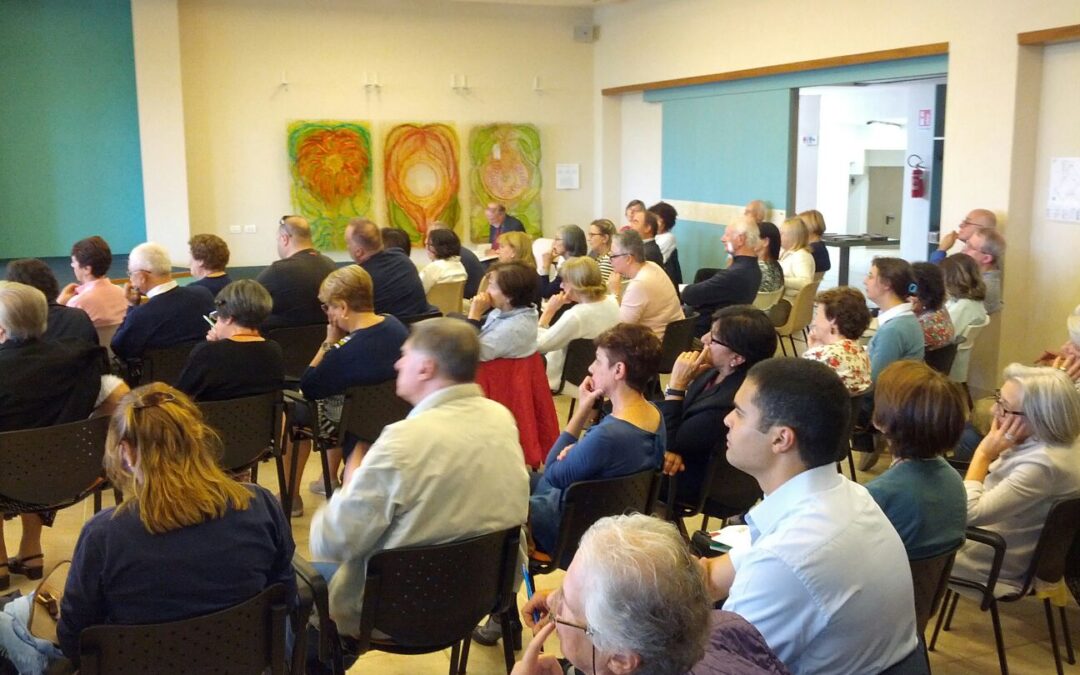
Sep 29, 2017 | Non categorizzato
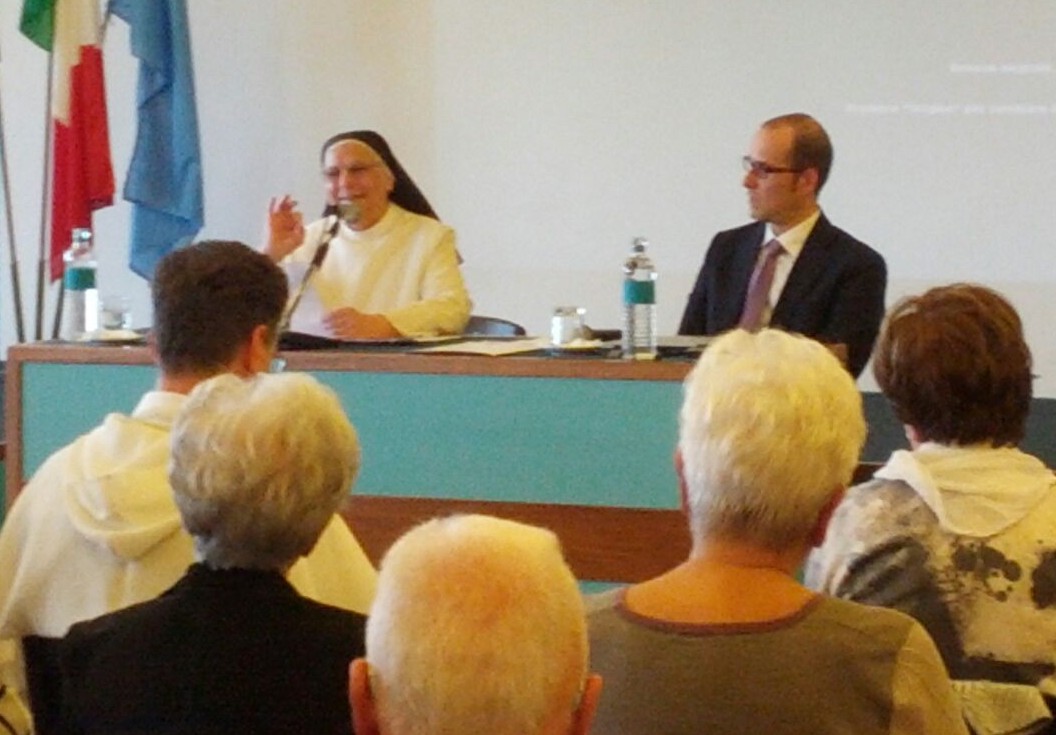 Saturday, 23 September 2017, in the Lecture Hall of the Sophia University Institute (SUI): from the introductory remarks of Mons. Buoncristiani, Archbishop of Siena, and of Maria Voce, President of the Focolare Movement and Vice-Chancellor of the Sophia University Institute, the harmony and the affinity between the two charismatic figures were apparent. These two figures have offered not only the ecclesial space but the whole civil society of their respective periods, an example of a fruitful fusion between spirituality and incarnation, continuously working at the challenges of common living. As Marco Luppi, moderator, opened the conference, he noted the continuity between the proposals of the “happy brigade” of the Catherinites and the spirituality of unity of the Focolare, recalling how various cornerstones of the Saint of Siena’s thought – the uniqueness of the choice of God, the generative value of God’s will, the importance of living the present moment – had been taken up and re-actualized by Chiara Lubich. He recalled that Igino Giordani, co-founder of the Focolare Movement, had initially embarked on the path traced by Caterina’s experience, fascinated by the demonstration of holiness within reach of everyone and the message of universality in her proposal of the Christian choice. The famous connection, “I – my brother – God,” was promoted by Giordani as a fruitful process of interrelation that completes the anthropological dimension with a spiritual openness to divine paternity in Christian meaning. The focal point of the conference was the two main discourses. Sister Elena Ascoli O.P., with her theme “The mysticism of the encounter,” retraced the intimate and concrete dimension of the “mysticism of fire” in Catherine. Christian hope, in the Saint of Siena, becomes a real vocational path in the search for the meaning of living at the service of society and of the Church. 381 letters and numerous collections of hymns and prayers make Catherine the saint of the encounter and of dialogue, animated by the awareness of those who find that the “inner fire,” the relationship with God, represents a patrimony that multiplies its value if it is given, if it builds a relational dynamic of concrete love to one’s neighbour, and if it contributes to the building of associated living in the search for the common good.
Saturday, 23 September 2017, in the Lecture Hall of the Sophia University Institute (SUI): from the introductory remarks of Mons. Buoncristiani, Archbishop of Siena, and of Maria Voce, President of the Focolare Movement and Vice-Chancellor of the Sophia University Institute, the harmony and the affinity between the two charismatic figures were apparent. These two figures have offered not only the ecclesial space but the whole civil society of their respective periods, an example of a fruitful fusion between spirituality and incarnation, continuously working at the challenges of common living. As Marco Luppi, moderator, opened the conference, he noted the continuity between the proposals of the “happy brigade” of the Catherinites and the spirituality of unity of the Focolare, recalling how various cornerstones of the Saint of Siena’s thought – the uniqueness of the choice of God, the generative value of God’s will, the importance of living the present moment – had been taken up and re-actualized by Chiara Lubich. He recalled that Igino Giordani, co-founder of the Focolare Movement, had initially embarked on the path traced by Caterina’s experience, fascinated by the demonstration of holiness within reach of everyone and the message of universality in her proposal of the Christian choice. The famous connection, “I – my brother – God,” was promoted by Giordani as a fruitful process of interrelation that completes the anthropological dimension with a spiritual openness to divine paternity in Christian meaning. The focal point of the conference was the two main discourses. Sister Elena Ascoli O.P., with her theme “The mysticism of the encounter,” retraced the intimate and concrete dimension of the “mysticism of fire” in Catherine. Christian hope, in the Saint of Siena, becomes a real vocational path in the search for the meaning of living at the service of society and of the Church. 381 letters and numerous collections of hymns and prayers make Catherine the saint of the encounter and of dialogue, animated by the awareness of those who find that the “inner fire,” the relationship with God, represents a patrimony that multiplies its value if it is given, if it builds a relational dynamic of concrete love to one’s neighbour, and if it contributes to the building of associated living in the search for the common good.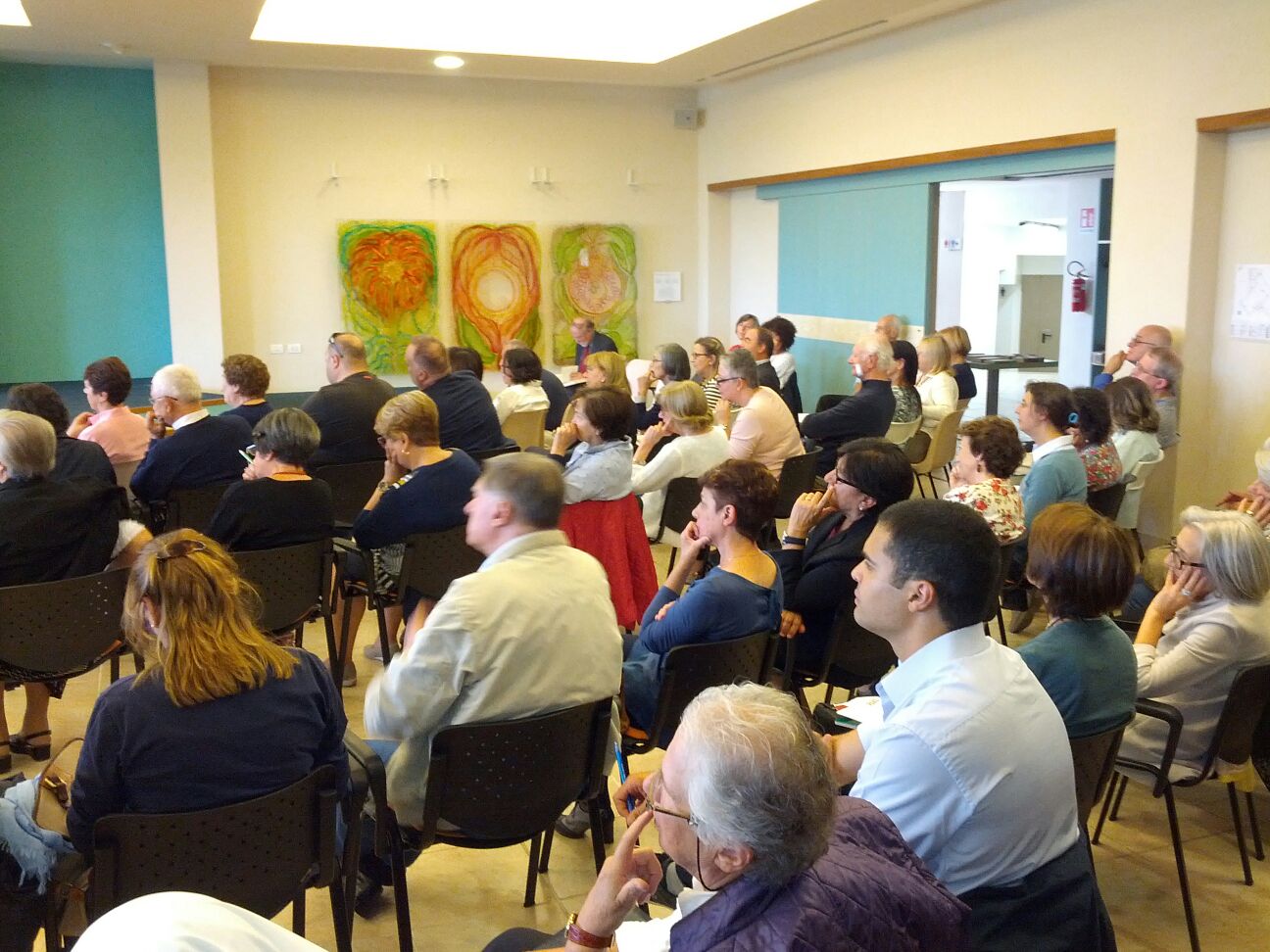 Piero Coda, president of Sophia, in his report titled “Real Love and the One True Love,” proposed an original reading of the generative encounter between the Franciscan roots of Chiara Lubich and the Catherinite period of Giordani, an encounter which reflects an experience of Christian renewal in the foundational period of the Focolare Movement, capable of giving life to a new reality in the Church and in society. The “pact” between charisms generates an originality that emphasises the dynamism of reciprocity as a sounding board for the dimension of unity and becomes the fulcrum of a proposal at the service of humanity. The “mysticism of fire” in Chiara Lubich, recovered by Coda in some passages of her writing, “The Resurrection of Rome,” reminds us how the impetus of inner, individual momentum flourishes in the community dynamics: “It is God who makes two people one, placing himself as the third in a relationship between them: Jesus among us.” In closing, the speech by Dr. Aldo Bernabei, representative of the Roman group of the Catherinites, traced the joint path between his association and the Focolare Movement in the multi-decade animation of the project “Together for Europe,” a demonstration that works steadily to build a European spirit that recognises the Christian soul among its foundation values, a path that joins more than 500 churches, movements, communities and associations.
Piero Coda, president of Sophia, in his report titled “Real Love and the One True Love,” proposed an original reading of the generative encounter between the Franciscan roots of Chiara Lubich and the Catherinite period of Giordani, an encounter which reflects an experience of Christian renewal in the foundational period of the Focolare Movement, capable of giving life to a new reality in the Church and in society. The “pact” between charisms generates an originality that emphasises the dynamism of reciprocity as a sounding board for the dimension of unity and becomes the fulcrum of a proposal at the service of humanity. The “mysticism of fire” in Chiara Lubich, recovered by Coda in some passages of her writing, “The Resurrection of Rome,” reminds us how the impetus of inner, individual momentum flourishes in the community dynamics: “It is God who makes two people one, placing himself as the third in a relationship between them: Jesus among us.” In closing, the speech by Dr. Aldo Bernabei, representative of the Roman group of the Catherinites, traced the joint path between his association and the Focolare Movement in the multi-decade animation of the project “Together for Europe,” a demonstration that works steadily to build a European spirit that recognises the Christian soul among its foundation values, a path that joins more than 500 churches, movements, communities and associations.
Sep 28, 2017 | Non categorizzato, Word of
While St. Paul was in prison on account of his preaching, he wrote to the Christian community in the city of Philippi. He had been the very first to preach the Gospel there, and many people had come to believe and had committed themselves generously to this new life. Even after Paul had left them, they continued to bear witness to Christian love. Knowing this about them made him very happy, which is why his letter is full of affection for the Philippians. Paul encouraged them, therefore, to go ahead and to grow both as individuals and as a community. For this reason he reminded them of their model Jesus, who they should learn from. “Let the same mind be in you that was in Christ Jesus.” What is this “mind”? How can we know the deepest desires Jesus had so as to imitate him? Paul understood how: Jesus Christ, the Son of God, had emptied himself and had come down among us. He became man and was completely at the service of the Father, so that we could become children of God. Paul told the Galatians about this, saying, “And because you are children, God has sent the Spirit of his Son into our hearts, crying, ‘Abba! Father!’” (Gal 4:6). And in fact, John had already written about it in his Gospel: “But to all who received him, who believed in his name, he gave power to become children of God” (Jn 1:12). Jesus had fulfilled his mission through the way he lived his whole life. He continually humbled himself so as to reach those who were the smallest, weakest or most insecure: lepers, widows, strangers or sinners. He raised them up; making them feel loved and saved at last. “Let the same mind be in you that was in Christ Jesus.” In order to recognize and cultivate the mind of Jesus in us, let’s first be aware of his love and the power of his forgiveness. Let’s look to him, making his way of acting our own. It urges us to open our hearts, our minds and our arms to welcome each person just as they are. Let’s avoid making any judgements about others, but allow ourselves instead to be enriched by all that is positive in those we meet, even when it may be hidden in a pile of wretchedness and errors so that it seems to us a “waste of time” looking for it. The strongest desire in the mind of Jesus, which we can make our own, is love freely given, the willingness to be at the service of others with our talents, whether great or small, and to courageously and positively build up good relationships wherever we are. This love knows how to face difficulties, misunderstandings and differences with a gentle spirit, determined to find the ways of dialogue and mutual agreement. “Let the same mind be in you that was in Christ Jesus.” Chiara Lubich let the Gospel guide her entire life, and she experienced its power. In 1982, she wrote, “Imitating Jesus means understanding that we Christians only make sense if we live for others, if we think of our existence as a service for our brothers and sister, if we organize our lives on this basis.” “Then we fulfill what Jesus has most at heart. We will have fully grasped the Gospel. And we will be truly blessed.” Letizia Magri
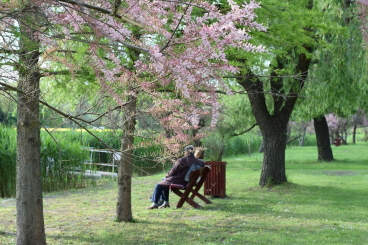
Sep 28, 2017 | Non categorizzato
 When my husband John was diagnosed with Alzheimer’s my life changed dramatically. I felt really frightened because there were times when he was hallucinating all night. I had no medication to give him, I wasn’t managing and there was no-one to turn to. John’s care manager was on maternity leave, the psychiatrist had discharged him, the GP was on holiday. After a lot of phone calls John’s new care manager placed him into respite care for a week. I wasn’t coping anymore. I didn’t feel up to the task of being his main carer and I was angry that things had deteriorated to that point. There was so much to do and finances to sort out. I was going downhill and my health was deteriorating. In the New Year I went to the HELP shop in the town and was told that a Carer Support Worker would contact me. It was about four weeks later that she came to see me. I told her everything and she understood. She was very sympathetic, helpful and supportive. A few weeks after this I went to a four-day meeting with people from the Focolare and my husband went into respite care. One evening I was with a group of about ten people and someone said, ‘What do you do Pam?’ I didn’t want to tell her anything so I ignored her question because I didn’t want everyone to know how I struggled and how weak and helpless I felt. But then I thought how rude I was because I would be very upset if someone ignored me when I asked them a question. I started telling the group how it was and when it came to the bit where I went to the HELP shop, I started crying. There was such a change in the dynamics even though I didn’t want attention at a time like this. Everyone was warm, caring and loving and tried to comfort me. They understood my misery and they loved me, they had compassion for me. I thought I would feel ashamed after my outburst but I told myself that these things happen and the great thing is I felt the burden had lifted and I had been healed. It was a grace that God had given me to help me with my difficulties. My situation hadn’t changed but I had. Looking after my husband had become the most important thing in my life but it had become a burden. Didn’t Jesus say, ‘My yoke is easy and my burden is light’? I needed to be reminded that God loved me immensely. Once I put God in the first place in my heart, mind and soul then everything was put into perspective. It was no longer a burden and I became confident looking after him. Some people advise that in situations like this we should pray more. This is true but what helped me in that moment was the presence of Jesus in that group who enabled me to experience the love of God. Now I know that I can count on everyone’s love as my experience with John continued to unfold. Source: New City Magazine (UK), August-September 2017 issue
When my husband John was diagnosed with Alzheimer’s my life changed dramatically. I felt really frightened because there were times when he was hallucinating all night. I had no medication to give him, I wasn’t managing and there was no-one to turn to. John’s care manager was on maternity leave, the psychiatrist had discharged him, the GP was on holiday. After a lot of phone calls John’s new care manager placed him into respite care for a week. I wasn’t coping anymore. I didn’t feel up to the task of being his main carer and I was angry that things had deteriorated to that point. There was so much to do and finances to sort out. I was going downhill and my health was deteriorating. In the New Year I went to the HELP shop in the town and was told that a Carer Support Worker would contact me. It was about four weeks later that she came to see me. I told her everything and she understood. She was very sympathetic, helpful and supportive. A few weeks after this I went to a four-day meeting with people from the Focolare and my husband went into respite care. One evening I was with a group of about ten people and someone said, ‘What do you do Pam?’ I didn’t want to tell her anything so I ignored her question because I didn’t want everyone to know how I struggled and how weak and helpless I felt. But then I thought how rude I was because I would be very upset if someone ignored me when I asked them a question. I started telling the group how it was and when it came to the bit where I went to the HELP shop, I started crying. There was such a change in the dynamics even though I didn’t want attention at a time like this. Everyone was warm, caring and loving and tried to comfort me. They understood my misery and they loved me, they had compassion for me. I thought I would feel ashamed after my outburst but I told myself that these things happen and the great thing is I felt the burden had lifted and I had been healed. It was a grace that God had given me to help me with my difficulties. My situation hadn’t changed but I had. Looking after my husband had become the most important thing in my life but it had become a burden. Didn’t Jesus say, ‘My yoke is easy and my burden is light’? I needed to be reminded that God loved me immensely. Once I put God in the first place in my heart, mind and soul then everything was put into perspective. It was no longer a burden and I became confident looking after him. Some people advise that in situations like this we should pray more. This is true but what helped me in that moment was the presence of Jesus in that group who enabled me to experience the love of God. Now I know that I can count on everyone’s love as my experience with John continued to unfold. Source: New City Magazine (UK), August-September 2017 issue
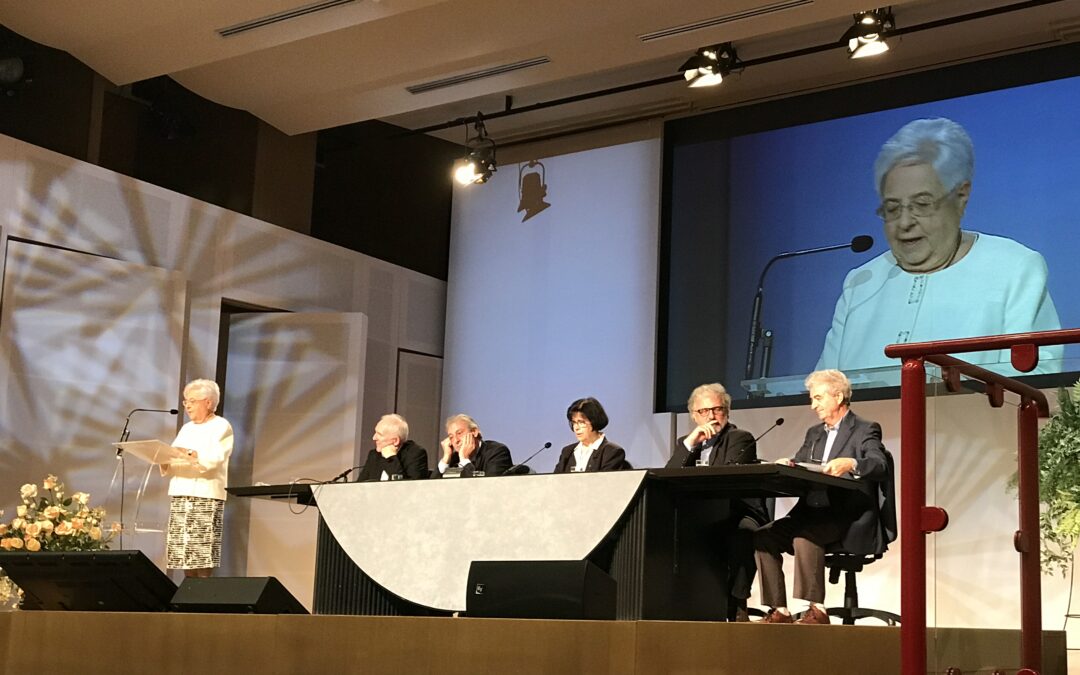
Sep 27, 2017 | Non categorizzato
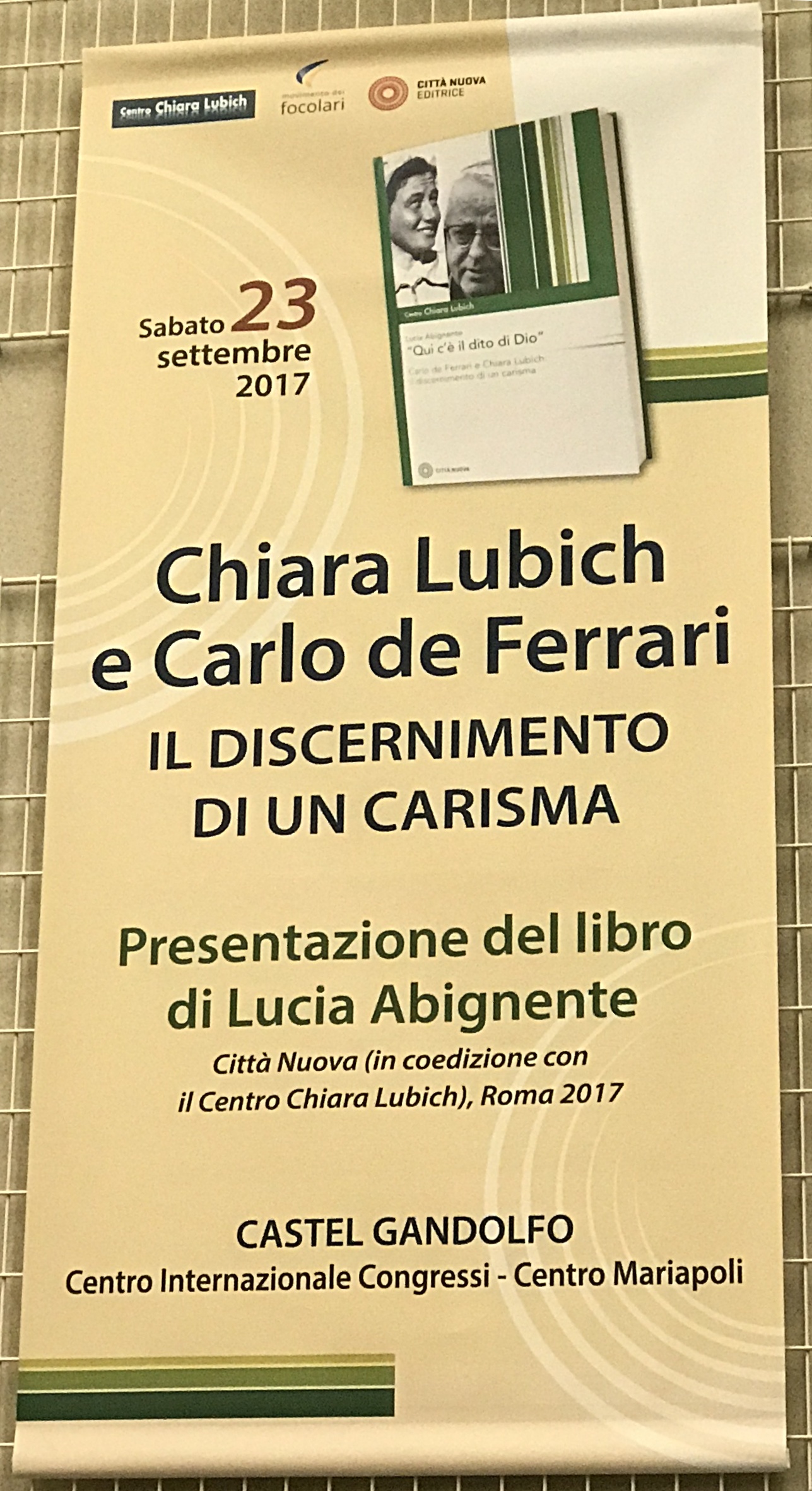 I am delighted to have the opportunity to greet all those attending the launch of the book:Qui c’è il dito di Dio” (“Here is the hand of God”). It is the second volume in the series “Studies and Documents” published by the Chiara Lubich Centre. The title of the book recalls words well known to the members of the Focolare Movement. They were spoken by the Archbishop of Trent, Most Rev. Carlo de Ferrari, who recognised that the new life coming about in his diocese, which was both edifying and opposed at the same time, did not come from human beings but “from the hand of God”. Clear insight allowed this pastor not to be influenced by judgements and considerations that were purely “human” but to enter more deeply into the surprising action of God made manifest through the life of a group of young women. All this took place 20 years before the Second Vatican Council, and history proved him right. As members of the Focolare Movement, we feel special gratitude to Archbishop De Ferrari for his wise discernment, which allowed the little fire that was burning to grow and later spread throughout the world. Looking back after 70 years, this work by Lucia Abignente helps us understand the extent to which the Archbishop’s perception was deeply rooted in the life of the Word of God and his action imbued with humility, perseverance, readiness to pay the price in person, and with prophecy. In reconstructing the events, which in this volume are derived from a multitude of sources, we can discover a golden thread. Both favourable and adverse circumstances allowed Chiara Lubich and “her” bishop to forge a relationship of communion that was living, and real. This relationship gave meaning to the alternating times of “hosanna” and “crucifixion” – to use words we find in their letters – and enabled Chiara to live out of love for God and the Church. These pages offer us an authentic and engaging witness to this love.
I am delighted to have the opportunity to greet all those attending the launch of the book:Qui c’è il dito di Dio” (“Here is the hand of God”). It is the second volume in the series “Studies and Documents” published by the Chiara Lubich Centre. The title of the book recalls words well known to the members of the Focolare Movement. They were spoken by the Archbishop of Trent, Most Rev. Carlo de Ferrari, who recognised that the new life coming about in his diocese, which was both edifying and opposed at the same time, did not come from human beings but “from the hand of God”. Clear insight allowed this pastor not to be influenced by judgements and considerations that were purely “human” but to enter more deeply into the surprising action of God made manifest through the life of a group of young women. All this took place 20 years before the Second Vatican Council, and history proved him right. As members of the Focolare Movement, we feel special gratitude to Archbishop De Ferrari for his wise discernment, which allowed the little fire that was burning to grow and later spread throughout the world. Looking back after 70 years, this work by Lucia Abignente helps us understand the extent to which the Archbishop’s perception was deeply rooted in the life of the Word of God and his action imbued with humility, perseverance, readiness to pay the price in person, and with prophecy. In reconstructing the events, which in this volume are derived from a multitude of sources, we can discover a golden thread. Both favourable and adverse circumstances allowed Chiara Lubich and “her” bishop to forge a relationship of communion that was living, and real. This relationship gave meaning to the alternating times of “hosanna” and “crucifixion” – to use words we find in their letters – and enabled Chiara to live out of love for God and the Church. These pages offer us an authentic and engaging witness to this love. 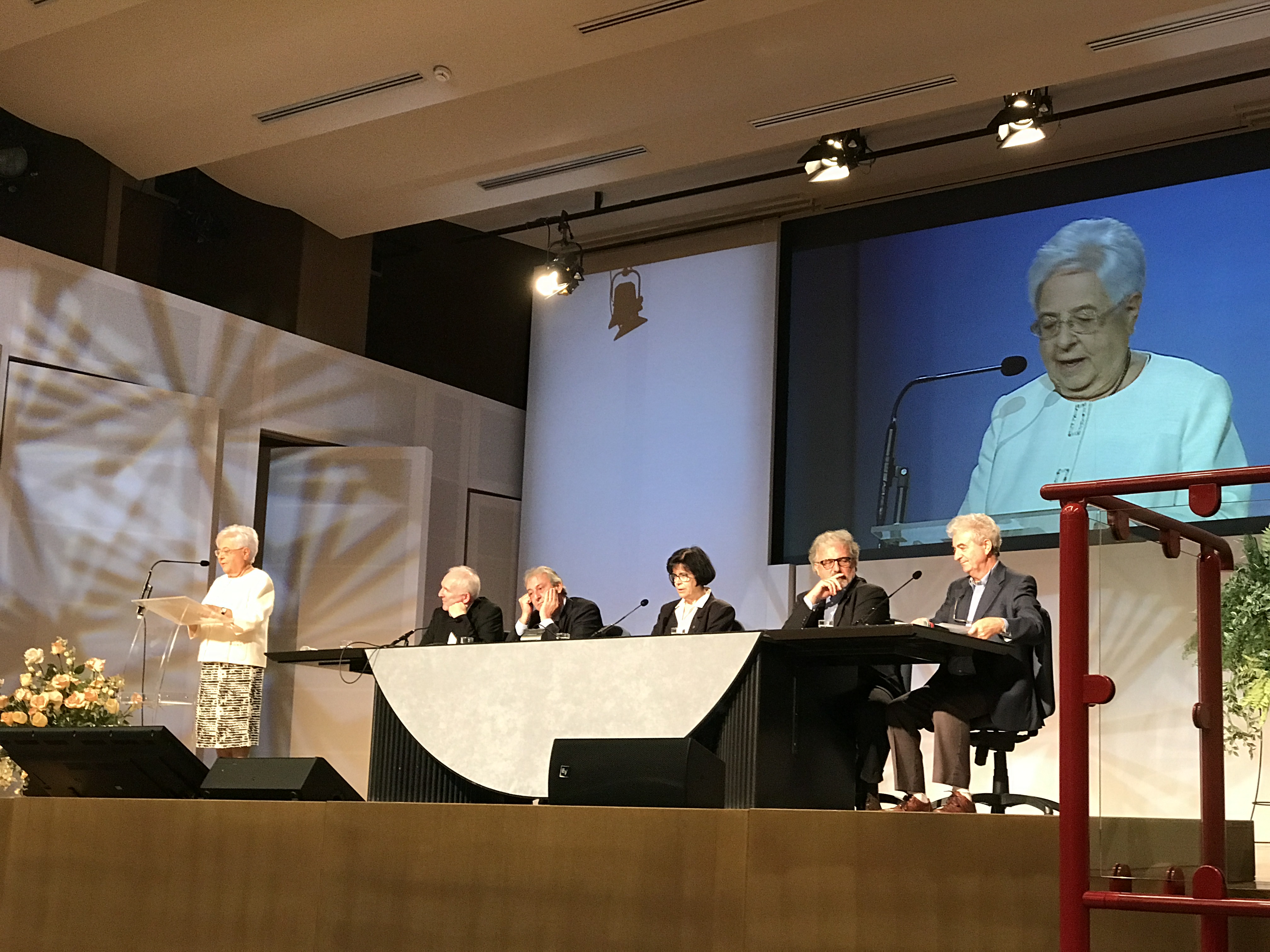 Today in addition, this witness represents an invitation to us to be newly aware of the gift of the charism we have received and of the potential of a foundation that, as is recognised today, opened up a pathway followed by other ecclesial realities. I am glad to note that the publication of this book occurs in the year the Focolare Movement is dedicating to deepening our understanding of Mary. Mary who represents one of the key points of the spirituality of unity. It was during the period of light lived during the summer of 1949 (in which the Holy Spirit enabled Chiara to contemplate the greatness of the Mother of God and to admire her in her unique beauty, all clothed with the Word of God) that God’s plan for the new Movement itself became clear; it was the Work of Mary. The “marian” vocation and hallmark of this Work are evident in these pages and given unconfutable proof – I would say – thanks to Chiara’s perennial renewal of her yes to God’s plans. Chiara said yes to her calling, yes to proclaiming the Ideal that imbued her whole life, yes to her readiness to offer and sacrifice the fruit born from it, during the years when the Movement was studied by the Church of Rome. In Mary’s “let it be” at the Annunciation, and in her yes in desolation at the foot of the cross, she is the model, the mould in which Chiara lived her divine adventure. In our time, there is “a new and more explicit awareness of the Marian principle in the Church, as a sacrament of unity”. I trust that the witness and the message conveyed by the book launched today, may be a gift for the whole people of God and help the Work of Mary to express the vocation that the Church confirmed in the Statutes: to be “as far as possible – a presence of Mary on earth and “almost” a continuation of her”.
Today in addition, this witness represents an invitation to us to be newly aware of the gift of the charism we have received and of the potential of a foundation that, as is recognised today, opened up a pathway followed by other ecclesial realities. I am glad to note that the publication of this book occurs in the year the Focolare Movement is dedicating to deepening our understanding of Mary. Mary who represents one of the key points of the spirituality of unity. It was during the period of light lived during the summer of 1949 (in which the Holy Spirit enabled Chiara to contemplate the greatness of the Mother of God and to admire her in her unique beauty, all clothed with the Word of God) that God’s plan for the new Movement itself became clear; it was the Work of Mary. The “marian” vocation and hallmark of this Work are evident in these pages and given unconfutable proof – I would say – thanks to Chiara’s perennial renewal of her yes to God’s plans. Chiara said yes to her calling, yes to proclaiming the Ideal that imbued her whole life, yes to her readiness to offer and sacrifice the fruit born from it, during the years when the Movement was studied by the Church of Rome. In Mary’s “let it be” at the Annunciation, and in her yes in desolation at the foot of the cross, she is the model, the mould in which Chiara lived her divine adventure. In our time, there is “a new and more explicit awareness of the Marian principle in the Church, as a sacrament of unity”. I trust that the witness and the message conveyed by the book launched today, may be a gift for the whole people of God and help the Work of Mary to express the vocation that the Church confirmed in the Statutes: to be “as far as possible – a presence of Mary on earth and “almost” a continuation of her”.
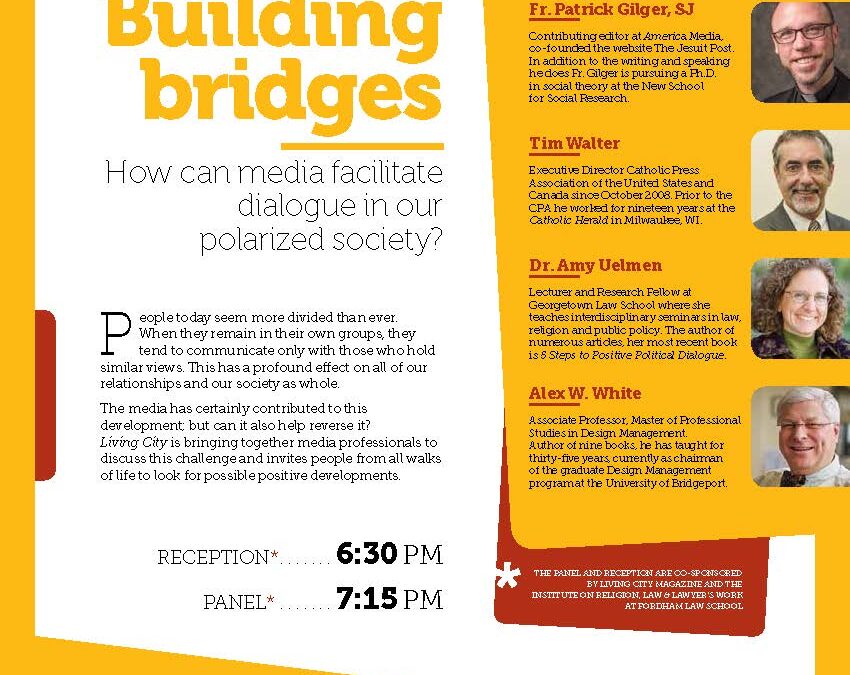
Sep 27, 2017 | Focolare Worldwide
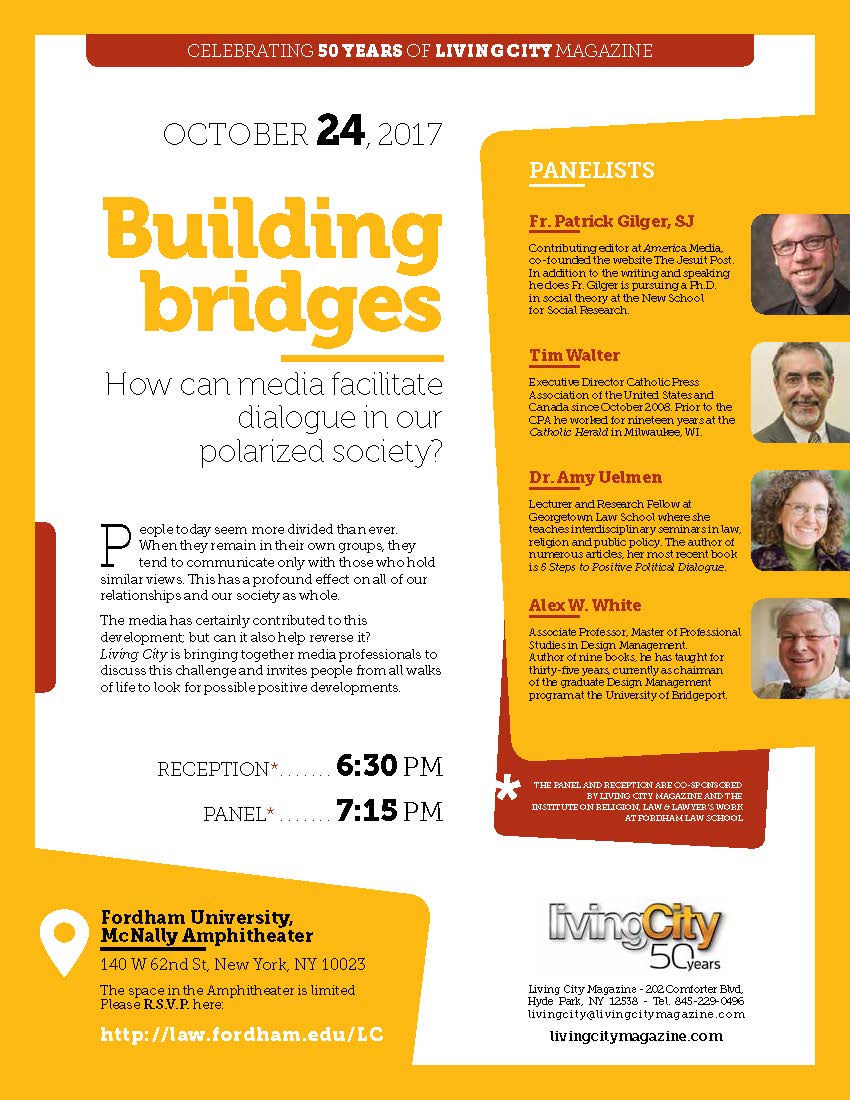 To celebrate its 50 years of activity, the English language magazine, founded in 1967 in New York as one of the 32 editions of the Focolare Movement, held a conference on 24 September entitled, “Building bridges: how can media facilitate dialogue in our polarised society?” at Fordham University in New York, with the contribution of professors and journalists. Living City is read and appreciated not only in the United States, but also in Canada, Australia, Ireland, Malta, New Zealand and many other English-speaking countries. Its readers are people of all ages and religious convictions. Recently it was awarded 5 prizes by the Catholic Press Association of North America.
To celebrate its 50 years of activity, the English language magazine, founded in 1967 in New York as one of the 32 editions of the Focolare Movement, held a conference on 24 September entitled, “Building bridges: how can media facilitate dialogue in our polarised society?” at Fordham University in New York, with the contribution of professors and journalists. Living City is read and appreciated not only in the United States, but also in Canada, Australia, Ireland, Malta, New Zealand and many other English-speaking countries. Its readers are people of all ages and religious convictions. Recently it was awarded 5 prizes by the Catholic Press Association of North America.
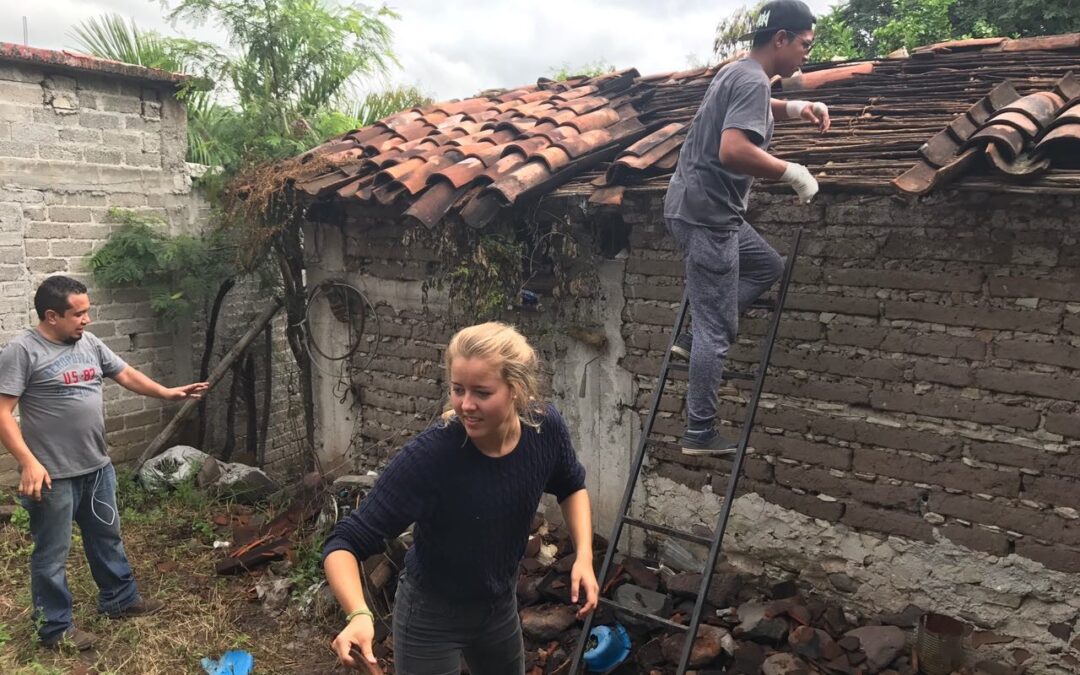
Sep 27, 2017 | Focolare Worldwide
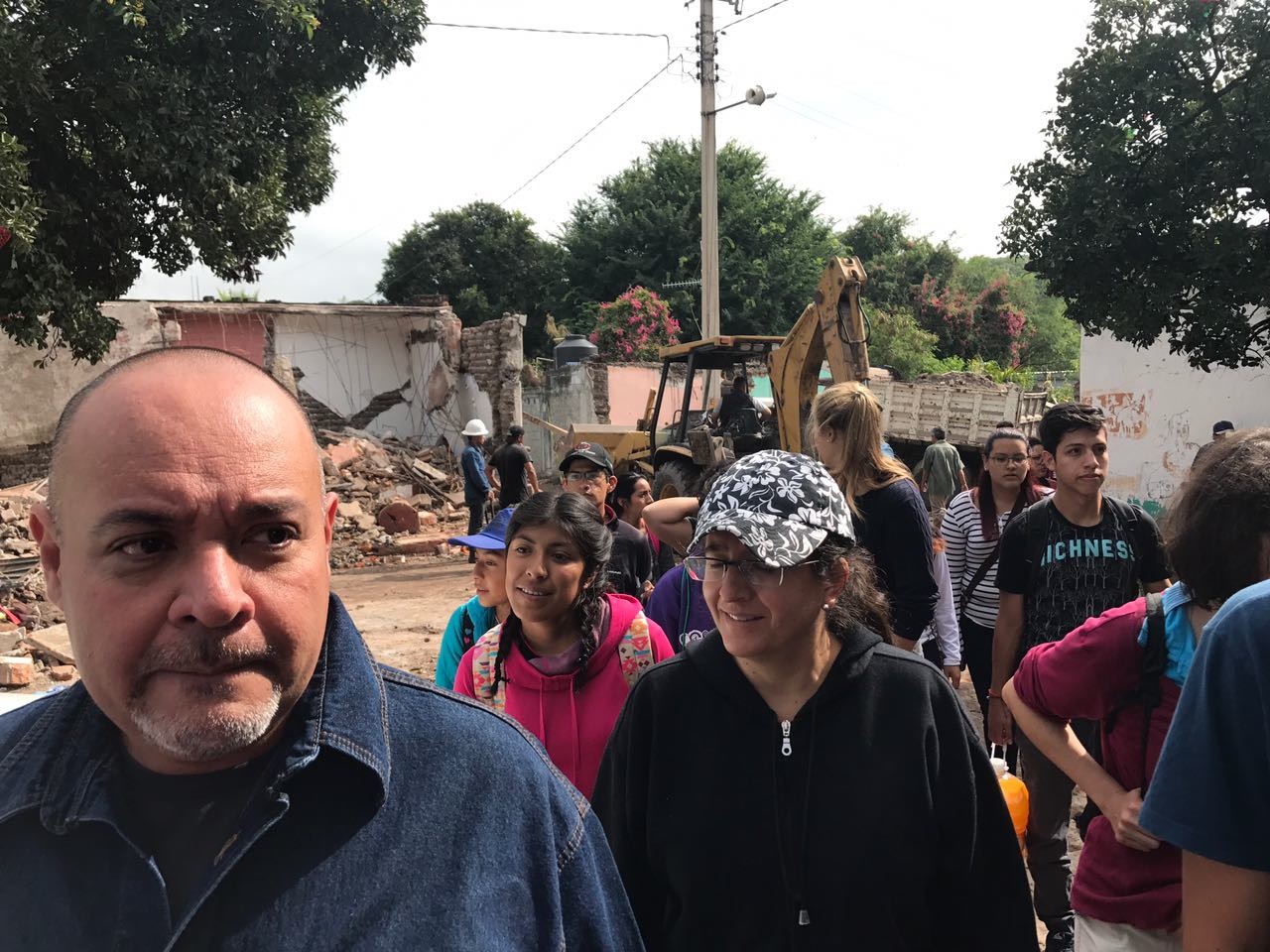 “Many of us stepped forward right away to help, along with the overwhelming majority of Mexican people, even though we were completely grasped by fear, as we tried to gather the requests for help that were coming in from every corner Mexico City and from the regions of the outback that were also hard hit. The strong sense of solidarity was everywhere. Hotels opened their doors to those who had lost homes. Doctors and psychologists offered services for free; families cooked and shared soup for everyone. Hundreds of volunteers worked hard without rest. They were all ordinary people who a few hours before were workers, sellers, housewives and employees. Once again in the midst of an emergency Mexicans showed their true colours, never losing hope and spreading joy and enthusiasm even amidst the darkest moments. Streams of people helped out in simple ways, giving the appearance of a living giant rising from the dust.
“Many of us stepped forward right away to help, along with the overwhelming majority of Mexican people, even though we were completely grasped by fear, as we tried to gather the requests for help that were coming in from every corner Mexico City and from the regions of the outback that were also hard hit. The strong sense of solidarity was everywhere. Hotels opened their doors to those who had lost homes. Doctors and psychologists offered services for free; families cooked and shared soup for everyone. Hundreds of volunteers worked hard without rest. They were all ordinary people who a few hours before were workers, sellers, housewives and employees. Once again in the midst of an emergency Mexicans showed their true colours, never losing hope and spreading joy and enthusiasm even amidst the darkest moments. Streams of people helped out in simple ways, giving the appearance of a living giant rising from the dust. 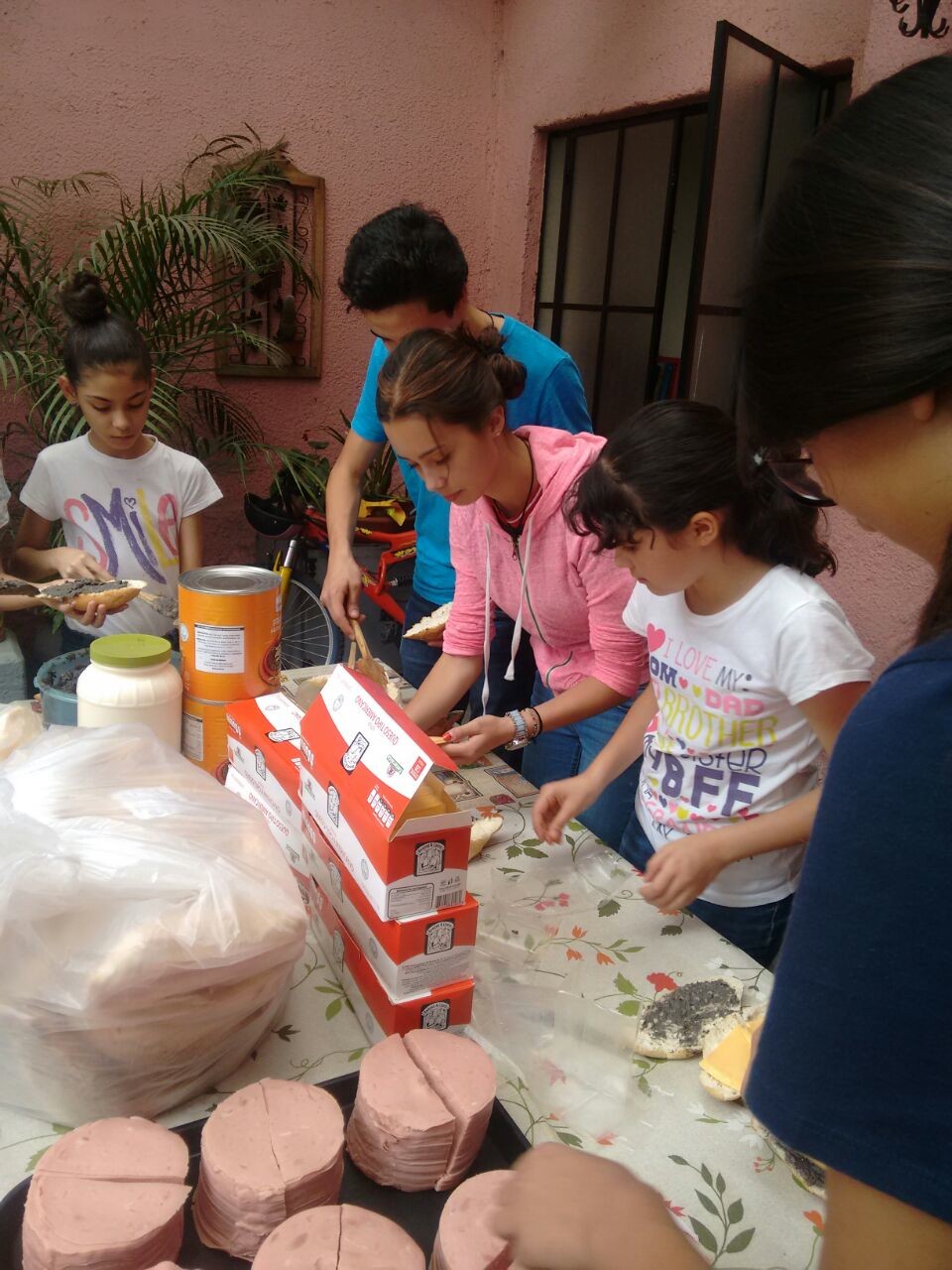 The disaster has also hit cities, such Puebla, Mexico City, Morelos, Chiapas and Oaxaca. Several members of our community offered their help, especially in Puebla and Morelos and other towns where assistance arrived more slowly. One family from Mexico City set up a collection centre in their own home, and then moved to Morelos to distribute foodstuffs and basic necessities to the neediest among the people. The young people from Mariapolis El Diamante went to Contla, located in the State of Pueblo, which was very hard hit by the earthquake. They removed rubble, loaded and delivered foodstuffs, and consoled those who had lost everything. To reach this particular community, which is located in a place that is hard to reach, they had to cross a river and pass over a deep ravine on a rope bridge they constructed on the spot. Meanwhile, the Economy of Communion group from Puebla organized an assistance project at Sant’Antonio Alponocan in another community of the region. Finally, with the goal of coordinating the efforts, we created an emergency committee in Mexico City that launched a census of the damage and of the needs.
The disaster has also hit cities, such Puebla, Mexico City, Morelos, Chiapas and Oaxaca. Several members of our community offered their help, especially in Puebla and Morelos and other towns where assistance arrived more slowly. One family from Mexico City set up a collection centre in their own home, and then moved to Morelos to distribute foodstuffs and basic necessities to the neediest among the people. The young people from Mariapolis El Diamante went to Contla, located in the State of Pueblo, which was very hard hit by the earthquake. They removed rubble, loaded and delivered foodstuffs, and consoled those who had lost everything. To reach this particular community, which is located in a place that is hard to reach, they had to cross a river and pass over a deep ravine on a rope bridge they constructed on the spot. Meanwhile, the Economy of Communion group from Puebla organized an assistance project at Sant’Antonio Alponocan in another community of the region. Finally, with the goal of coordinating the efforts, we created an emergency committee in Mexico City that launched a census of the damage and of the needs. 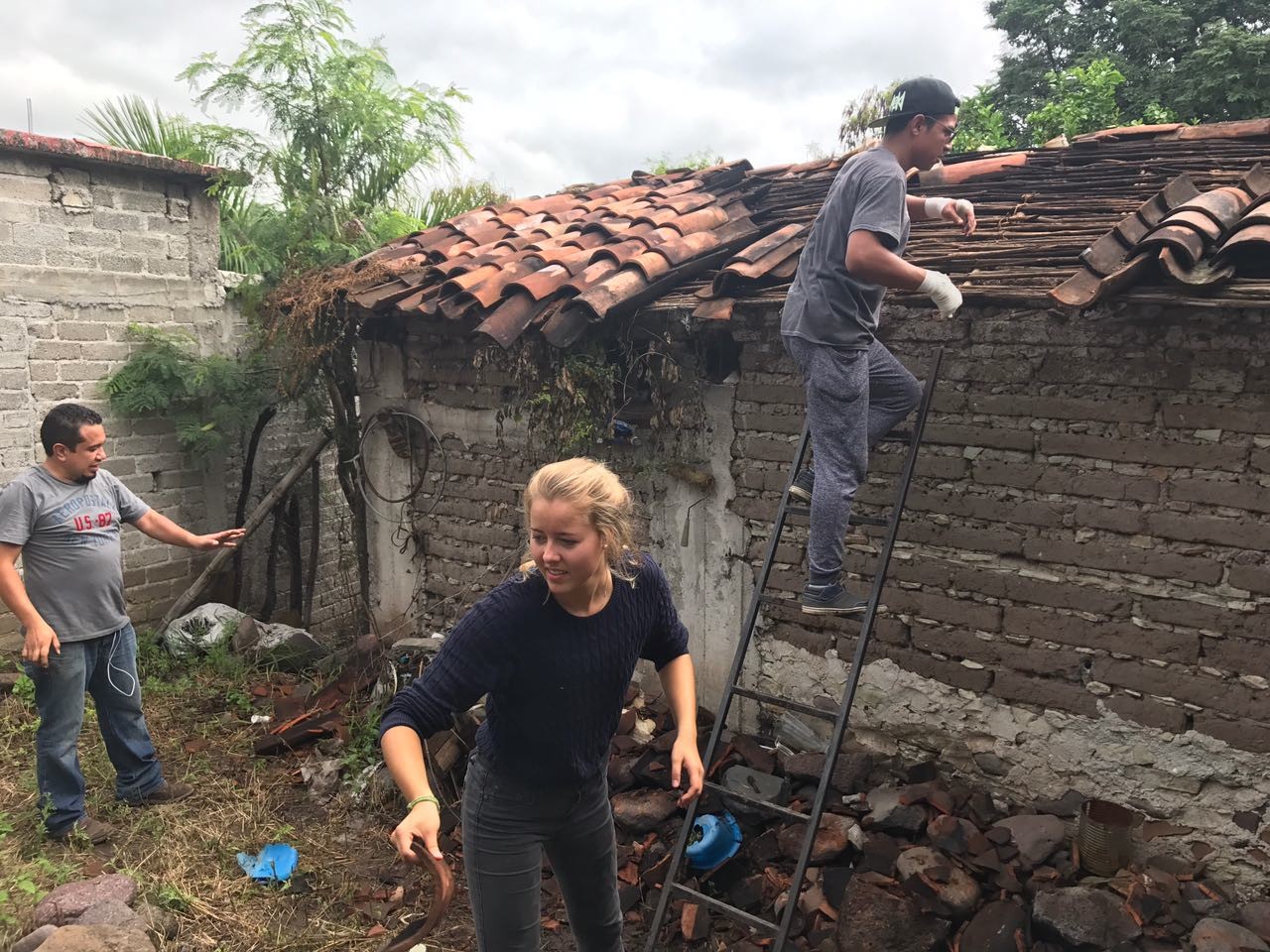 In those hard moments we always kept in mind the words that Our Lady of Guadalupe spoke to San Juan Diego on Mt Tepeyac, asking him to remember them always: ‘Put this in your heart, my small son: Don’t be afraid. Am I not here who am your Mother? Are you not in my shadow, under my protection? Am I not the source of your joy? Are you not in the folds of my mantle, in my embrace? Is there anything else you could need?’” All of us in the Focolare have strengthened our commitment to work for love and brotherhood, for both the physical and spiritual reconstruction of our land.” Mexico City, September 25, 2017
In those hard moments we always kept in mind the words that Our Lady of Guadalupe spoke to San Juan Diego on Mt Tepeyac, asking him to remember them always: ‘Put this in your heart, my small son: Don’t be afraid. Am I not here who am your Mother? Are you not in my shadow, under my protection? Am I not the source of your joy? Are you not in the folds of my mantle, in my embrace? Is there anything else you could need?’” All of us in the Focolare have strengthened our commitment to work for love and brotherhood, for both the physical and spiritual reconstruction of our land.” Mexico City, September 25, 2017
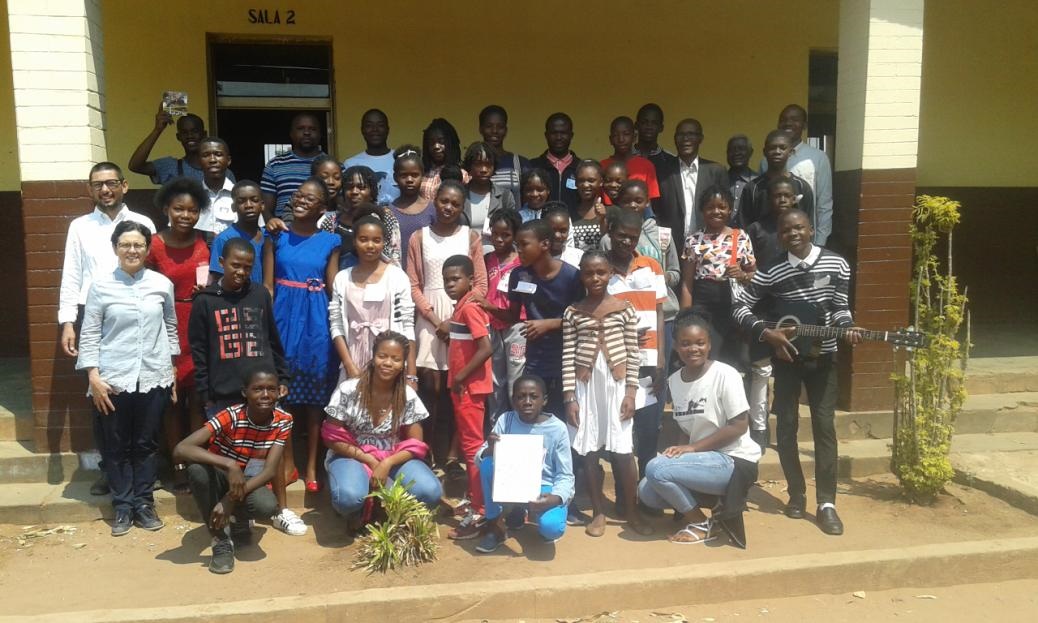
Sep 26, 2017 | Focolare Worldwide
 Small groups comprised of young people and adults from different callings in the Focolare Movement spend brief periods in temporary communities known in Italian as “focolares” or “hearths,” far from their homes, visiting far-away and sometimes isolated communities around the globe. This year, there were forty such hearths from Sri Lanka to the Azores, from Vietnam to Santo Domingo, from Brazil to Tanzania. They were self-financed with lots of personal sacrifice. Each community has a different story, but they all share one common denominator: the presence of a temporary hearth that helps bring new life. Idalina and Toni are a family from Portugal. They and seven other people, including some young people, left in August for Saurimo, Angola. “We stayed at the Bishop’s house, and shared our meals and many other moments of the day with him.” During their two-week stay they formed many friendships with the children and adults of the local community: “At the end of the fourteen days, they asked us when we would come back again.” Chiara Lubich’s art of loving turned out to be a great discovery for them.”
Small groups comprised of young people and adults from different callings in the Focolare Movement spend brief periods in temporary communities known in Italian as “focolares” or “hearths,” far from their homes, visiting far-away and sometimes isolated communities around the globe. This year, there were forty such hearths from Sri Lanka to the Azores, from Vietnam to Santo Domingo, from Brazil to Tanzania. They were self-financed with lots of personal sacrifice. Each community has a different story, but they all share one common denominator: the presence of a temporary hearth that helps bring new life. Idalina and Toni are a family from Portugal. They and seven other people, including some young people, left in August for Saurimo, Angola. “We stayed at the Bishop’s house, and shared our meals and many other moments of the day with him.” During their two-week stay they formed many friendships with the children and adults of the local community: “At the end of the fourteen days, they asked us when we would come back again.” Chiara Lubich’s art of loving turned out to be a great discovery for them.” 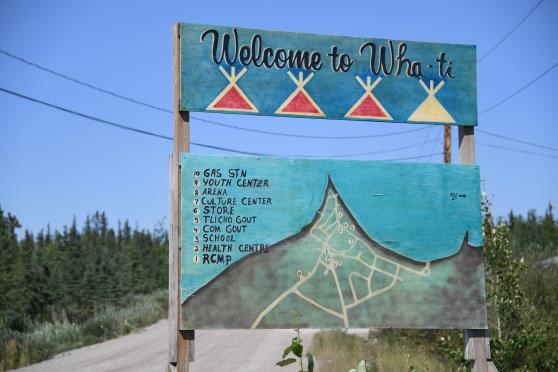 At Yellowknife, the main city of the region and Seat of the Diocese, we were welcomed by the Emeritus Bishop who has spent his life among the Native American populations of the north. Coming back from a month among Native Americans in Canada’s North West Territories, Father Harry Clark, a priest from British Columbia, Marilena and Mike Murray, a husband and wife from the state of Maryland, in USA, Maria Santana from Montreal and Ljubica Dekic from Toronto write: “From there, we took off for Wha Ti, one of four villages of the Tlicho Tribe, 40 minutes by plane. We were guests of the parish rectory. The villagers were simple folk and very reserved. One of the problems in the tribe is the communication gap between the elderly, who are rooted in Native American culture and the younger generations, who no longer use the tribe’s native language. We presented the spirituality of communion, and then focused our attention on the activities of the small Catholic community for children and adults. We also met some Lutherans and a couple of Mennonite missionaries, a very nice collaboration was begun. We went by canoe along the river and took part in some tribal events with the annual assembly of villages that happened to be taking place during that time.”
At Yellowknife, the main city of the region and Seat of the Diocese, we were welcomed by the Emeritus Bishop who has spent his life among the Native American populations of the north. Coming back from a month among Native Americans in Canada’s North West Territories, Father Harry Clark, a priest from British Columbia, Marilena and Mike Murray, a husband and wife from the state of Maryland, in USA, Maria Santana from Montreal and Ljubica Dekic from Toronto write: “From there, we took off for Wha Ti, one of four villages of the Tlicho Tribe, 40 minutes by plane. We were guests of the parish rectory. The villagers were simple folk and very reserved. One of the problems in the tribe is the communication gap between the elderly, who are rooted in Native American culture and the younger generations, who no longer use the tribe’s native language. We presented the spirituality of communion, and then focused our attention on the activities of the small Catholic community for children and adults. We also met some Lutherans and a couple of Mennonite missionaries, a very nice collaboration was begun. We went by canoe along the river and took part in some tribal events with the annual assembly of villages that happened to be taking place during that time.”  In Bambio, 300 kilometres from Bangui, in the Central African Republic, one temporary “focolare” met a group of Pygmies that has been living the ideal of unity for twenty years. Fidelia writes: “The Pygmies possess so many beautiful values: loyalty, monogamy, purity a sense of the sacred. They told us their experiences in living the art of loving and the Word of Life. Each village meets once a week, from six o’clock in the morning until eight o’clock, before the day begins. The told us: “The focolare taught us to live, to love, to make ourselves one with others. There is no longer ‘you’ and ‘us’ – we’re all ‘us’. The Pygmies don’t mix with others, because they look down on us. But the focolare looked at us as equals and came to live with us, to share our sorrows and joys. They didn’t ask us to become Catholics, but they taught us love.” Someone else said: “We Pygmies have many traditional practices. But ever since we’ve been we’ve been part of the focolare, we’ve dropped a few of them. For example, when my son got sick, I didn’t turn to the witch doctor has I had done before, but took him to hospital. As soon as the focolarinies heard, they came to help me until he was well again.” The gratitude and enrichment was mutual, as the awareness that we’re one family is growing.
In Bambio, 300 kilometres from Bangui, in the Central African Republic, one temporary “focolare” met a group of Pygmies that has been living the ideal of unity for twenty years. Fidelia writes: “The Pygmies possess so many beautiful values: loyalty, monogamy, purity a sense of the sacred. They told us their experiences in living the art of loving and the Word of Life. Each village meets once a week, from six o’clock in the morning until eight o’clock, before the day begins. The told us: “The focolare taught us to live, to love, to make ourselves one with others. There is no longer ‘you’ and ‘us’ – we’re all ‘us’. The Pygmies don’t mix with others, because they look down on us. But the focolare looked at us as equals and came to live with us, to share our sorrows and joys. They didn’t ask us to become Catholics, but they taught us love.” Someone else said: “We Pygmies have many traditional practices. But ever since we’ve been we’ve been part of the focolare, we’ve dropped a few of them. For example, when my son got sick, I didn’t turn to the witch doctor has I had done before, but took him to hospital. As soon as the focolarinies heard, they came to help me until he was well again.” The gratitude and enrichment was mutual, as the awareness that we’re one family is growing.
Sep 25, 2017 | Non categorizzato
https://vimeo.com/233854454

 As processes of isolation increase around the world, Sophia University Institute opens a courageous new Centre for Global Studies which will “provide tools for understanding, managing and changing processes of global relations,” explained Pasquale Ferrara, Italian Ambassador to Algeria and president of the new Centre. “The new centre is the result of ten years of academic experience, and its goal is the training of a new generation of leaders that is capable of facing the complexity, and motivated to work for dialogue and peace.” “No country, no group can allow itself to become isolated from the other,” said Paolo Frizzi, professor of Religions and Global Processes, and Director of the Centre. “We are in the middle of an uncertain passage, which is transient and happening on many levels.
As processes of isolation increase around the world, Sophia University Institute opens a courageous new Centre for Global Studies which will “provide tools for understanding, managing and changing processes of global relations,” explained Pasquale Ferrara, Italian Ambassador to Algeria and president of the new Centre. “The new centre is the result of ten years of academic experience, and its goal is the training of a new generation of leaders that is capable of facing the complexity, and motivated to work for dialogue and peace.” “No country, no group can allow itself to become isolated from the other,” said Paolo Frizzi, professor of Religions and Global Processes, and Director of the Centre. “We are in the middle of an uncertain passage, which is transient and happening on many levels.  Sophia Institute, the result of Chiara Lubich’s intuition, has tripled its offerings this year: Master Degree in Economics and Management, Trinitarian Ontology and Culture of Unity, with their respective doctorates. President Msgr Piero Coda explains: “The complex nature of the national and global horizon requires a relentless effort oriented towards the unity of the human family guided by a new thought. In these ten years, Sophia has grown into an Intercultural, inter and trans-disciplinary centre where an integral relationship is nurtured among study, experience and research.”
Sophia Institute, the result of Chiara Lubich’s intuition, has tripled its offerings this year: Master Degree in Economics and Management, Trinitarian Ontology and Culture of Unity, with their respective doctorates. President Msgr Piero Coda explains: “The complex nature of the national and global horizon requires a relentless effort oriented towards the unity of the human family guided by a new thought. In these ten years, Sophia has grown into an Intercultural, inter and trans-disciplinary centre where an integral relationship is nurtured among study, experience and research.” 



 It is currently one of the biggest rural banks of the Philippines. But when Francis Ganzon (67 years old) took the helm in 1989, it only had one branch. Since then, the Institute has engaged in the support and empowering of the small and medium enterprises (SME), through the offer of quality financial systems “with a workforce united with God,” as the Bank site describes its “mission”. After obtaining his law degree, Ganzon dedicated himself to saving an institute, the Ibaan Rural Bank, Inc. (IRB), which was involved in cases of fraud. “I promoted a different work style, focusing on compliance with the laws, professionalism and centrality of the people, and promoted new practices in line with Christian values.” Ganzon embraced the spirit of the
It is currently one of the biggest rural banks of the Philippines. But when Francis Ganzon (67 years old) took the helm in 1989, it only had one branch. Since then, the Institute has engaged in the support and empowering of the small and medium enterprises (SME), through the offer of quality financial systems “with a workforce united with God,” as the Bank site describes its “mission”. After obtaining his law degree, Ganzon dedicated himself to saving an institute, the Ibaan Rural Bank, Inc. (IRB), which was involved in cases of fraud. “I promoted a different work style, focusing on compliance with the laws, professionalism and centrality of the people, and promoted new practices in line with Christian values.” Ganzon embraced the spirit of the 

























 Using a video game format, the young people gradually confront some of the issues they have to face in their daily lives: appearance, individualism, choices and consumerism. These are the four levels that the four actors on stage have to pass through to overcome and reach the last level with each other’s help. The keys that get them through each level are: values such as self-acceptance, solidarity, effort with regard to what the conscience suggests to every one of us, and sharing. But often you need to take into account the past that draws you back and the future that can paralyse you. Only one option is left: to live the present and, in that moment, take control and reset your history.
Using a video game format, the young people gradually confront some of the issues they have to face in their daily lives: appearance, individualism, choices and consumerism. These are the four levels that the four actors on stage have to pass through to overcome and reach the last level with each other’s help. The keys that get them through each level are: values such as self-acceptance, solidarity, effort with regard to what the conscience suggests to every one of us, and sharing. But often you need to take into account the past that draws you back and the future that can paralyse you. Only one option is left: to live the present and, in that moment, take control and reset your history. 




























 SoyDiálogo (I’m dialogue) is meant as a personal challenge in the face of the situation that has come about in Spain, the proposal to reject every form of violence and to live for the concrete promotion of a culture of dialogue. The challenge is both need and courageous. There have been many efforts in this direction. On the 26th of September, the
SoyDiálogo (I’m dialogue) is meant as a personal challenge in the face of the situation that has come about in Spain, the proposal to reject every form of violence and to live for the concrete promotion of a culture of dialogue. The challenge is both need and courageous. There have been many efforts in this direction. On the 26th of September, the










 Saturday, 23 September 2017, in the Lecture Hall of the
Saturday, 23 September 2017, in the Lecture Hall of the  Piero Coda, president of Sophia, in his report titled “Real Love and the One True Love,” proposed an original reading of the generative encounter between the Franciscan roots of Chiara Lubich and the Catherinite period of Giordani, an encounter which reflects an experience of Christian renewal in the foundational period of the Focolare Movement, capable of giving life to a new reality in the Church and in society. The “pact” between charisms generates an originality that emphasises the dynamism of reciprocity as a sounding board for the dimension of unity and becomes the fulcrum of a proposal at the service of humanity. The “mysticism of fire” in Chiara Lubich, recovered by Coda in some passages of her writing, “The Resurrection of Rome,” reminds us how the impetus of inner, individual momentum flourishes in the community dynamics: “It is God who makes two people one, placing himself as the third in a relationship between them: Jesus among us.” In closing, the speech by Dr. Aldo Bernabei, representative of the Roman group of the Catherinites, traced the joint path between his association and the Focolare Movement in the multi-decade animation of the project “Together for Europe,” a demonstration that works steadily to build a European spirit that recognises the Christian soul among its foundation values, a path that joins more than 500 churches, movements, communities and associations.
Piero Coda, president of Sophia, in his report titled “Real Love and the One True Love,” proposed an original reading of the generative encounter between the Franciscan roots of Chiara Lubich and the Catherinite period of Giordani, an encounter which reflects an experience of Christian renewal in the foundational period of the Focolare Movement, capable of giving life to a new reality in the Church and in society. The “pact” between charisms generates an originality that emphasises the dynamism of reciprocity as a sounding board for the dimension of unity and becomes the fulcrum of a proposal at the service of humanity. The “mysticism of fire” in Chiara Lubich, recovered by Coda in some passages of her writing, “The Resurrection of Rome,” reminds us how the impetus of inner, individual momentum flourishes in the community dynamics: “It is God who makes two people one, placing himself as the third in a relationship between them: Jesus among us.” In closing, the speech by Dr. Aldo Bernabei, representative of the Roman group of the Catherinites, traced the joint path between his association and the Focolare Movement in the multi-decade animation of the project “Together for Europe,” a demonstration that works steadily to build a European spirit that recognises the Christian soul among its foundation values, a path that joins more than 500 churches, movements, communities and associations.











